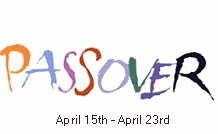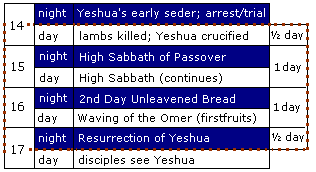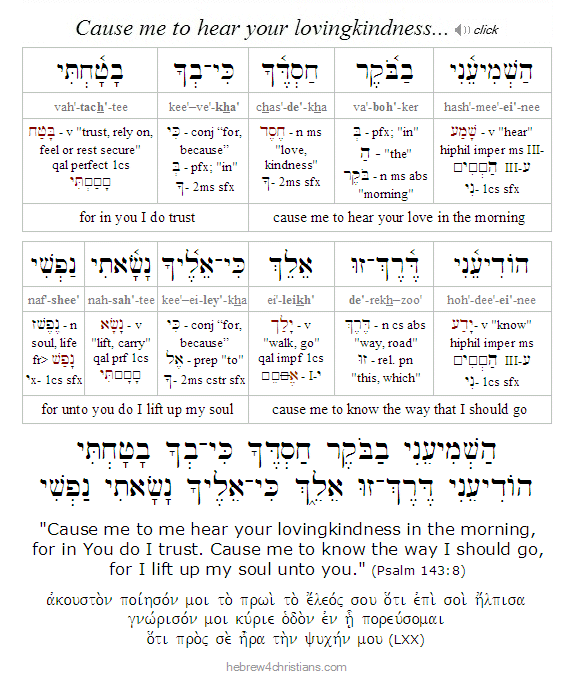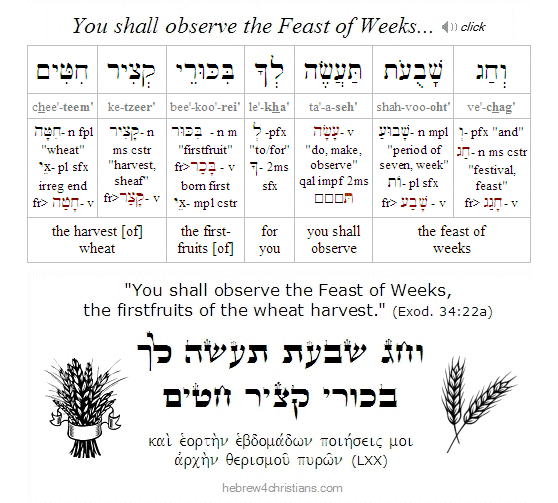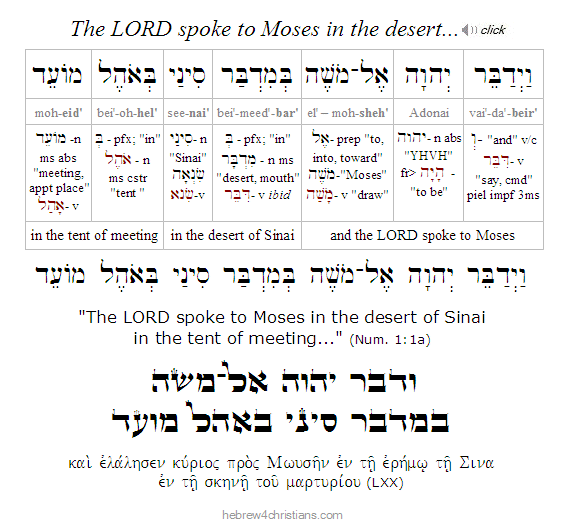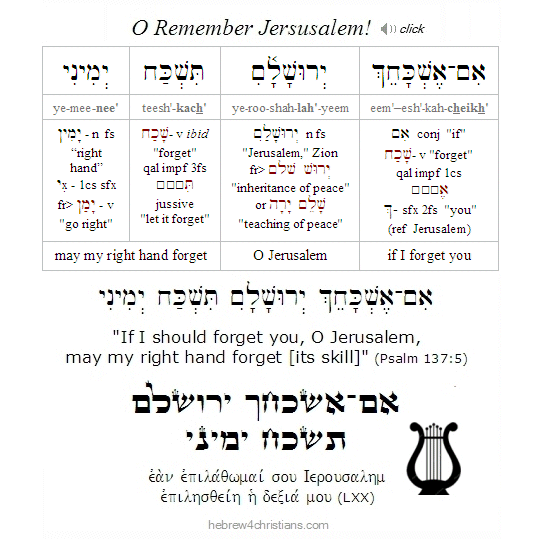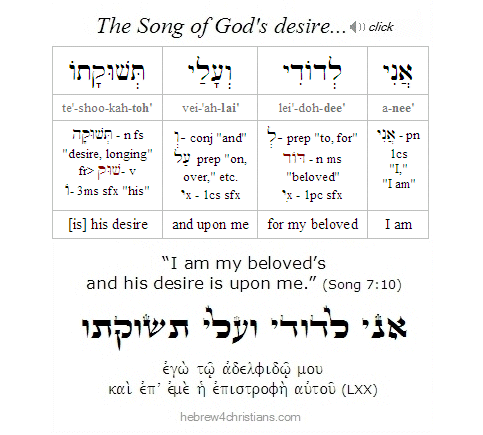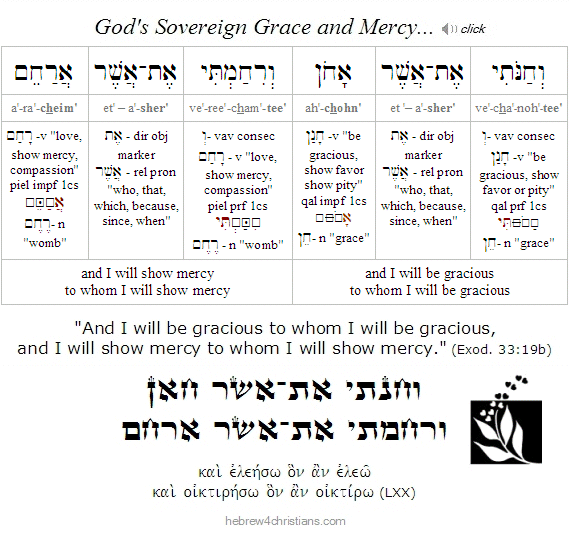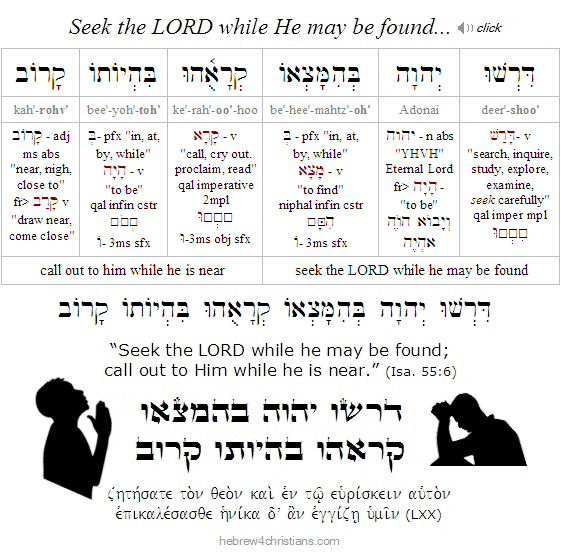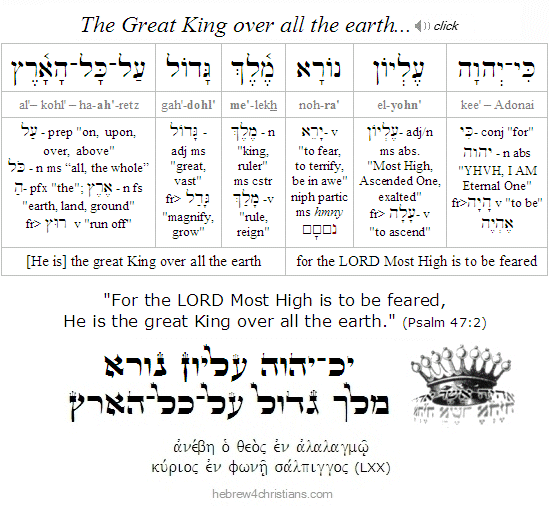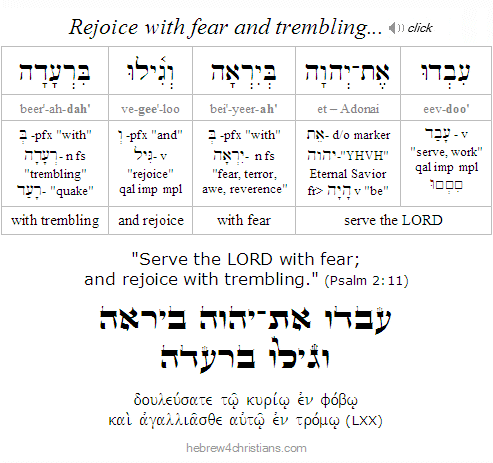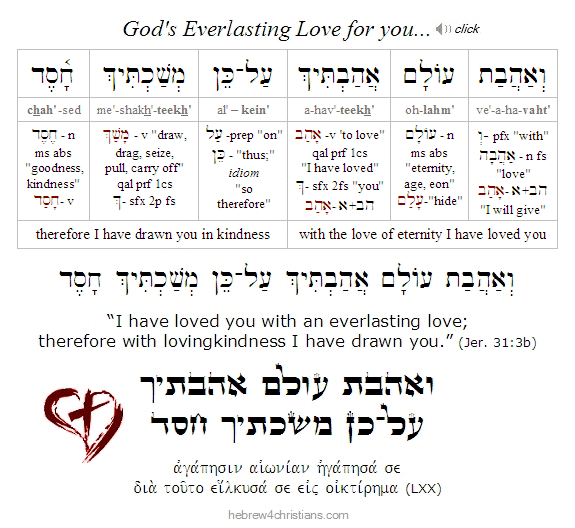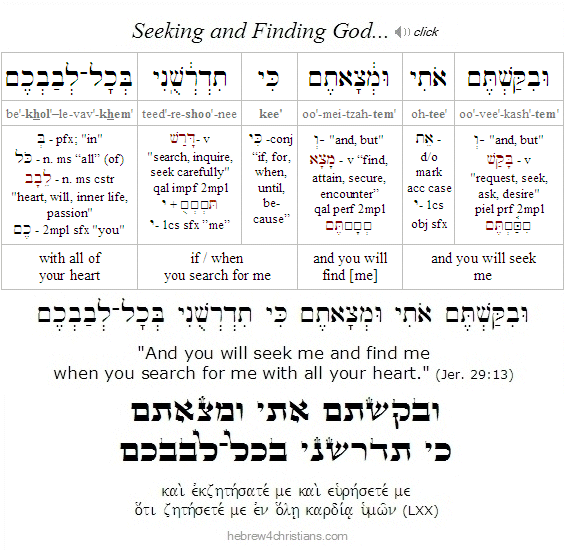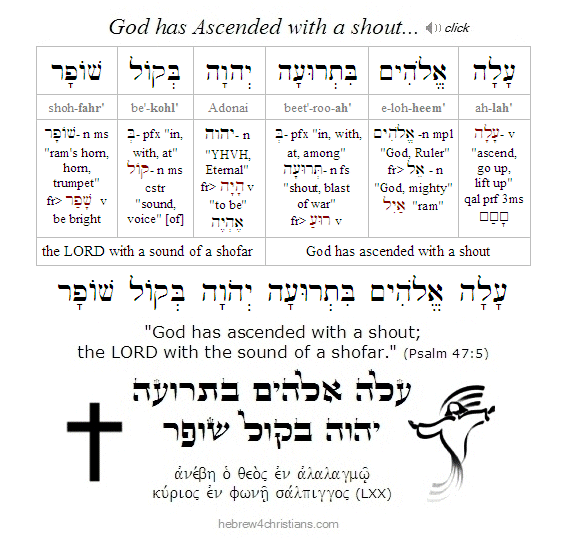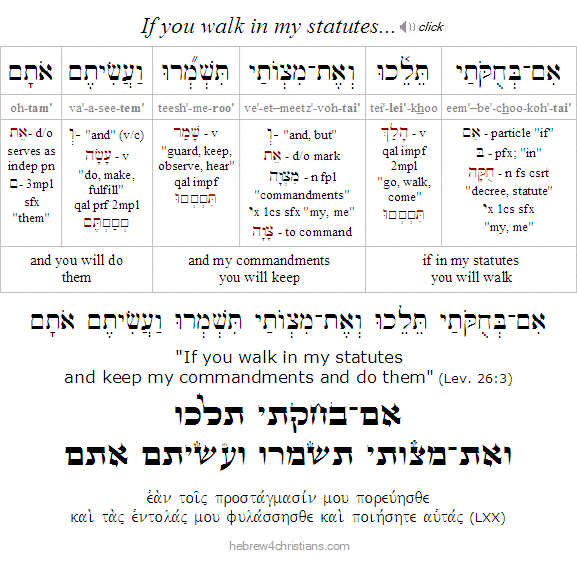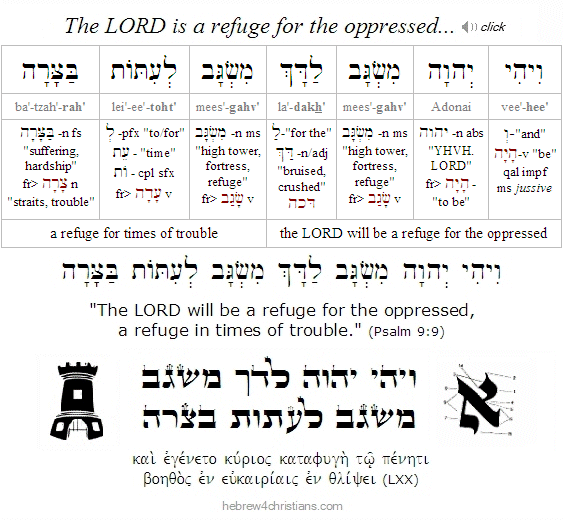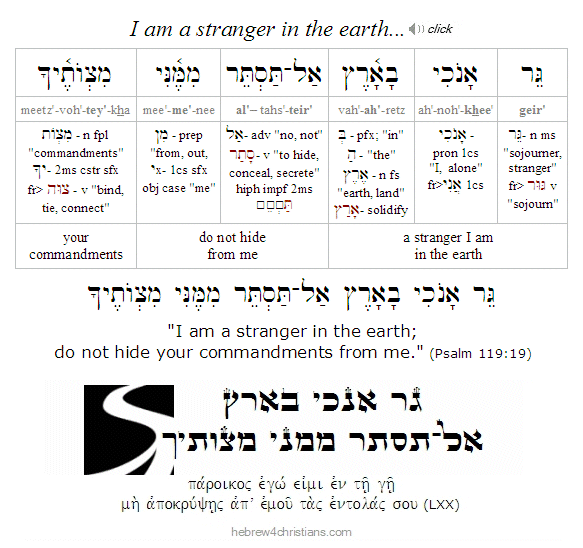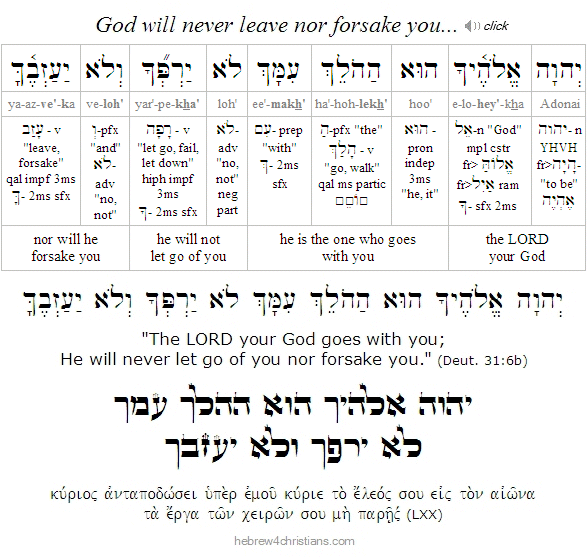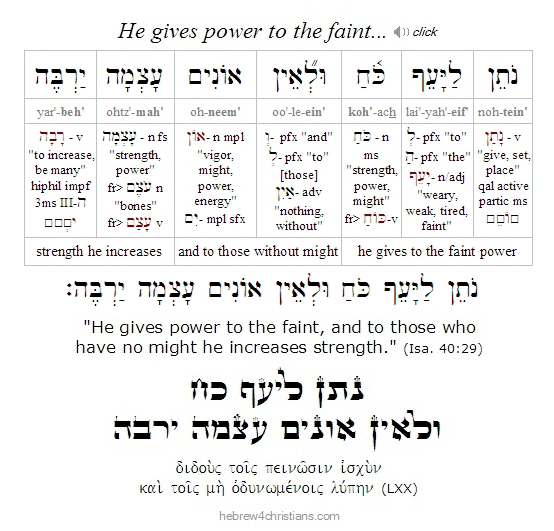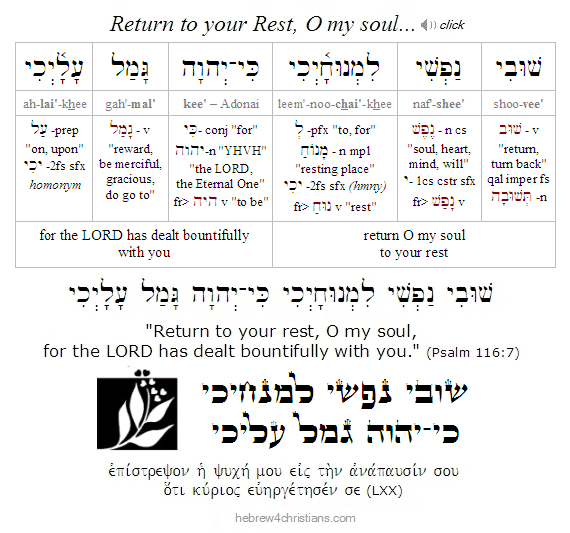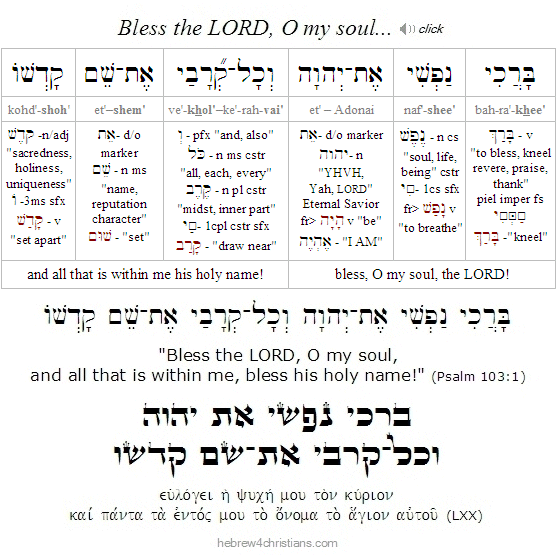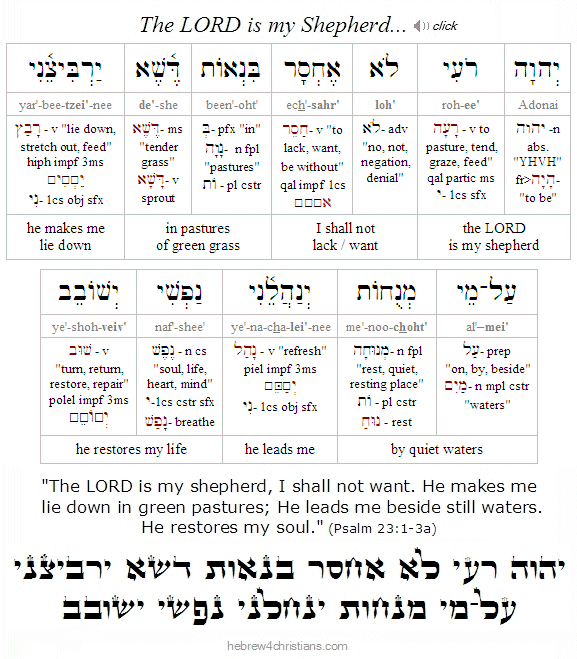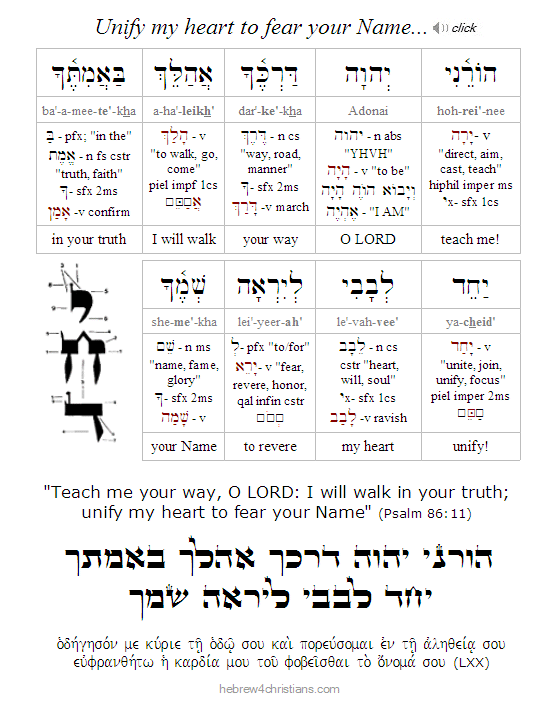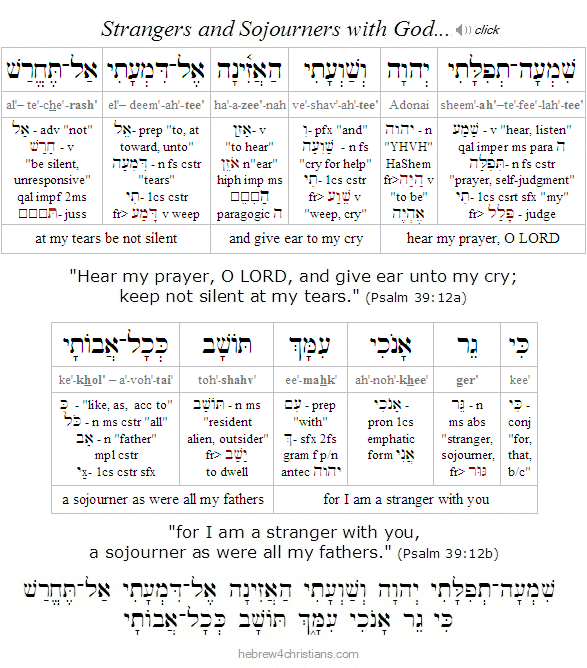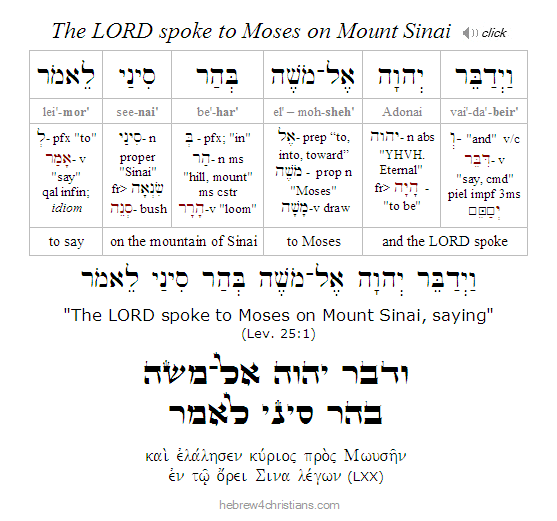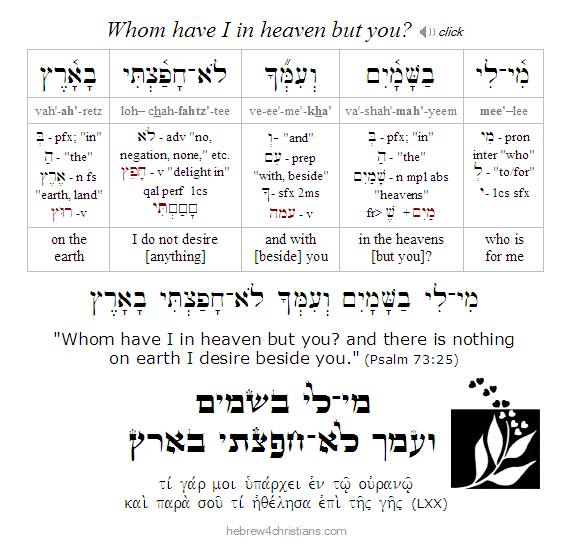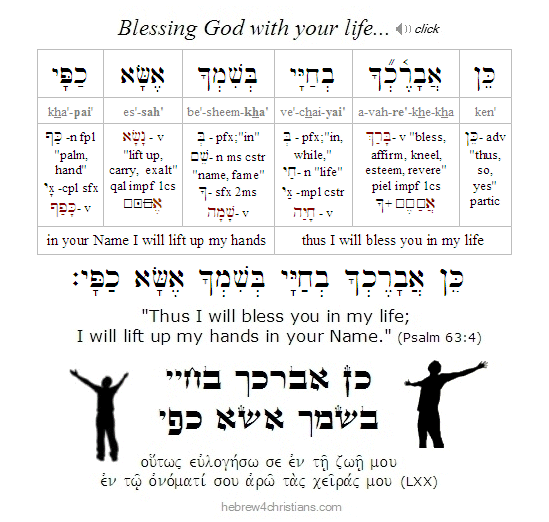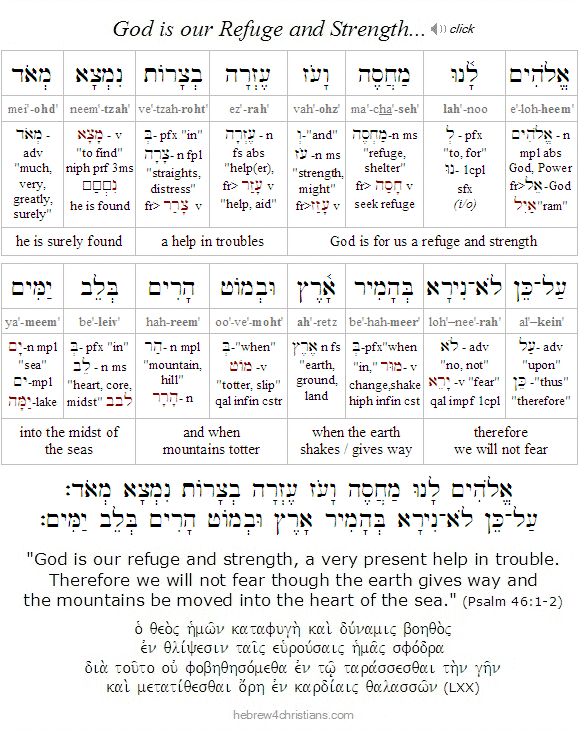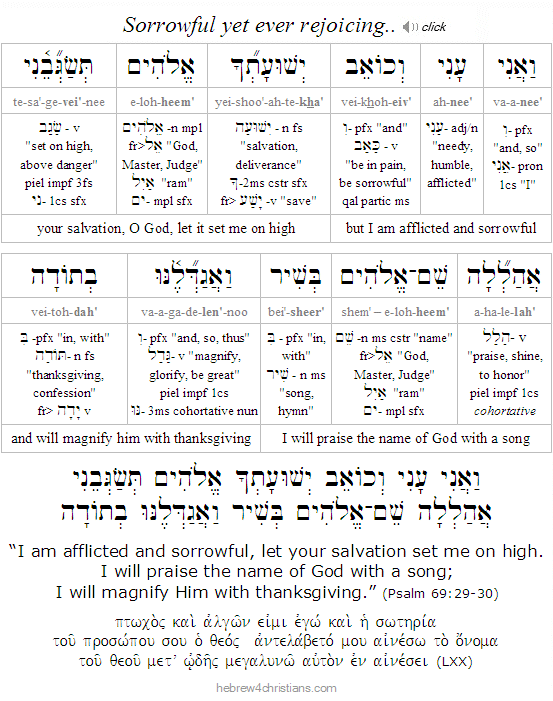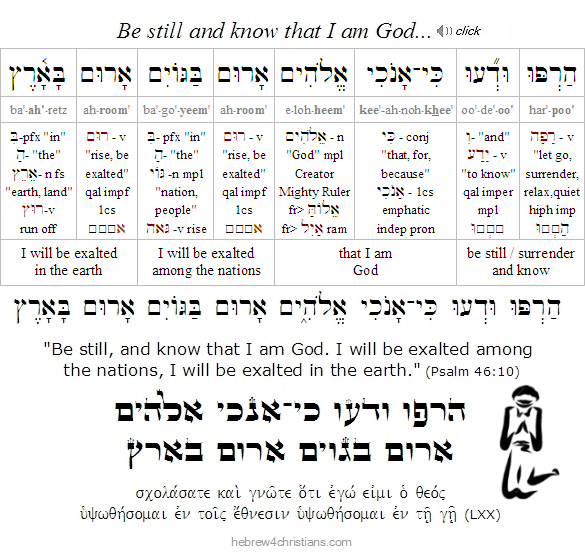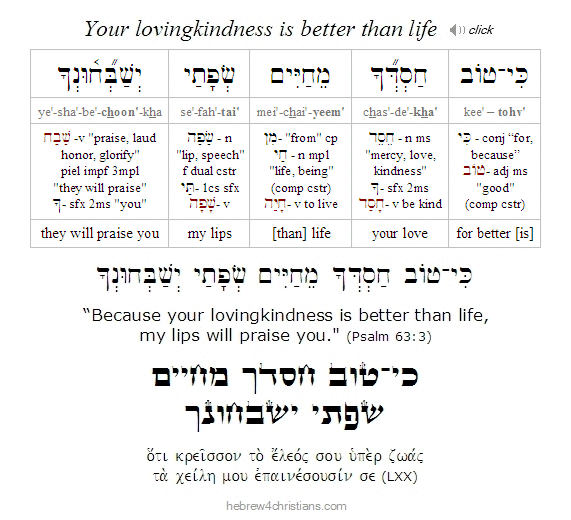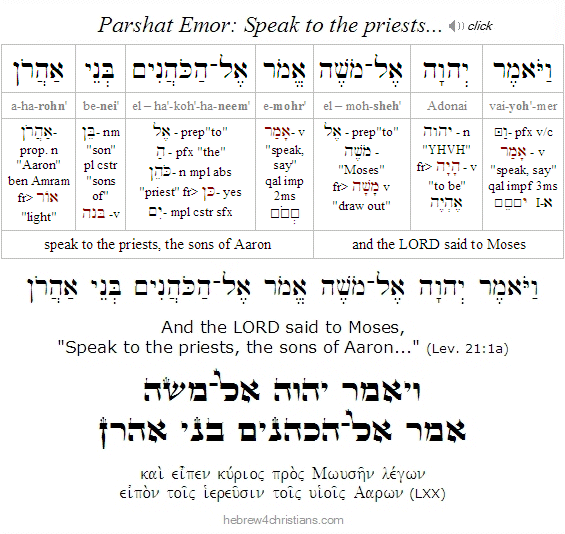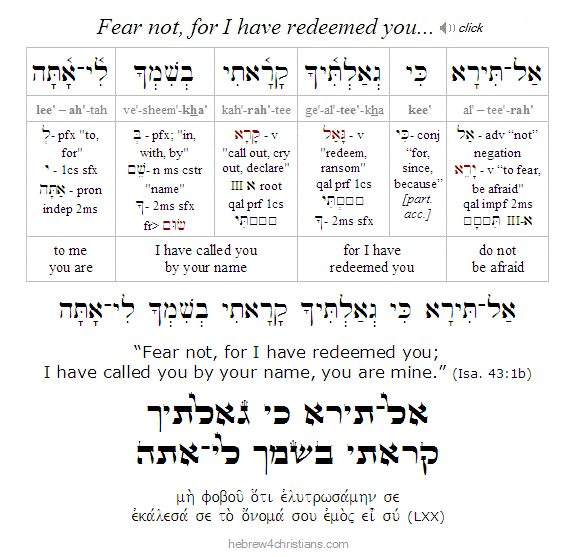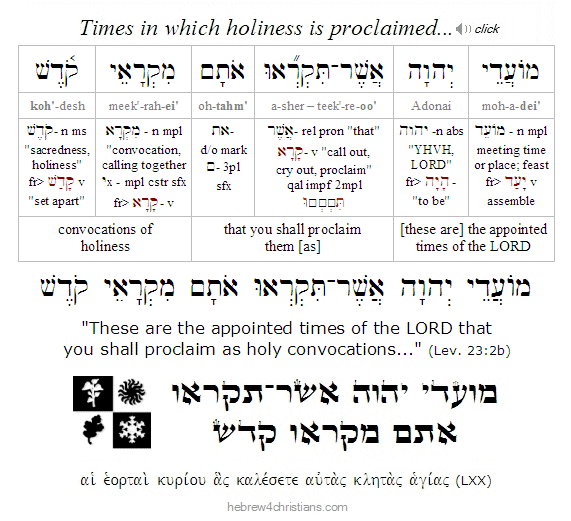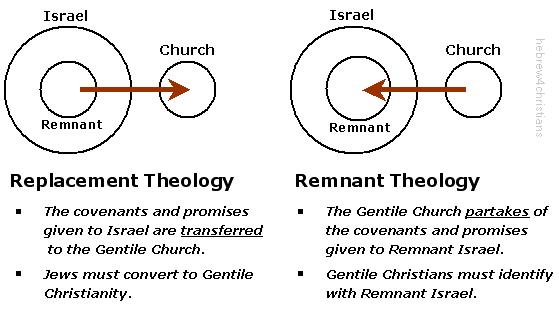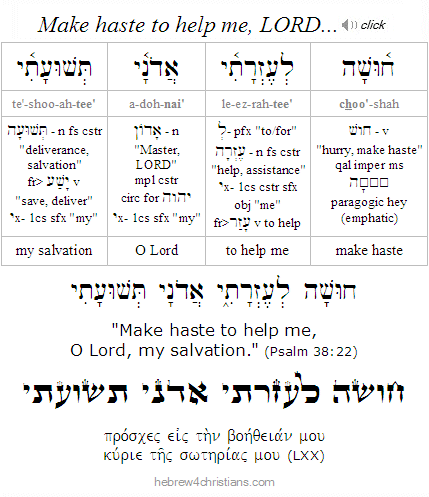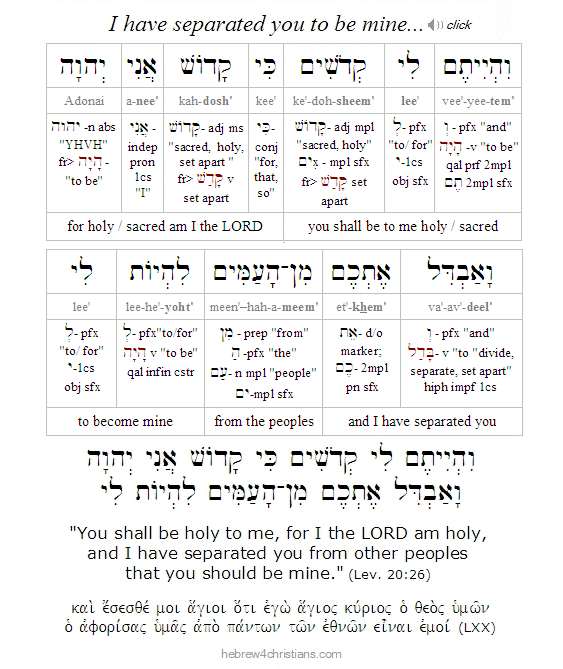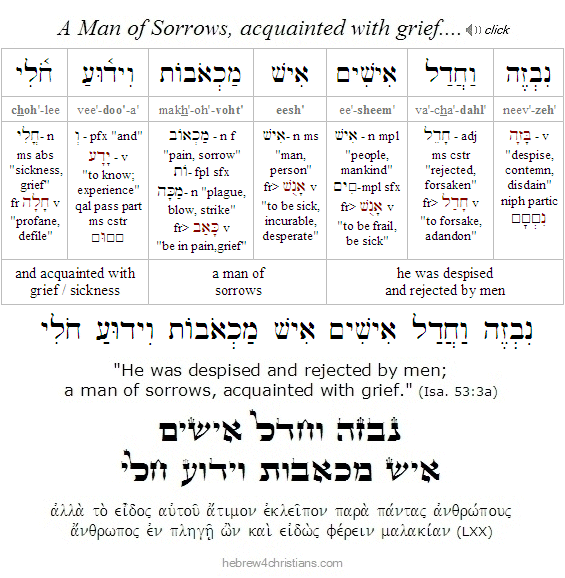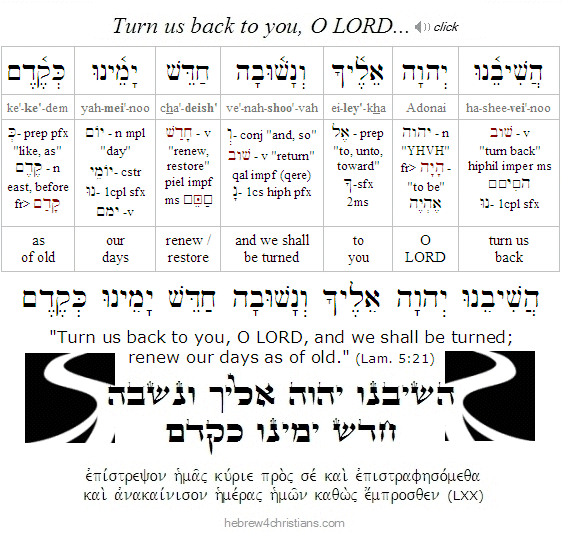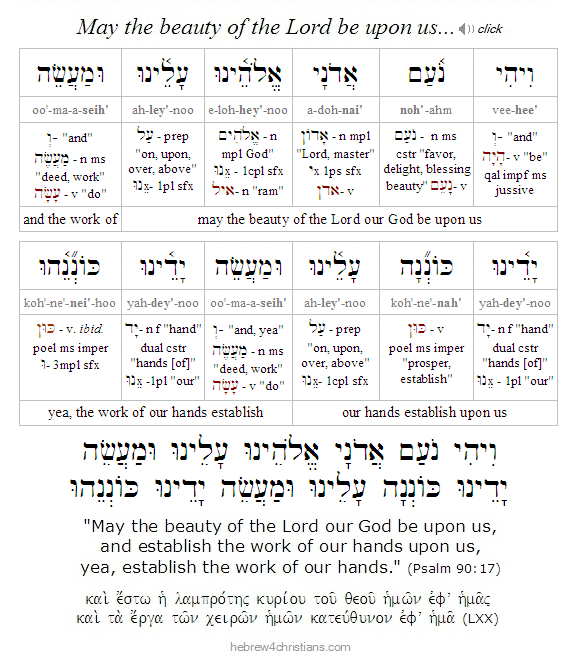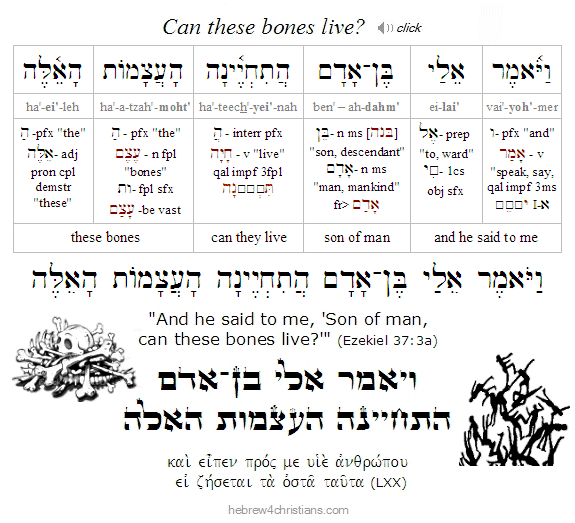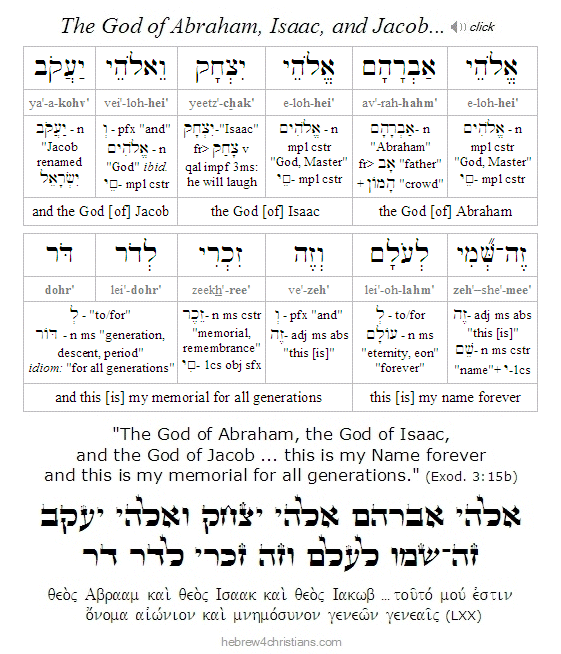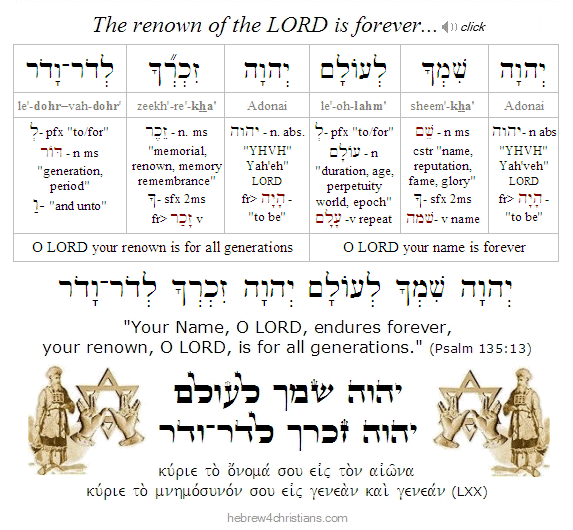|
Jewish Holiday Calendar
For May 2022 site updates, please scroll past this entry....
The Torah divides the calendar into two symmetrical halves: the Spring and the Fall, indicating the two advents of Messiah. The Biblical year officially begins during the month of the Passover from Egypt (called Rosh Chodashim, see Exod. 12:2), and the spring holidays of Passover, Unleavened Bread, and Firstfruits both recall our deliverance from Egypt and also our greater deliverance given by means of the death, burial, and resurrection of the Messiah, the great Passover Lamb of God. The holiday of Shavuot (i.e., "Pentecost") both commemorates the revelation of the Torah at Sinai as well as the revelation of the Ruach HaKodesh (Holy Spirit) at Zion, in fulfillment of the promise given by our Lord....
The intermediate months of summer end with the advent of the sixth month of the calendar, the month of Elul, which recalls the time Moses interceded on behalf of Israel after the sin of the Golden Calf. To commemorate this time of our history, we likewise focus on teshuvah (repentance) in anticipation of Rosh Hashanah and especially in anticipation of Yom Kippur, the great "Day of Atonement." In Jewish tradition the 30 days of Elul are combined with the first ten days of the seventh month (called the "Days of Awe") to set apart "Forty Days of Teshuvah" leading up to the Day of Forgiveness for Israel. Immediately following Yom Kippur, the mood changes as we begin preparing for a joyous week-long celebration called Sukkot (i.e., "Tabernacles") that concludes with the holiday of Simchat Torah.
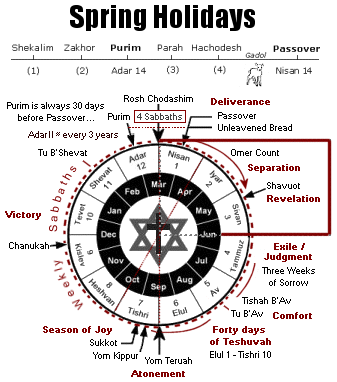 |
The Spring Holidays:

The spring holidays (חגי האביב) provide a portrait of the death, burial, and resurrection of the Messiah: Yeshua was crucified on erev Pesach (during the time of the sacrifice of the Passover lambs), buried during Chag Hamotzi (the festival of Unleavened Bread), and was resurrected from the dead on Yom Habikkurim (the Day of Firstfruits). Fifty days after Passover, on the climactic holiday of Shavuot (i.e., the feast of Pentecost), the Ruach HaKodesh (Holy Spirit) fell on the believers in fulfillment of the promise given by our Lord. Note that the giving of the Holy Spirit occurred precisely according to the calendar countdown given in the Torah (Lev. 23:15-16), and that it occurred after the resurrection of Yeshua -- just as our Messiah foretold (John 16:7; Acts 1:6-8, 2:1-4). This proves that the feasts of the LORD (מוֹעדי יהוה) were not abolished after the crucifixion. The meaning of the gospel is prefigured in the holidays given in Torah. See Luke 24:27, 24:44; John 5:46; Acts 26:22, etc.
Kindly note that in accordance with both Torah and Jewish traction, the following holiday dates begin at sundown (ויהי־ערב ויהי־בקר; Gen. 1:5):
- Month of Adar II (Wed. March 2nd [eve]) - Fri. April 1st [day])
Dates for Passover 2022:
Free Seder Guide
- Month of Nisan (Fri. April 1st [eve] - Sat. April 30th [day])
- Month of Iyyar (Sat. April 30th [eve] - Mon. May 30th [day])
- Month of Sivan (Mon. May 30th [eve] - Tues. June 28th [day])
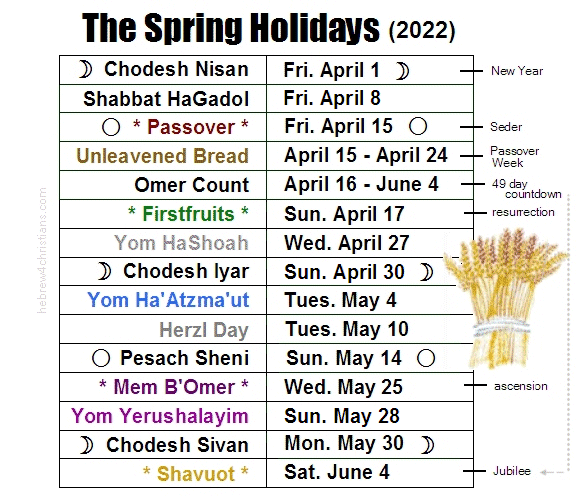 |
May 2022 Updates
The Fruit of Spirit - פרי הרוח

[ The holiday of Shavuot ("Pentecost") begins Saturday, June 4th, at sundown... ]
05.31.22 (Sivan 1, 5782) Traditional Judaism identifies various middot ha-lev (qualities of heart) that attend to a genuinely Jewish life. Among others these include Talmud Torah (studying Scripture), ahavat Adonai (loving God), gemilut chasidim (doing works of compassion), bikkur cholim (visiting the sick), and so on. The follower of Yeshua likewise is intended to evidence middot hav-lev, though the Source for such comes directly from the power of the Ruach Ha-Kodesh (Holy Spirit) working within the heart of faith. The peirot (fruits) listed in Galatians 5:22-23 represent nine visible attributes of a true follower of Yeshua, namely: love (אהבה), joy (שׂמחה), peace (שׁלום), patience (סבלנות), generosity (נדיבות לב), kindness (חסד), faithfulness (נֶאֱמָנוּת), humility (ענוה), and modesty (צְנִיעוּת).
Note that these fruits are not realized through self-effort or attempts at human "reformation," but rather are a supernatural outgrowth of the grace and love of God in the life of one who puts their trust in Yeshua as Savior. They are fruits "of the Spirit" (פּרי הרוח), not the result of human effort (see John 15:1-8). Our lives are sanctified in the manner in which they were initially justified: wholly by faith in the love and grace of God...
The tough question we need to ask ourselves is whether our lives give evidence to the power and agency of the Holy Spirit within us. Strictly speaking, these nine attributes are qualities that only God Himself possesses, since He alone is perfectly loving, perfectly joyful, and so on. But since we are created be'tzelem elohim (in the image of God) and were given the Holy Spirit to help us resemble our Teacher (Luke 6:40), spiritual fruit should be seen in our own lives (John 14:12; 15:1-8; 26-7). Obtaining such fruit is invariably a matter of faith - trusting that God will help us live our lives in truthful union with Him.
Let's remember to pray for one another and ask the LORD to make each of us fruitful l'shem shamayim - for the sake of the Name of our beloved One Yeshua....
Hebrew Lesson
Proverbs 8:19 reading (click):
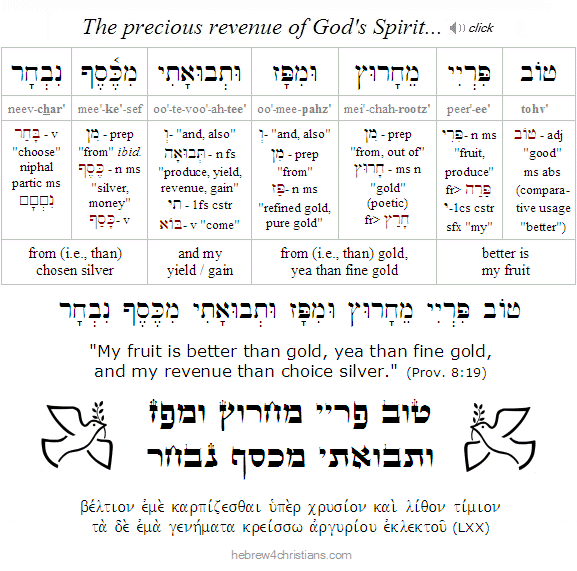 |
The Whispering Word...

[ The following is related to our Torah reading for this week, parashat Bamidbar... ]
05.31.22 (Sivan 1, 5782) The Hebrew word midbar (מדבר), "desert," shares the same root as davar (דּבר) which means "word." We often need to be alone to hear God speaking kol demamah dakkah (קול דממה דקה) - "the sound of a low whisper" (1 Kings. 19:12), and the journey into the desert was God's way of separating His people to speak with them "privately," so to speak (Jer. 2:2). But to hear the word we must humble ourselves, and the desert (i.e., "word") of Sinai is therefore first of all the word of humility (ענוה). When God spoke Torah to Israel, it was from a nondescript mountain - a place of emptiness, brokenness and need. Indeed, another word for Sinai is "chorev" (חרֵב), a word that means dryness and desolation. That is the starting point -- not the lush places of a future paradise. We receive Torah "bamidbar" because we can only hear God's davar in a place of lowliness and inner quiet. God brings us to an arid place -- inhospitable, and dangerous -- to reveal our need for Him, to show Himself as our Sustainer. The way to Sinai is a necessary excursion to prepare us to look for the greater hope of Zion. May God help us heed the whisper of His Spirit...
Hebrew Lesson:
Psalm 143:8 Hebrew reading:
Giving of the Torah (מתן תורה)

[ The holiday of Shavuot ("Pentecost") begins this Saturday, June 4th, at sundown... ]
05.31.22 (Sivan 1, 5782) During the holiday of Shavuot (i.e., "Weeks," "Pentecost") we remember how the LORD graciously condescended to meet with the Jewish people at Sinai, and how all the people heard the Voice of God (קול האלוהים) speaking from the midst of the fire (Deut. 4:33). This awesome event foreshadowed the great advent of the King and Lawgiver Himself, when the Eternal Word (דבר יהוה) became flesh to dwell with us (Phil. 2:6-7; John 1:1,14), and it further foreshadowed the advent of the Spirit of Truth given to the disciples of Messiah (Acts 2:1-4). Any theology that regards God as entirely transcendent will have a problem with divine immanence, since the highness, holiness, and perfection of God will make him seem distant, outside of us, far away, and even unknown... Incarnational theology, on the other hand, manifests the nearness of God to disclose the divine empathy. Indeed, the LORD became Immanuel (עמנו אל), "one with us," to share our mortal condition, to know our pain, and to experience what it means to be wounded by sin, to be abandoned, alienated, forsaken. The "Eternal made flesh" bridges the gap between the realm of Ein Sof (אין סוף), the Infinitely transcendent One, and the finite world of people lost within their sinful frailty. Of course we believe Adonai Echad (יהוה אחד) - that the "LORD is One" - both in the sense of being exalted over all things but also in the sense of being compassionately involved in all things (Rom. 11:36). During Shavuot we celebrate the giving of the Torah both at Sinai, at Bethlehem (בית לחם), and within our hearts. We celebrate that God is indeed the King and Ruler over all, but we further affirm that God's authority and rule extends to all possible worlds - including the realm of finitude and even death itself.
כי יהוה שפטנו יהוה מחקקנו
יהוה מלכנו הוא יושיענו
kee · Adonai · sho·fe·tei'·noo; Adonai · me·chok·kei'·noo
Adonai · mal·kei'·noo; hoo · yoh·shee·ei'·noo

"For the LORD is our Judge; the LORD is our Lawgiver;
the LORD is our King; He will save us."
(Isa. 33:22)

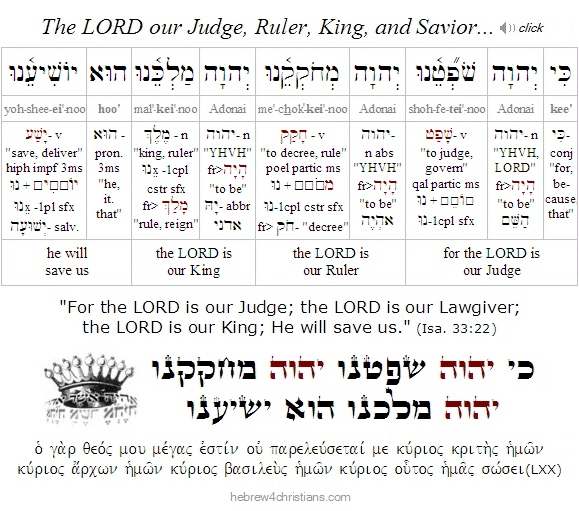
Remembering our history...

05.30.22 (Iyyar 29, 5782) In the United States, Memorial Day is a national holiday observed on the last Monday of the month of May, that commemorates the sacrifice of those men and women who died in military service for their country. For those who have lost a loved one during their military service, please accept our heartfelt condolences and appreciation for your great sacrifice... And may the LORD God Almighty have mercy upon all the nations of the world by imparting the revelation of His Living Torah, Yeshua, as it says, "Where there is no prophetic vision the people cast off restraint, but blessed is the one who keeps Torah" (Prov. 29:18). If there is no prophetic vision, no apprehension of revelation, there is no direction, and this can lead to moral and spiritual disorder, chaos, and bondage.
בְּאֵין חָזוֹן יִפָּרַע עָם
וְשׁמֵר תּוֹרָה אַשְׁרֵהוּ
be·ein · cha·zohn · yee·pa'·ra · ahm
ve·shoh·meir · toh·rah · ash·rei'·hoo

"Where there is no prophetic vision the people cast off restraint,
but blessed is the one who keeps Torah." (Prov. 29:18)

Download Study Card
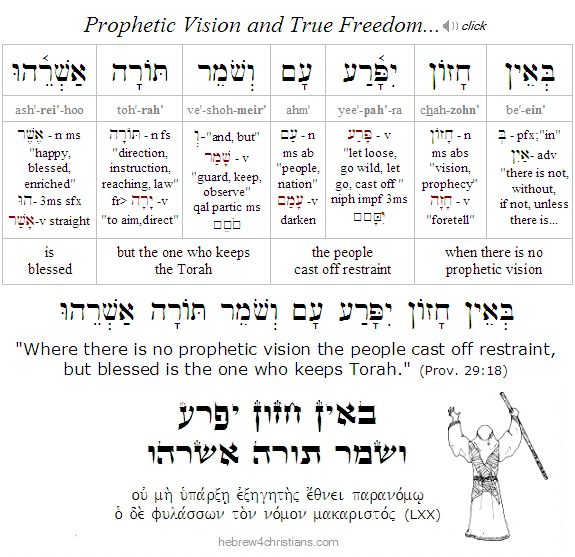
Note: Though our kingdom is not of this world, please pray for the United States of America -- a nation that has come under philosophical and ideological attack from those who seek to undermine America's history in order to forward their agenda... Pray for God's mercy and grace for this land, and above all, for the miracle of teshuvah to turn many to Him in these latter days. Thank you.
Why Shavuot Matters...
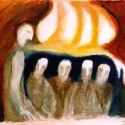
[ The holiday of Shavuot ("Pentecost") begins Saturday, June 4th at sundown... ]
05.30.22 (Iyyar 29, 5782) The holiday of Shavuot (חג השבועות) is called "Pentecost" in Christian tradition. The Greek word Pentecost (πεντηκοστή) means "the holiday of fifty days" referring to the 50th day after the crucifixion of Yeshua when the Holy Spirit descended upon the disciples and when Peter first proclaimed the truth of salvation in Jerusalem (Acts 2:1-43). The Torah teaches that Shavuot is a major biblical holiday (it is one of the three "required festivals" of the LORD, see Exod. 23:14-17; Deut. 16:16) and therefore it behooves us to understand its significance as the climax of Passover itself -- 'the endpoint' of the redemptive experience. Indeed, just as the blood of the lambs smeared on the door posts led directly to Sinai 50 days later, so the crucifixion of Yeshua led directly to the descent of the Holy Spirit to empower His followers to serve God under the new covenant of Zion.
 |
There are two essential priestly rituals commanded for the holiday of Shavuot: 1) the waving (i.e., tenufah: תנופה) of the two loaves of (new) wheat bread (called shtei ha'lechem: שתי הלחם), and 2) the offering of peace sacrifices (i.e., korban shelamim: קורבן שלמים). Both of these aspects of the priestly service (avodah) were fulfilled in the greater sacrifice of Yeshua made on our behalf. Moreover, just as worshipers at the Temple would present bikkurim (בכורים) - their choicest first fruits - and attest to God's faithfulness before the altar (Deut. 26:3), so we are called to walk in the fruit of the Spirit (פרי רוח הקודש) and to proclaim the message of God's faithful love for us.

Though it is not explicitly mentioned in the five books of the Torah, the early sages have long connected the revelation of the Torah at Sinai (מתן תורה) with the holiday of Shavuot. This comes from a careful study of the chronology of the exodus itself, calculating the time of the Passover from Egypt (i.e., Nisan 15) to the arrival of the Israelites at Sinai exactly 45 days later, on Sivan 1 (see Exod 19:1). The earliest extrabiblical source that explicitly links Shavuot with the revelation of the Torah at Sinai is the apocyphal Book of Jubilees (i.e., Sefer ha'Yovelim: ספר היובלים), dating from the 2nd century BC. Extant manuscripts of this book were found among the Dead Sea Scrolls (מגילות ים המלח), indicating that the Shavuot-Sinai connection was made before the advent of Yeshua. The Book of Jubilees provides a parallel account of Genesis and certain parts of Exodus, and mentions the observance of Shavuot by Noah before the time of the Flood. In the book Noah is told to observe the Festival of Weeks (shavuot) and to offer Firstfruits (bikkurim) every year as a commemoration of God's covenant to renew the earth (Jubilees 6:15;22). Likewise Abraham and the original patriarchs were said to observe it, though it was forgotten by the Jews in Egypt until Moses was said to have reinstated it at Sinai. Shavuot is also mentioned in the apocryphal Book of Tobit (טוביה) and the Book of Maccabees, c. 2nd century BC.
 |
The Talmud (i.e., traditional oral teaching of the Torah ) also connects Shavuot with the giving of the Torah at Sinai. The earliest Talmudic statement on the date of the revelation at Sinai is found in Tractate Shabbat 86b. According to these sages, the Israelites left Egypt on Friday, Nisan 15, and the Torah was given exactly 50 days later on Saturday, Sivan 6th. This corresponds exactly with God's instructions to count 50 days from the day after Passover (Lev. 23:15-16). This date later became fixed in the Jewish calendar, and was further supported by reference to Exodus 19:1: "On the third new moon after the people of Israel had gone out of the land of Egypt, on that day they came into the wilderness of Sinai." (For details about the exact timing for this event, see the main Shavuot article here.) The Midrash Rabbah also explicitly makes the Shavuot-Sinai connection as well. The later rabbis refer to Shavuot as "Atzeret" (עצרת), a word that means "withdrawal" (i.e., to the desert to receive the law) and "conclusion" (or the goal of the Passover redemption). Today Jewish tradition regards Shavuot as Zman Mattan Torateinu (זמן מתן תורתנו) - "the anniversary of the giving of the Torah." Shavuot is also called Yom Ha'Kahal (יום הקהל) - the "Day of Assembly," based on the assembly of all the people of Israel to hear the Voice of God at Sinai (Deut. 18:16).
Jewish custom affirms that in every generation each person should consider himself as having personally received the Torah at Sinai. The climax of the Shavuot morning service is the recitation of the famous Akdamut poem followed by the reading of the Ten Commandments, when all the congregation stands to "relive" the experience at Sinai. A second Torah scroll is then taken out of the ark and the portion is read (Num. 28:26-31) that describes the sacrificial offerings made at the Temple during Shavuot, and the Haftarah (Ezek. 1:1-28; 3:12) concerns the stunning revelation of God in the form of the Throne/Chariot.
The Scroll of Ruth (מגילת רות) - a beautiful story about God's redemptive love - is read on the second day of Shavuot. As the "kinsman redeemer" (i.e., go'el karov: גואל קרוב), Boaz was a wealthy man of the tribe of Judah (Bethlehem) who married a Gentile bride. Boaz's name (בועז) means "in Him [בו] is strength [עז]," a picture of Yeshua the Messiah, his greater Descendant, who also redeemed for himself a bride from among the nations. Among traditional Jews, the Book of Ruth is is read since the events recounted took place during the time of the spring harvest (linking it to the agricultural aspect of Shavuot), and Ruth is a picture of willing acceptance of a Jewish lifestyle (linking it to the events of Sinai).
Paradoxically, the conversion of Ruth was actually against the law given in the Torah itself! According to the Torah (Deut. 23:3), an Ammonite (or Moabite) was forbidden to enter into the family of Israel, and therefore the question arose regarding how Ruth was accepted. Indeed, not only was Ruth accepted, she became the great grandmother of King David through whom the Messiah Yeshua would come (Ruth 4:17). There is a wonderful message hidden here!
Shavuot is often portrayed metaphorically as a marriage ceremony (קִדוּשִׁין) between God and the children of Israel. The LORD is the Heavenly chatan (groom) who said, "Accept Me"; the Jewish people represent the beloved kallah (bride); and the Torah represents the ketubah (marriage contract). In some Sephardic traditions, a ketubah is literally read under the traditional chuppah (חוּפָּה) or wedding canopy, that is set up in the synagogue. Some of the sages note that the idea of marriage comes from the resemblance of the word Shavuot with shevuot (שבועות), the word for "oaths." On Shavuot two oaths were taken. One was from God who pledged that He would not exchange the children of Israel for another people, and the other was from the Jews who pledged they would not exchange God for another deity...
This is analogous to the wedding cup that Yeshua offered us in the upper room, before His crucifixion. The Holy Spirit was given to escort us into the heavenly bridal chamber... Collectively, the followers of the Messiah are called Kallat Mashiach (כלת המשיח) - the Bride of Messiah (Rev 21:2,9), and we eagerly await the marriage supper to come (Rev 19:9).
Shavuot marks the time when God entered into covenant with the Jewish nation. During the first Shavuot at Sinai, God instituted the Mosaic covenant and gave the Torah in written form, but during the Shavuot at Zion, after the resurrection of Yeshua, God established the New Covenant (הברית החדשה) when He wrote the Torah on the hearts of Yeshua's followers.
- Shavuot at Mount Sinai is sometimes considered the day on which Judaism was born. Shavuot in Jerusalem (Mount Zion) is the day on which the church was born when the Holy Spirit was poured out upon the followers of the Messiah Yeshua.
- Just as the resurrection of Yeshua represents the Firstfruits of those who have died (1 Cor. 15:20) and fulfills the prophetic ritual of the waving of the omer on the festival of First Fruits, so the giving of the Holy Spirit to the followers of Yeshua fulfills the wave offering of the leavened wheat loaves on the day of Shavuot.
- At Mount Sinai the Ten Commandments were written on tablets of stone by the "finger of God" (Exod. 31:18), but at Mount Zion, the Torah is written on tables of the heart by the Spirit of God (2 Cor. 3:3; Heb. 8:10).
- Just as the Israelites were affirmed as God's chosen people on Shavuot with the giving of the Torah, so the followers of the Messiah are affirmed as God's chosen people at Shavuot after Yeshua's ascension into heaven as the Mediator of a Better Covenant (Hebrews 8:6). The 3,000 that were added to the church that day were firstfruits of the redeemed people of God.
Again, the holiday of Shavuot is one of the shelosh regalim (three pilgrimage festivals) given in the Torah (Exod. 23:14-17; Deut. 16:16) and therefore reveals profound spiritual truth for followers of Yeshua (Luke 24:44; 2 Tim. 3:16). God did not want us to miss the significance of this holiday, since it expresses the freedom and truth of the New Covenant of Zion. Friend, may this be a time of renewal and great joy in your life....
Hebrew Lesson
Exod. 34:22a reading (click):
Parashat Bamidbar (פרשת במדבר)

[ Our Torah reading for this week, parashat Bamidbar, is always read just before the great holiday of Shavuot (i.e., "Pentecost")... ]
05.30.22 (Iyyar 29, 5782) We have a busy week ahead of us. First, we start reading the fourth book of the Torah, namely Sefer Bamidbar (ספר במדבר), or the "Book of Numbers." Next, the month of Sivan begins Monday, May 30th at sundown, which heralds the conclusion of the 49 day countdown from the day following Passover (see Lev. 23:15-16). The first five days of the month of Sivan anticipate the day the Torah was given to Israel at Sinai, namely, the sixth of Sivan, which marks exactly seven weeks after the Exodus from Egypt. So I will be sharing things related to both the Torah portion for this week as well as the holiday of Shavuot (i.e., "Pentecost"), which begins in one week (i.e., Saturday, June 4th after sundown). May the LORD show us grace as we study his Torah and to review the significance of the Torah written upon our hearts in the Messiah (Jer. 31:31, Heb. 10:16, Jer. 32:40). Amen.
Now our Torah portion for this week is called parashat Bamidbar (פרשת במדבר), and it begins where the Book of Exodus left off, that is, with the glory of the LORD hovering over the Mishkan (Tabernacle) as the Israelites were stationed at Sinai (Exod. 40:38, Num. 1:1). On the first day of the thirteenth month following the Exodus from Egypt – exactly thirty days after the Mishkan (Tabernacle) was first consecrated – God commanded Moses to take a census of all Israelite males over 20 years of age who would bear arms. Moses and the heads of each tribe recorded the results, with 603,550 men in all. This number did not include the Levites, however, since they were designated to take care of the Tabernacle during the journeys.
The LORD then gave instructions about how the Israelite camp was to be arranged. The Tabernacle would occupy the central location, with three clans of the Levites surrounding it on the north, south, and west (Moses and Aaron's tents were placed before the entrance on the east). The twelve other tribes were divided into four groups of three. All of the tents of the Israelites were to face the Tabernacle on every side. This camp formation was to be strictly maintained while traveling throughout the desert.
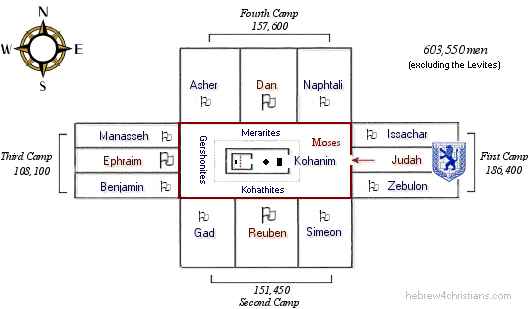 |
Each tribe had its own prince (i.e., nassi: נשׂיא), its own flag (i.e., degel: דגל) whose color corresponded with the color of its respective stone in Aaron's breastplate (Exod. 28:15-21). For example, Judah's stone was a sky-blue carbuncle and therefore the color of his flag was like the color of the sky with a "fiery lion" embroidered upon it (see Gen. 49:9).
The portion ends with a census of the three sons of Levi (בני לוי), namely Gershon (גרשׁון), Kohath (קהת), and Merari (מררי). The sons of Gershon (i.e., the Gershonites) were to maintain the inner tent of the Mishkan and were to be located on the west side of the courtyard; the sons of Kohath (i.e., the Kohathites) were to maintain the furnishings of the Mishkan such (as the Ark of the Covenant, the Menorah, etc.) and were to be located on the south side of the courtyard; and the sons of Merari (i.e., the Merarites) maintained the frames and pillars of the Mishkan and were located to the north of the courtyard. Finally, though the sons of Aaron were technically descendants of Kohath, they were set apart to serve as priests (i.e., kohanim: כהנים) and were located before gate into the Mishkan to the east.
City of the Great King...

05.29.22 (Iyyar 28, 5782) Dear followers of Yeshua the King, how can we forget Zion, "the city of the living God, the heavenly Jerusalem" (Heb. 12:22)? Is she not called "our mother" (Gal. 4:26)? Are we not her citizens, indeed, her exiles in this age? Indeed, Yeshua himself referred to Jerusalem the "City of the great King" (Psalm 48:2; Matt 5:35); for it is the place (המקום) where He was crucified, buried, resurrected, and ascended to heaven; and is it moreover the place where He will return to earth (Zech. 14:1-9; Acts 1:9-12).
"If I forget you, O Jerusalem, let my right hand forget its skill! Let my tongue stick to the roof of my mouth, if I do not remember you, if I do not set Jerusalem above my highest joy!" (Psalm 137:5-6). We are instructed to "pray for the peace of Jerusalem" (Psalm 126:6), but we are further told to "badger" the LORD until he makes Zion "the praise of the earth" (Isa. 62:7).
Hebrew Lesson:
Psalm 137:5 Hebrew reading:
Note: Click here to learn 25 reasons why Jerusalem matters...
Peace for Jerusalem...

05.29.22 (Iyyar 28, 5782) Shalom chaverim. Today marks "Jerusalem Unification Day" (i.e., Yom Yerushalayim: יום ירושלים), a modern holiday that commemorates the re-unification of old city of Jerusalem on June 7th, 1967 (Iyar 28, 5727), after the stunning victory of Israel during the infamous "Six Day War" (מִלְחֶמֶת שֵׁשֶׁת הַיָּמִים). In 1968 the Chief Rabbinate of Israel declared Iyyar 28 to be a minor holiday to thank God for answering the 2,000-year-old prayer of "Next Year in Jerusalem" (בשנה הבאה בירושלים). Later, on March 23, 1998, the Israeli Knesset passed the Jerusalem Day Law, making it an annual national holiday.
Jerusalem is central to the Jewish heart. The Hebrew word "Zion" (ציון) is mentioned over 160 times in the Scriptures. That's more than the words faith, hope, love, and countless other key words... And since Zion is a poetic form of the word Jerusalem (ירושלים), the number of occurrences swells to nearly 1,000! Since it's the most frequently occurring place name in all the Scriptures, it's no overstatement to say that God Himself is a Zionist.... "Out of Zion, the perfection of beauty, God shines forth" (Psalm 50:2). "The LORD loves the gates of Zion more than all the dwellings of Jacob. Glorious things are said of you, O City of God" (Psalm 87:2-3). Indeed, Yeshua our Savior called Jerusalem the "City of the great King" (Psalm 48:2; Matt 5:35): It is the place (המקום) where He was crucified, buried, resurrected, and ascended to heaven; and is it furthermore the place where He will return to earth (Zech. 14:1-9).
In Psalm 122:6 it is written, "Pray for the peace of Jerusalem," a phrase that reveals prophetic truth about our Savior and Messiah. The word sha'alu (שאלו) means "you ask" (as in ask a sheilah, a question), shalom (שׁלוֹם) is the name of Yeshua, the Prince of Peace (i.e., Sar Shalom: שר־שלום), and Jerusalem means "the teaching of peace" (Jeru- comes from the same root as the word Torah [ירה], which means "teaching"). The phrase sha'alu shelom Yerushalayim can therefore be construed, "ask about the Prince of Peace and His Teaching." Amen. Yeshua the Messiah is indeed the rightful King of Jerusalem (Matt. 5:35) who is coming soon to establish Zion and to reign over all the earth.
שַׁאֲלוּ שְׁלוֹם יְרוּשָׁלָםִ
יִשְׁלָיוּ אהֲבָיִךְ
sha·a·loo · she·lohm · ye·roo·sha·la'·yeem
yeesh·la'·yoo · o·ha·va'·yeekh

"Pray for the peace of Jerusalem;
May those who love her be at peace" (Psalm 122:6).
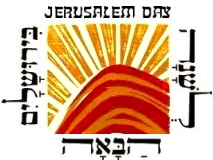
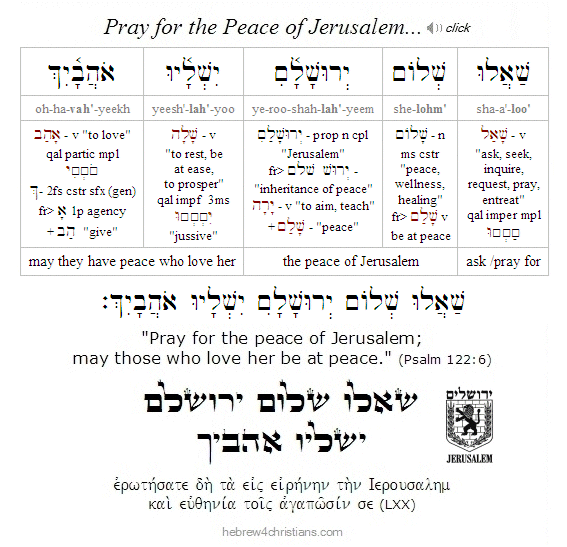
The Fear of the LORD...
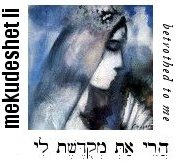
05.27.22 (Iyyar 26, 5782) Our Torah portion this week (Bechukotai) includes a litany of woes assured to befall those who spurn God's truth and break covenant with Him (Lev. 26:14-46). The deeper intent of this admonition (tochechah) is to warn us of the grave danger of forfeiting our relationship with God – that is, of refusing to be healed of our illusions... Chastisement is a blessing from heaven, the "troubles of love" (יִסּוּרֵי אַהֲבָה) since its goal is to bring us back to God and to deliver us from eternal loss. This is why Yeshua spoke about the dangers of hell: if we do not heed the Voice of divine love, we risk literally everything, and that loss is irremediably eternal... God's warning about hell expresses the great passion of his heart for us; his love calls us to receive eternal life and blessing, but if we refuse to come, we will suffer the loss of the only thing that ultimately matters. As it is written: "It is a fearful thing to fall into the hands of the Living God" (אֱלהִים חַיִּים).
The fear of losing love evokes a healthy zeal to protect it from loss... The same may be said of God's relationship with us. The gospel represents God's passion for us, the call of his heart, his desire to elevate us to the role of the beloved, and we respond by accepting Him as the Lover of our souls, the Ultimate Concern of our life. Sin threatens to seduce us away from God's love, to interfere with our relationship, which evokes God's "jealousy" to protect love from loss. This is what the "fear of the LORD" (יִרְאַת יְהוָה) most radically means: God's own fear that we would lose sight of our great need for his healing love...
It is written that "perfect love casts out fear" (1 John 4:18), but perfect love (τελεία ἀγάπη) must be "perfect," that is, reciprocal, complete, consummated, and alive with passion. In Hebrew, perfect love is "shalem" - that is, whole, healed, and unified (אַהֲבָה שְׁלֵמָה). Perfect love is both given and received... It is not "perfect love" to intellectually accept that God loves you in Yeshua our Savior. No, you must receive this as an inward passion, you must live within it, must embrace it, take possession of it, and let it fill your heart to abundance. This love, this "perfect love," then will cast away your fear of being unwanted, rejected, and abandoned. But to know this love, you have to open your heart and accept it as your own, the essential reality of who you are.
Hebrew Lesson:
Song 7:10 Hebrew reading:
We are told to "work out our salvation with fear and trembling" (μετὰ φόβου καὶ τρόμου) since the love of God appeals to all of our heart, soul, mind and strength. Therefore may you fully accept that you are accepted; may you receive the blessing of God's passion for your soul; may you walk (i.e., live, move, and have your being) in the abundance of God's unfailing and everlasting love, and may the Lord be your all-in-all. Amen.
God's Sovereign Love...
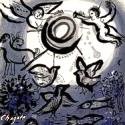
05.27.22 (Iyyar 26, 5782) The Scriptures teach that in Messiah "we have obtained an inheritance, having been predestined (προορισθέντες) according to the purpose of the One who works all things according to the counsel of his will" (Eph. 1:11), which is to say that salvation is a gift from God (יְשׁוּעָתָה לַיהוָה) and not the result of our own efforts (Eph. 2:8-9; 2 Tim. 1:9; Titus 3:5). The LORD said to Moses, "I will be gracious to whom I will be gracious, and I will show mercy to whom I will show mercy" (Exod. 33:19), a phrase Paul quoted from Torah when he said: "So then it (i.e., salvation) depends not on human will or exertion, but on God, who has mercy" (Rom. 9:16, John 1:13). In light of these things, examine your heart. Does this offend you? Does it bother you to think that you are essentially helpless to draw near to God by your own best efforts? "It is the Spirit that gives life; the flesh profits nothing" (John 6:63). Our Lord plainly said that no one can come to Him - and therefore to the truth of reality – apart from divine intervention: "No one is able to come to me unless he is "dragged away" (ἑλκύσῃ) by the Father" (John 6:44; Matt. 16:17).
How could it be any other way? Could we make a "stairway to heaven" to find God? No, God's love reaches out to us, seizes us, takes us captive, and then leads us to the Savior. The LORD chooses each one who are his; they are called the "elect" (ἐκλεκτός), and their faith is always a response (i.e., "teshuvah") to God's intervention. Now this may seem offensive because it seems to suggest that God chooses some people but not others, but that misses the point. You are given the real choice to believe in Yeshua to find life, and you are promised that whoever believes in Messiah will never be put to shame (Rom. 9:33; John 6:37; John 5:24, etc.). "Whoever will believe" means just that, and all who are invited may indeed come (2 Pet. 3:9; 1 Tim. 2:4; Ezek. 18:23). Therefore the Spirit of God cries out: "Seek the LORD while he may be found; call upon him while he is near; let the wicked forsake his way, and the unrighteous man his thoughts; let him return to the LORD, that he may have compassion on him, and to our God, for he will abundantly pardon" (Isa. 55:6-7).
Our great Savior calls out to all who are willing to hear, "Come to me, all who labor and are heavy laden, and I will give you rest. Take my yoke upon you, and learn from me, for I am gentle and lowly in heart, and you will find rest for your souls. For my yoke is easy, and my burden is light" (Matt. 10:28-30). Though it is a mystery, we are warned to "work out" (κατεργάζεσθε) our own salvation with fear and trembling, for it is God who "works in you" (ὁ ἐνεργῶν ἐν ὑμῖν) both "to will and to work" (τὸ θέλειν καὶ τὸ ἐνεργεῖν) his good pleasure" (Phil. 2:12-13).
Hebrew Lesson:
Exod. 33:19b Hebrew reading:
The gospel is "the power of God for salvation" (δύναμις γὰρ θεοῦ ἐστιν εἰς σωτηρίαν) to everyone who believes, to the Jew first and also to the Greek" (Rom. 1:16). It is a miracle of being in a right relationship with God. We are pursued by his love, and he haunts us until we surrender to his will... During the High Holidays we will again be reading the Book of Jonah, which is appropriate because like Jonah, we first must be "swallowed up" in the consciousness of our own helplessness before we realize we are undone, and that we are without remedy apart from God's gracious intervention and deliverance. We start there - in the "belly of the fish" - and later we are resurrected to go forth by God's mercy and grace. As we look to Yeshua, as we lean on him, God reveals more of himself to us. He gives us the grace and strength we need; he is always enough...
The Power to Repent...
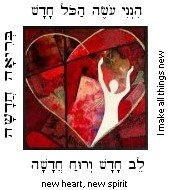
05.27.22 (Iyyar 26, 5782) Rabbi Israel Salanter, the father of the "Musar" movement, once said, "When I was young, I wanted to change the world. I tried, but the world didn't change. So I decided to change my town, but my town didn't change. Then I resolved to change my family, but my family didn't change. Then I realized that I first had to change myself." To his sagacious words I would add the essence: "but then I realized that I couldn't change myself, so I cried to the LORD for a new heart and He answered my plea..."
We can only truly change when we die and are brought back from the dead by the power of God. As Yeshua said, "Unless a grain of wheat falls into the earth and dies, it remains alone; but if it dies, it bears much fruit" (John 12:24). We must be spiritually reborn, remade, transformed, "metamorphosed" by the grace and love and kindness of God. This is the miracle of genuine teshuvah (repentance).
Contrary to the laws of "karma" and worldly wisdom, God helps those who can't help themselves... He delights to take the weak and broken and establish them with divine power, for the glory of His own Name. He confounds the mighty of this world with the "foolish" heart of faith. Blessed be His Name forever and ever...
Hebrew Lesson:
Ezek. 36:26a Hebrew reading:
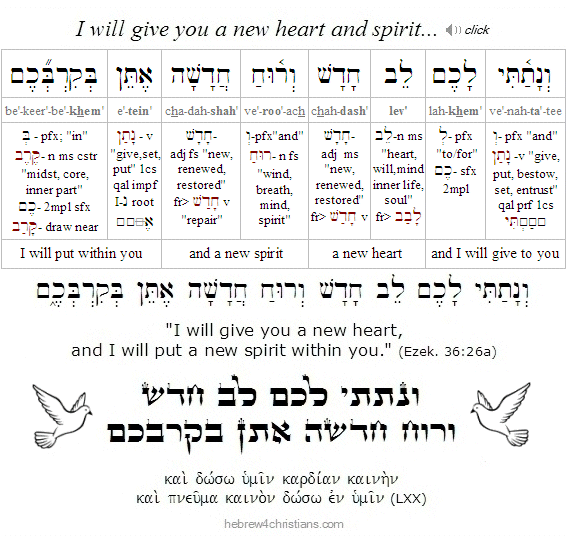 |
Find God or Die...

05.27.22 (Iyyar 26, 5782) Those who evade the truth about reality – those who willingly suppress the truth and choose to ignore the ultimate existential pathos of the human condition – must "steal" meaning and a sense of value from the truth of faith. This is because atheism is "unlivewithable," despite the cocksure bluster of those who claim otherwise... "If a human being did not have an eternal consciousness, if underlying everything there was only a wild, fermenting power that writhing in dark passions produced everything, be it significant or insignificant, if a vast, never-appeased emptiness hid beneath everything, what would life be but despair?" (Kierkegaard: Fear and Trembling). The hidden source of much human anxiety is to be without real meaning – to sense the dread of the inevitable and the unknown and to be utterly confounded and devoid of direction in the face of it...
The Torah of Yeshua is heeded by the "impoverished of spirit" who know in their bones that they must "find God or die." It is first a word spoken to the shattered of heart and crushed of spirit. As Augustine said, "You have made us for yourself, O Lord, and our hearts are restless until they rest in you." We all desperately need God, and it is a profound tragedy to be unresponsive to real hope. If you sense the invitation of the Spirit, which moves unseen as the wind, then draw near while there is still time! As it is written: "Seek the LORD while he may be found; call upon him while he is near" (Isa. 55:6).
Hebrew Lesson
Isa. 55:6 reading (click):
The Great King over All...
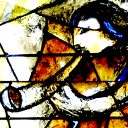
05.26.22 (Iyyar 25, 5782) The world might be in a frenzy over various earthly fears, but understand that the LORD God of Israel is upon the throne, friends. As it says in our Scriptures: "For the LORD, the Most High, is to be feared, He is the great king over all the earth" (Psalm 47:2). Those of faith understand history - including the End of Days - as the expression of God's sovereign and providential hand. The gracious Savior always works "all things together for the good" of those who are trusting in Him. Ein od milvado (אין עוד מלבדו) - there is no power that can be exercised apart from God's consent and overarching will. Indeed all authority in heaven and earth belongs to Yeshua, the "the Ruler of the Kings of the earth" (עליון למלכי הארץ). As it is written, "All the nations you have made shall come and worship before you, O Lord, and shall glorify your name" (Psalm 86:9).
Hebrew Lesson
Psalm 47:2 reading (click):
Surrendering your Destiny...
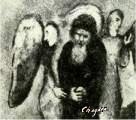
05.26.22 (Iyyar 25, 5782) Someone once wrote me and asked whether they were beyond the hope of redemption because they wrestled with depression and despair... If the life of a follower of the Messiah is to be marked by unspeakable joy, a heart overflowing with "living waters," and inner peace, doesn't emotional pain, a sense of emptiness, and numbness of heart indicate the absence of genuine regeneration?
My response to this honest question was that the struggle itself indicates the presence of real faith, and it is therefore likely that this person was going through a "dark night of the soul," that is, a time of testing and refinement... I counseled him that we are to trust God in the darkness and abandon everything to Him -- even our eternal destiny -- regardless of the ambiguity and sorrows of the present moment.
We must offer up our heart to God and let whatever happens to us happen. By God's grace we are what we are (χάριτι δὲ θεοῦ εἰμι ὅ εἰμι). As Job in his great anguish of soul said: "Behold, even if he slays me, I will hope in him; I argue my ways before Him" (Job 13:15). In effect Job laid down his life to be slain and made appeal to God's justice and love, despite the mystery and agony of his suffering...
Hebrew Lesson
Job 13:15 reading (click):
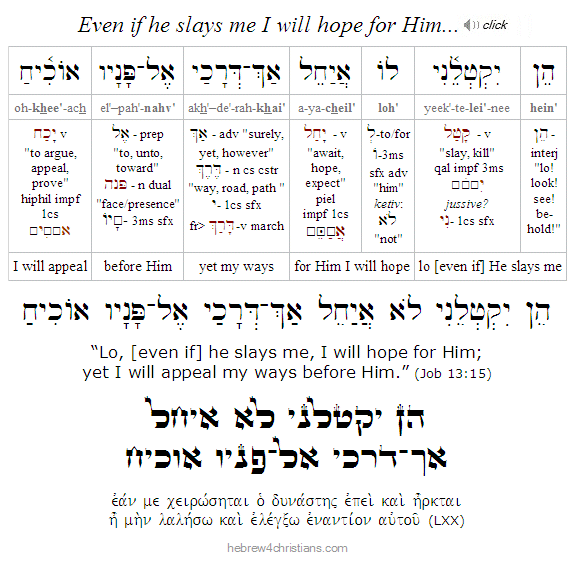 |
The Gift of Willingness...

05.25.22 (Iyyar 24, 5782) People sometimes confuse morality with religion, saying things like, "if I do good, the rest will take care of itself," but Yeshua did not come to simply teach (or reinforce) moral truth, but to die for our sins and to transform our nature. The message of the cross is not that we should reform ourselves with renewed hope, but rather that our old nature must die and be replaced with something far greater... When King David cried out to the Lord, "Create in me a clean heart, O God," he did not use the Hebrew word yatzar (יָצַר), which means to "fashion" or "form" something from pre-existing material (Gen. 2:7), but he instead used the word bara (בָּרָא), a verb exclusively used in the Torah to refer to God's direct creation of the cosmos (Gen. 1:1). In other words, King David understood that no amount of reformation of his character would be enough, and therefore he appealed to that very power of God that alone could create yesh me'ayin, or "out of nothing." Such was the nature of the remedy required that was fulfilled in the cross of Messiah...
Hebrew Lesson
Psalm 51:10 reading (click):
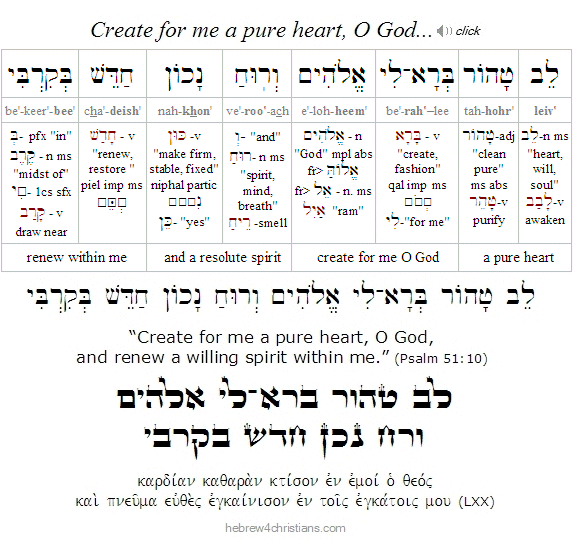 |
Yeshua taught, "Blessed are the pure in heart, for they shall see God" (Matt. 5:8). The Greek word translated "pure" is katharos (καθαρός), sometimes used describe the cleansing of a wound (catharsis), or to describe the unalloyed quality of a substance revealed through refining fire. Metaphorically, then, purity of heart refers to separation from the profane - singleness of vision, wholeheartedness, passion, and focused desire for the sacred. Faith is a great trembling of love: "With this ring I do worship thee..." As we center our affections on Yeshua, we become pure in heart -- i.e., unified, made whole, and healed of our inner fragmentation. We see the Lord both in this world, through his effects, and then panim el-panim (פָּנִים אֶל־פָּנִים), "face to face," in the world to come. Our hope purifies us for that coming great day of full disclosure (1 John 3:2-3; Heb. 12:14).
Note: It is an ongoing temptation to be appalled over this evil world and its insanity... Dear Lord God, give us strength! Help us focus on what is most important and to believe that you are working "all things together for good." Give us the willingness to do your will, or even the willingness to be willing to do your will. Thank you for your lovingkindness, Lord. Amen.
 |
Shade on your right hand...

[ If you leave everything in God's hands, eventually you will see God's hand in everything.... ]
05.25.22 (Iyyar 24, 5782) When we forget that God is in complete control of all things, we tend to grow anxious... Feeling worried comes from focusing on ourselves, a perspective that can make us feel alone, forgotten, and even victimized in this world. Worry moves us to defend ourselves, to seek refuge in our own devices, and to forfeit the will of God according to the dictates of lesser fears... The sages say it is not permitted to worry: "To worry is a sin; only one sort of worry is permissible; to worry because one worries." We should worry that we worry because this indicates our hardness of heart and our unbelief! God's name YHVH (יהוה) means "Presence," "Breath," "Life," and "Love." So why be anxious for "tomorrow"? As we live today, we really only have this moment, but this moment is entirely sufficient when we walk in the light of God and seek to know him in all our ways. Amen, so we are admonished: "Let the peace of God rule in you" (Col. 3:15).
Where it says, "The LORD is your protector; the LORD is your shade at your right hand" (Psalm 121:5), note that God's Presence is likened to the shadow (צֵל) cast by someone who walks closely beside you, holding your hand (Psalm 23:4). Your "right hand" (יְמִינֶךָ) refers to your decision to "see the unseen" by performing acts of righteousness in this world: the blessing of God is then cast upon all you do (Deut. 2:7; Psalm 1:3). Neither does God "slumber or sleep," for the LORD your Guardian (יְהוָה שׁמְרֶךָ) is fully awake, full of life, insuperable power, and divine action! Our help comes from the LORD, "oseh shamayim va'aretz" (עשֵׂה שָׁמַיִם וָאָרֶץ) - the Maker of heaven and earth.
יהוה שׁמרך
יהוה צלך על־יד ימינך
Adonai · shohm·re'·kha
Adonai · tzee·le·kha · al-yahd · ye·mee·ne'·kha

"The LORD is your Protector;
the LORD is your shade on your right hand."
(Psalm 121:5)

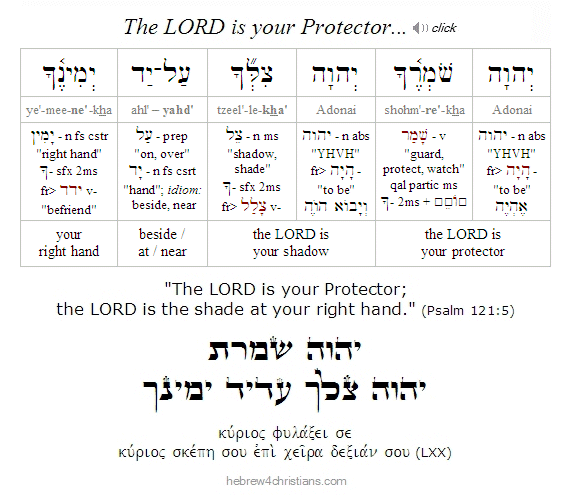
Where it is written, "Let us make man in our image and likeness (בְּצַלְמֵנוּ כִּדְמוּתֵנוּ), we note that the word "image" (i.e., tzelem: צֶלֶם) comes from the word tzel (צֵל), meaning "shadow," thus suggesting that man was originally created to cleave to God as closely as a shadow follows its Substance. And just as a shadow resembles its originating substance, so man was to resemble the reality of the Divine Presence in this world. The New Testament reveals that essential purpose of the redeemed life is to become conformed (σύμμορφος) to the image and likeness of Yeshua (Rom. 8:29, 1 Pet. 2:21). "Just as we have borne the image of the man of dust, we shall also bear the image of the man of heaven" (1 Cor. 15:49). The work of the Spirit is "Messiah in you - the hope of glory" (Col. 1:27). The question therefore isn't, "do you accept Yeshua as your Savior" as much as it is, "Does Yeshua live within your heart?"
The Heart of Torah...
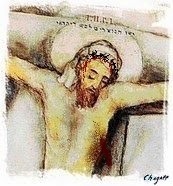
05.24.22 (Iyyar 23, 5782) Though it is indeed true that "you are saved by grace through faith" (τῇ χάριτί ἐστε σεσῳσμένοι διὰ τῆς πίστεως) -- that is, you are declared "righteous" (צַדִּיק), set free from the curse of the law (Deut. 27:26, Gal. 3:13), and are given eternal life by means of trusting in the promise of God's love -- it is dangerous to assume that the freedom God gives you negates the significance of the law (תּוֹרָה) and its expression of God's holy will. Chas v'chalilah - God forbid! The sacrificial system of the law was a means of provision to find healing for our sin until the Messiah came to deliver us from the sickness of spiritual death. The cross means nothing apart from the law, and the law means nothing apart from the cross: Only the cross allows God's love and truth to meet (Psalm 85:10); only the cross reveals the true Holy of Holies where the blood was placed over the Ark of the Law; and only the cross intimates the Inner Sanctum of God's heart.
Because of the cross, a holy God is able to truly love and help the trusting sinner (Rom. 3:26). It is written: "Righteousness and justice are the foundation of your throne (צֶדֶק וּמִשְׁפָּט מְכוֹן כִּסְאֶךָ); steadfast love and faithfulness go before you" (Psalm 89:14). Because of Yeshua, God is vindicated as entirely just - and the Justifier of those who trust in His redemptive love (Rom. 3:24-26). This is the deeper unity of the Name YHVH (יהוה), the Savior and LORD, revealed to Moses after the sin of the Golden Calf (Exod. 34:6-7), and this is the essential meaning of the cross of Yeshua, where the LORD passionately "prayed within Himself" so that His compassion would overcome His fearful judgment for our sins. "... that they may be one, even as we are one" (John 17:22). Yeshua is the prayer of God the Father for His children...
חסד־ואמת נפגשׁו
צדק ושׁלום נשׁקו
che'·sed - ve·e·met neef·gah'·shoo
tze'·dek ve·shah·lom nah·shah'·koo

"Love and truth meet;
righteousness and peace have kissed."
(Psalm 85:10)

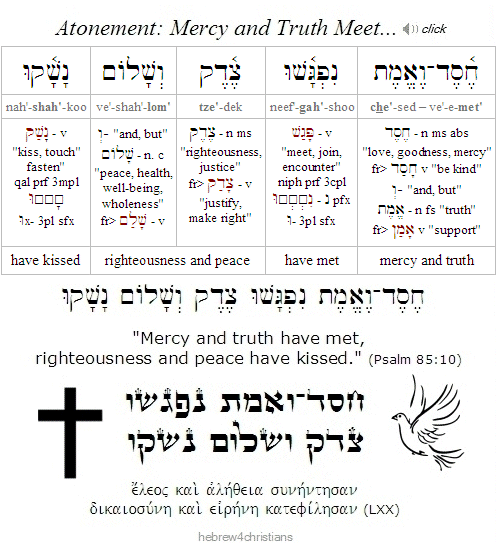
There is always a spiritual temptation to disregard the importance of the law and to offer various excuses why it no longer applies to the Christian. We must be wary about how our lower nature seeks to justify its own lawlessness... As Paul said, "Do we then overthrow the law by this faith? By no means! On the contrary, we establish the law (Rom. 3:31). The commandment is "holy and just and good" (Rom. 7:12). Please understand that I am not advocating Torah observance as the means of attaining righteousness before God (since that centers on the former covenant given at Sinai) and yet neither am I saying the Christian should ignore the law and regard it as obsolete or without divine voice (since the new covenant is a matter of the law being written upon the heart). Yeshua is the eternal Word of God, the Voice in the midst of the Fire, and yet he warned that many who professed faith in him would one day be rejected because they spurned God's law: "On that day many will say to me, 'Lord, Lord, did we not prophesy in your name, and cast out demons in your name, and do many mighty works in your name?' And then will I declare to them, 'I never knew you; depart from me, you workers of lawlessness' (i.e., ἀνομία, from -α ('not') + νομος, 'torah'). If God is love, he is, by definition, something more than mere kindness. And it appears, from all the records, that though he has often rebuked and condemned us, he has never regarded us with contempt. He has paid us the intolerable compliment of loving us in the deepest, most tragic, most inexorable sense" (C.S. Lewis: Problem of Pain). We are given a "severe mercy." The harrowing agony of the cross, the torture and suffering of our Lord, should shock us into understanding the weight of the law. The spectacle of the cross puts an end to all mawkish sentimentality about God's love. As Lewis said, the Lord loves you "tragically," at the expense of his own precious life offered for your deliverance...
Living in response to the love of God never leads to spiritual anarchy or "lawlessness," since the Law of Messiah (תּוֹרַת הַמָּשִׁיחַ) is to "bear one another's burdens" (Gal. 6:2) by emulating the sacrificial love that Yeshua has revealed and bestowed to us (John 13:15, 34, 15:12, etc.). God's love transforms and changes us. "If you love me," Yeshua said, "keep my commandments" (John 14:15, 15:10). God loves you just the way you are, yes, but he loves you so much he will never leave you just the way you are... Living in genuine faith means living by means of the agency of the Holy Spirit (רוּחַ הַקּדֶשׁ) -- also called the Comforter (παρακλητος) -- through whom the inner intent of the law is "written upon the heart" by faith (Jer. 31:33; Gal. 5:18, 22-23). The heart of the law, then, is the law of the Gospel message itself - to love God and to serve others through the miraculous agency of God's redemptive grace (Gal 5:13). It is a circle of divine communion, a result of our union with Messiah. Ultimately the love of God is the fulfillment of the law (Rom. 13:8-10, Gal. 5:14; James 2:8), and this love is manifest in the Person and Presence of Yeshua, the perfect fulfillment of the law of love (John 1:1, 13:34-35, 1 John 4:10-12, 2 John 1:6, etc.). The love of Yeshua imparts "righteousness to every one who believes" (Rom. 6:22; 10:4).
"Rejoice with fear and trembling" (Phil. 2:12). Those who do not tremble before the cross do not understand God's holiness and anger against sin; those who do not rejoice before the cross do not understand God's great compassion and love...
Hebrew Lesson
Psalm 2:11 reading (click):
For more see: "The Heart of the Law and the Law of the Gospel."
Bound by Love's Promise...

[ "Add oil to the lamp before the light dies, for if it does, the oil will do no good." (Chasidic) ]
05.24.22 (Iyyar 23, 5782) From our Torah this week (i.e., Bechukotai) we read: "Then [after all the various judgments have befallen the people] I will remember my covenant with Jacob, and I will remember my covenant with Isaac and my covenant with Abraham, and I will remember the land" (Lev. 26:42). Here we note the "deeper Torah" of God's unconditional promise to the children of Israel that "contextualizes" the various tribulations they would suffer because of their disobedience to the terms of the covenant given at Sinai (Gen. 15). Therefore the Apostle Paul appealed to God's promises given to Abraham as the foundation for Torah, not to Israel's righteousness procured by means of the law (Rom. 9:31; Gal. 4:24-27). "For the promise to Abraham and his offspring that he would be heir of the world did not come through the law (οὐ γὰρ διὰ νόμου) but through the righteousness of faith" (Rom. 4:13).
The better covenant of Zion was prefigured at Mount Moriah - and hearkens back to Abraham and Isaac - and not to the later covenant made at Sinai (Gen. 22:16-18; Heb. 6:13-15; John 3:16). As for Israel in the galut (exile), God has promised: "But I will for their sake remember the covenant with their forefathers, whom I brought out of the land of Egypt in the sight of the nations, that I might be their God: I am the LORD" (Lev. 26:45). Note again that this covenant relationship was established when we were without anything – we had no Torah, no mitzvot, nor any good deeds to commend ourselves before heaven. Nevertheless, God chose us and called us his people, and all this comes from his great love. Amen. Bound by love's promise... Now that's Torah!!!
Hebrew Lesson
Psalm 31:3b reading (click):
Dangers of Carelessness...

[ The following is related to our Torah reading for this week, parashat Bechukotai... ]
05.23.22 (Iyyar 22, 5782) This week's Torah portion (i.e., Bechukotai) includes the first great "rebuke" (i.e., tochechah: הוכחה) of the community of Israel given in the Scriptures (the second is found in Ki Tavo, i.e., Deut. 28:15-68). In this sober and ominous section, God promises the people great blessing if they would obey Him (Lev. 26:3-13), but He forewarns that exile, persecution and other progressively worse punishments would befall them if they would break faith with Him (Lev. 26:14-46). The sages note that divine censure would come if the people "forgot" about God or otherwise became careless in their observance of His laws. They point out that the refrain "if you walk contrary to me" (והלכתם עמי בקרי) - which occurs several times during the rebuke - really means "if you walk carelessly (i.e., keri: קרי) with me." Rashi notes that the verb קָרָה means "to befall" or "to happen" and therefore suggests a sense of randomness (the related word mikreh [מִקְרֶה] means "coincidence"). If the people regarded the events of life as "random," then God would reciprocate by bringing senseless trouble into their lives... For this reason the sages regard a careless attitude about God's will as the very first step to inevitable apostasy. In other words, regarding whatever happens in life as mere "coincidence" essentially denies God's Presence (hashgachah pratit), and this attitude will eventually call for God's corrective intervention. People may be "hot or cold" regarding their relationship with Him, but God will never give the option of affecting indifference toward Him (Rev. 3:15-16). Indeed, God often brings hardship into our lives to regain our attention and cause us to return to Him. As C.S. Lewis once said, "God whispers to us in our pleasures, speaks to us in our conscience, but shouts in our pains: It is His megaphone to rouse a deaf world."
The portion begins, "If you walk in my statutes (i.e., bechukotai: בחקתי) and guard my commandments and you do them..." (Lev. 26:3), which led Rabbi Hanina to ask why the seemingly superfluous phrase, "and you do them" (וַעֲשִׂיתֶם אתָם) was included here. After all, if the people would walk in God's statutes and guard his commandments, wouldn't they necessarily be doing them? He then suggested that the vowels of the word otam ("them") should be vocalized as atem (אַתֶּם), "you," which would then change the sense of the phrase to become, "you shall make (עָשָׂה) yourselves" (i.e., into God's image). The logical corollary of this seems to imply that if you do not walk in God's statutes and guard his commandments, you will disfigure the image of God within you...
Interestingly, God specifically cites the failure to observe the Sabbatical Year (i.e., shemittah), mentioned earlier in parashat Behar, as part of the reason why His judgment would come (Lev. 26:34-35,43). The observance of the Sabbatical Year, of course, required complete faith that God was in control of all the "happenings" of nature. Like the Sabbath day, the Sabbatical year was designated to proclaim that God is the King of the universe. Those who disregarded this law therefore denied God's rule over nature, and thereby denied the existence of spiritual reality that ultimately governs the physical world...
יִרְאַת יְהוָה רֵאשִׁית דָּעַת
חָכְמָה וּמוּסָר אֱוִילִים בָּזוּ
yeer·at · Adonai · rei·sheet · dah'·at
chokh·mah · oo·moo·sar · e·vee·leem · bah'·zoo

"The fear of the LORD is the beginning of knowledge;
fools despise wisdom and moral discipline." (Prov. 1:7)
Download Study Card

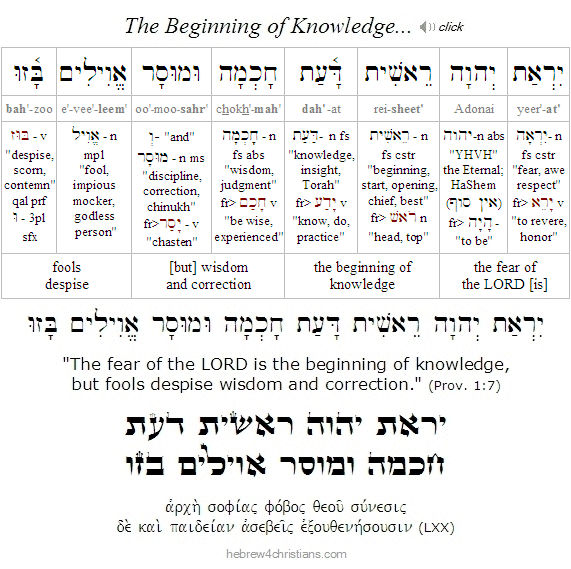
The Scriptures warn us to "pay more careful attention to what we have heard so that we do not drift away" (Heb. 2:1). We must be anchored to the truth lest we become shipwrecked in our faith. Drifting occurs slowly and almost imperceptibly, though the end result is as deadly as openly turning away from God in outright apostasy. As C.S. Lewis once wrote, "The safest road to hell is the gradual one - the gentle slope, soft underfoot, without sudden turnings, without milestones, without signposts." The devil seeks to lull you to sleep...
Spiritual danger is just as real as physical danger, though most people pretend it isn't because it isn't as easily seen. The danger today is to give up hope, to "go with the flow," to become numb, to drift off asleep, and to die inside... It is far more dangerous to tranquilly ignore God's mercy, or to make a pretense of knowing God's grace, than it is to blatantly break his law. Therefore the urgent need is to remember, to hear, and to awaken the soul to face the truth about reality. We must focus the heart, concentrate the will, and consciously "set" the Lord always before us (Psalm 16:8). Each day we must awaken from our native emptiness to reaffirm the central truth: "Hear, O Israel, the LORD is our God; the LORD is one; and you shall love the LORD your God with all your heart and with all your soul and with all your might" (Deut. 6:4-5). As the Apostle Paul said, "Awake, you who sleep, Arise from the dead, And Messiah will give you light" (Eph. 5:14).
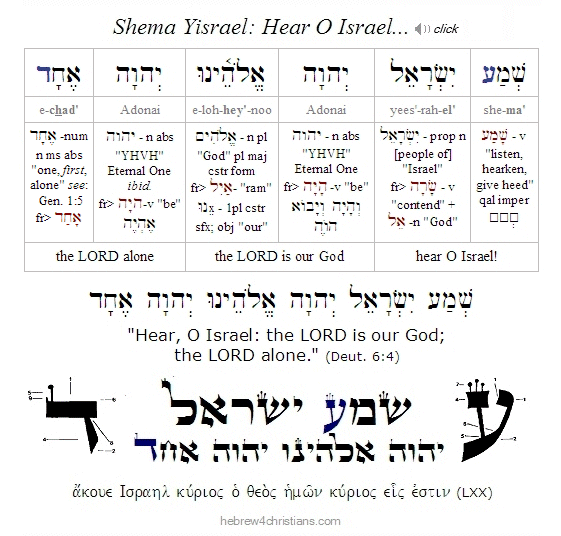 |
Therefore we must be vigilant to secure our high calling in Messiah: "Let us know; let us press on (i.e., נִרְדְּפָה, "pursue after") to know the LORD; His going out is sure as the dawn; He will come to us as the showers, as the spring rains that water the earth" (Hosea 6:3). The day is drawing near, and now - more than ever - we must remain steadfast. May God help you pursue him be'khol levavkha – "with all your heart" – because He has promised, "You will seek me and find me, when you seek me with all your heart" (Jer. 29:13). And may the love of the LORD be upon you, even as you put your hope in him (Psalm 33:22).
For more on this subject, see "The Tochechah: Further Thoughts on Bechukotai."
The Ascension of Messiah...
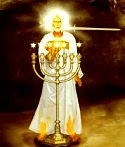
[ Wednesday, May 25th after sundown marks the 40th day of the Omer Count... ]
05.23.22 (Iyyar 22, 5782) Forty days after his resurrection, on Mem B'Omer (see Acts 1:3), Yeshua met with his disciples at the Mount of Olives (i.e., הַר הַזֵּיתִים) near Jerusalem, where he told them they would receive the promised Holy Spirit at the appointed jubilee of Shavuot (i.e., "Pentecost"). Upon his departure he blessed them, and Yeshua began to "ascend" bodily into heaven, thus signifying the close of his ministry on earth ("God with us") in anticipation of the advent of the Holy Spirit ("God in us"). [Note that in the New Testament, the account of the ascension of Yeshua is found in Luke 24:50-51 and Acts 1:3-11)].
The ascension of the Messiah fulfills prophecy as the glory of Yeshua enthroned at the right hand of the Father (Psalm 110:1; Matt. 22:41-46; 26:64), and therefore it marks the transition from his earthy ministry back to his heavenly one, and this is important because it annulled any further claim that Yeshua would physically visit people on earth until the parousia, or the second coming (note that Apostle Paul had encountered Yeshua after the ascension via visions, and not true physical contact in the earthly realm (see Acts 9:1-19; Gal. 1:11-2:1; 1 Cor. 15:8). The ascension signified the ultimate triumph of Yeshua as the "Son of Man" when he physically entered into the heavenly realm. It was not merely the spirit of Messiah that ascended to glory, but redeemed humanity that he represented in his resurrected body. The ascension eternally vindicates and enthrones the salvation of God in Yeshua.
But why 40 days? And what was Yeshua doing during this time? Frankly we don't know the details, though "40 days and nights" represents a period of completeness in the Scriptures. For instance, the cataclysmic judgment during the time of the great flood (Gen. 7:1), the embalming of Jacob (i.e., Israel) in Egypt (Gen. 50:3), the two occasions Moses ascended Sinai to receive the Torah (Exod. 24:18; Exod. 34:28), the intercession Moses made on behalf of Israel (Deut. 9:25); the mission of the spies who searched out the land (Num. 14:34), and Yeshua's tempation in the desert before he began his public ministry (Matt. 4:2; Mark 1:13) as well as his post-resurrection appearances (Acts 1:3) - all were 40 days in duration.
What is spiritually vital about all this, however, is that our Lord, the "Final Adam" (῾Ο ἔσχατος ᾽Αδὰμ, 1 Cor. 15:45) is now seated at the right hand of God (Psalm 110:1), forever enthroned as the Savior and LORD over all, the King of Glory (מֶלֶךְ הַכָּבוֹד) who has successfully completed his great mission to save humanity from the curse of death because of the original transgression in the garden (Rom. 5:12-21; 1 Cor. 15:21-22).
It was prophesied of our Lord Yeshua in Psalm 68:19 - "You have ascended to the highest (עָלִיתָ לַמָּרוֹם); You have taken captives out of captivity (שָׁבִיתָ שֶּׁבִי); You have acquired gifts for men (לָקַחְתָּ מַתָּנוֹת בָּאָדָם), yea, even for the rebellious (וְאַף סוֹרְרִים), that the LORD God may dwell among them (לִשְׁכֹּן יָהּ אֱלֹהִים). The apostle Paul later quoted this verse and applied it to the victory of Yeshua at the cross, explaining that He had first descended at his death and burial but later ascended far above all (Eph. 4:8-10; Col. 2:15). By delivering captive sinners from their captivity to Satan, the LORD bestowed gifts of the Spirit and eternal life to all who believe. Praise his name forever!
About Mem B'Omer...
We are presently in the midst of Sefirat Ha-Omer (the "Counting of the Omer"), the 49 day countdown that runs from Nisan 16 through Sivan 5. The first day of the omer count began on the second day of Passover, and the last day occurs the day before Shavuot ("Pentecost"). On our Gregorian calendars, these dates run from Saturday, April 16th until Saturday, June 4th this year. This is a countdown period leading to the giving of the Torah at Sinai and the giving of the Holy Spirit to Yeshua's disciples...
 |
Wednesday, May 25th after sundown (i.e., Iyyar 25) marks the 40th day of the Omer Count (i.e., Mem B'Omer), the time associated with the ascension of Yeshua back to the heavenly realm (Luke 24:44-53; Acts 1:3; 1:9-11; Eph. 4:8). Recall that Yeshua told His followers that it was good that he would leave them, so that the Holy Spirit (רוּחַ הַקּדֶשׁ), the "Comforter" or "Advocate" (παράκλητος), would be imparted to them. He said: "But I tell you the truth, it is for your advantage that I am going away. For if I do not go away, the Advocate (ὁ παράκλητος) will not come to you, but if I go, I will send him to you" (John 16:7). Notice that the word translated as "advantage" here is the Greek word συμφέρω (from σύν, "with" and φέρω, "to carry"), which suggests that the Holy Spirit would impart divine power that would "carry us" through the trials of this life... O friends, how we need the Spirit of God to strengthen us! During this season, may our hearts cry out: בו רוח אלהים - bo, Ruach Elohim: "Come, Holy Spirit." Help us, O God, be your witnesses in this end-times generation. Amen.
Hebrew Lesson
Psalm 47:5 reading (click):
Note: For more on this, see "Mem B'Omer and the Ascension of Yeshua."
Parashat Bechukotai - בְּחֻקּתַי
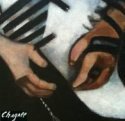
05.22.22 (Iyyar 21, 5782) Our Torah reading this week, parashat Bechukotai, is the final portion of the central book of the Torah (i.e, Leviticus) which begins with the promise that if the Israelites would walk in the LORD's statutes (chukkot) and commandments (mitzvot) and perform them, then they would enjoy material blessings and dwell securely in the promised land. Moreover the LORD Himself would make His dwelling with them and would walk among them as their God. The people of Israel would then truly be am segulah (עַם סְגֻלָּה) - a treasured people among all the nations of the earth.
On the other hand, if the people disobeyed God and disregarded His commandments, then they would be considered covenant-breakers, and they would experience all manner of distress and tribulation in their lives. They would experience panic attacks, diseases, heartache, and all manner of tsuris (vexation, trouble); their enemies would eat their increase, and those who hate them would rule over them; they would flee at the rustle of a leaf, and their lives would be full of terror and misery – all because they refused to put the LORD God first in their lives. And if after all this trouble the people would still refuse to return to the LORD, the worst punishment of all would befall them: exile from the promised land and banishment from the Presence of the LORD Himself.
Nonetheless, despite their disobedience, God's love and mercy for Israel would never fully depart, for "if they confess their iniquity and the iniquity of their fathers in their treachery that they committed against me, and also in walking contrary to me, so that I walked contrary to them and brought them into the land of their enemies – if then their uncircumcised heart is humbled and they make amends for their iniquity, then I will remember my covenant with Jacob, and I will remember my covenant with Isaac and my covenant with Abraham, and I will remember the land" (Lev. 26:40-42). Moreover, even while they are in exile, in the land of their enemies, God vowed: "I will not cast them away; nor will I ever abhor them to destroy them and to break My covenant with them; for I am the LORD their God" (Lev. 26:44).
The portion (and the Book of Leviticus) ends with a discussion of various laws pertaining to vows and tithes that a person may make to contribute towards the upkeep of the Sanctuary. These include dedications of persons, animals, houses, and lands. The scroll of Leviticus ends with the emphatic statement: "These are the commandments that the LORD commanded Moses for the people of Israel on Mount Sinai" (Lev. 27:34).
The Refuge of His Love...

05.20.22 (Iyyar 19, 5782) Contrary to the misleading notion that worldly prosperity and comfort are tokens of God's favor, we discover the truth that the Lord often leads his children to places of sorrow and testing wherein they find nothing on earth in which to find solace, and therefore they are compelled to cast themselves on Him alone.... This is the "hidden blessing" (i.e., berakhah nisteret: בְּרַכָה נִסְתֶרֶת) that is bestowed through faithful perseverance that endures despite affliction, namely, the blessing that comes when our hearts are driven to God and to God alone for respite.
When we are brought so low that our troubles are incommunicable to others, when we feel so overwhelmed and so burdened that we can only groan in lament to God, then we enter into the "secret place," where our heavenly Father sees in secret.
By means of divine fortuity, by means of sacred and providential grace, trouble will draw you close to your heavenly Father for your comfort. God then becomes your only hope; God becomes your most sacred trust, your truest and greatest friend... and surely such revelation is the most precious and esteemed of all. Contrary, then, to the world's shallow valuation of blessing, true blessedness is found in the Everlasting Arms of the one who holds your world together by the strength of his love.
So in the midst of your trouble, abandon yourself to God's care and put your full confidence in his kindness and deliverance. Doing so will dispel fear and anxiety from your heart. Let your heart be strengthened and anchored in trust, for God will show himself strong in your weakness, and your confidence in the midst of your secret distress will glorify his name... The faithful see God in everything, in every circumstance, and they are confident that even if the earth should shake and the mountains totter, God is our refuge and strength, a very present help in times of trouble. Yea, "the LORD will be a refuge for the oppressed, a refuge for times of trouble, for you, O LORD, have never forsaken those who seek you."
Hebrew Lesson
Psalm 9:9 reading (click):
Ultimate Concerns...
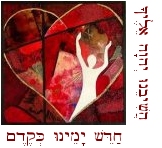
[ We are "hard-wired" to value and desire what we esteem as good. It's not a question of whether we worship, but what... So what's your ultimate concern? What are you looking to for life? ]
05.20.22 (Iyyar 19, 5782) It is written in our Torah: "Take care, lest you forget the covenant of the LORD your God, which he made with you, and make a carved image, the form of anything that the LORD your God has forbidden you... 'You shall not make for yourself a carved image (לא־תַעֲשֶׂה־לְךָ פֶסֶל) or any likeness of anything that is in heaven above, or that is on the earth beneath, or that is in the water under the earth" (Deut. 4:23; 5:8). Literally this refers to the ancient practice of bowing before "mediating forces" of God, often symbolized by art and ritual, as a token of veneration or as a means of finding "acceptance" within a group. We are not to imitate such customs of the pagan world around us; on the contrary, we testify of the One True God and repudiate the need for intermediaries between God and man... On a different level, "bowing before an idol" means passively yielding to the world and its ideals rather than submitting to the truth. When we seek to fit in, to feel like we belong, and follow the trends and passions of the crowd, we express idolatry of heart. Most intimately, an idol is a source of desire, happiness, and security apart from the LORD. Your "god" is whatever your heart admires, follows and loves... If you have "other gods" before the LORD, then something is wrong, since we were created by God to find life in Him alone. "Surely you don't think the Scripture speaks vainly when it says: the spirit which He sent to live in us wants us for himself alone?" (James 4:5) "Grace will save a man... but it will not save him and his idol" (Tozer). Therefore, my dear friends, flee from idolatry (1 Cor. 10:14).
The purpose or "goal" of life is to learn to be loved by God, to accept our place within his heart, and to "live, move, and have our being" rightly related to Divine Truth revealed in Messiah. The first lesson, then, is to know who we are and how much we are loved. Learning this is often a struggle, however. We are easily distracted. We forget why we are here. Because of this we must constantly remind ourselves of our true identity, of our high calling, and the reason for our lives... Much of our trouble comes from "disordered love," by elevating what is finite to the status of the infinite. Indeed idolatry is the substitution of not-god (לא־אֵל) for the sacred, absolutizing the present and worshiping the temporal. We find lasting inner peace only after we surrender to God's will for our lives...
Often we are slow to realize our desperate need and God therefore allows us to revisit the various "waste places" of our own lusts and fears until we have become sick of ourselves -- sick "to the bones." We have to be willing "to give up our sickness." Usually that means that we must experience repeated failures until we have "learned from the heart" that the LORD alone is our Healer and Deliverer (2 Cor. 7:10). Ironically it is only after we have abandoned teshuvah in our strength that we are enabled to truly turn.
God knows that we are unable to overcome our inner corruption - that we are unable to help ourselves - apart from his miraculous intervention, and therefore he creates a new heart and puts a new spirit within us (Ezek. 36:26). In this way the Lord makes us direct witnesses of his transforming power and glory... Our changed lives are made testimonies sent out to impart hope, to raise the dead of heart, and to bind up the bruised of spirit.
Hebrew Lesson
Ezek. 36:26a reading (click):
Struggles of Faith...

05.20.22 (Iyyar 19, 5782) Do you sometimes have trouble trusting God? Do you wrestle with fear, anxiety, or worry? Does an inexplicable dread or sense of hopelessness sometimes oppress you? Do you secretly wonder what's wrong with you - and whether you are truly saved, after all? Please hang on. Doubting and questioning are often a part of the journey of faith, and we don't have to be afraid of our questions, concerns, and difficulties... Being full of "certainty" is not the same as being full of faith, after all, since many sincere people are sincerely self-deceived, while many others experience fear, loneliness, and trouble as a result of their faith. There is so much we simply do not know, and it is dishonest to pretend otherwise. God knows your heart and its struggles; he knows all your secret fears. Thankfully, there is a special prayer included in the holy Scriptures for those times when we feel especially unsteady or insecure: "Lord, I believe, help thou my unbelief..." (Mark 9:24) Here we may bring our (lack of) faith to God for healing....
We should not be scandalized that we sometimes struggle with our faith. After all, Yeshua constantly questioned his disciples: "Do you now believe?" (John 16:31). And that's why we are commanded to "put off" the old nature and to "put on" the new nature -- because God knows we are fickle admixtures, contradictions, carnal-yet-spiritual, inwardly divided souls that need to learn to trust in the miracle of God with all our hearts....
Of course it's easy to believe when things are going well, when faith "makes sense" or provides you with a sense of community, etc., but when things are difficult, when there are disappointments, pain, grief, losses, etc., then you need to trust in the unseen good, the "hidden hand" of God's love, despite the trouble of your present circumstances. This is part of faith's journey: leaning on God's care, despite the "valley of the shadow of death," despite the tests... The way may sometimes be difficult, but "the tested genuineness of your faith -- more precious than gold that perishes though it is tested by fire -- will be found to result in praise and glory and honor at the revelation of Yeshua the Messiah" (1 Pet. 1:7).
Hebrew Lesson
Psalm 119:19 reading with comments:
Found in our Depths...
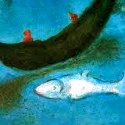
05.19.22 (Iyyar 18, 5782) It is written in our Torah, "The LORD your God will return as you return (ושׁב יהוה אלהיך את־שׁבותך), and will have mercy upon you, turning to gather you back..." (Deut 30:3). This has both a present and prophetic application. First, in the present hour, if you turn to God, he will show you compassion, and he will "gather back" all those distant and fragmented parts of yourself into shalom and wholeness. He will restore your lost days; he will bring you out of exile and give you comfort in Yeshua. He makes all things new. "Draw near, therefore to God, and he will draw near to you" (James 4:8). Second, the LORD will return to earth as the Jewish people return from their captivity, and he will restore Zion during the time of the final redemption. The LORD will turn captivity into mercy; he will turn in his compassion to his people. As it is written: "I will be found by you, declares the LORD... (והשׁבתי אתכם אל־המקום) and I will bring you back to the place..." (Jer. 29:14).
The language of the Torah here is emphatic: "even if your exile is at the farthest edge of heaven (בקצה השמים), from there the LORD your God will gather you..." (Deut. 30:4). Note that this prophecy is written in the singular and therefore pertains to each individual exile. God will "gather you," that is, he bring you back to make you whole. Even if your exile (singular) is to the uttermost, the LORD will take you and deliver you, as it is written, "He is able to save to the uttermost (σῴζειν εἰς τὸ παντελὲς) those who draw near to God through him, since he always lives to make intercession for them" (Heb. 7:25). As long as you have breath within you and an iota of hope in Him, God will bring you through the darkness.
Hebrew Lesson
Deut. 31:6b reading (click):
Broken and Remade...

05.19.22 (Iyyar 18, 5782) No one wants to say they are needy, broken, weak, and so on, and indeed such a confession is abhorrent to the heart of the proud. The truth, however, is that we are indeed all these things, and Yeshua told us we were blessed if we understood this (Matt. 5:3-6). There is great danger to pretend you are strong and capable of living life on your own terms, since eventually you will be blindsided by the truth about your condition. On the other hand, the confession of our weakness opens the way to God's power, as Yeshua said to Paul in his affliction: "My grace is sufficient for you (דַּי־לְךָ חַסְדִּי), for my power is made perfect in weakness" (2 Cor. 12:9). Eventually Paul came to see that the various trials, persecutions, and afflictions in his life taught his profound dependence on God: "for when I am weak, then I am strong."
Access to this grace, however, comes at the expense of our pride. We must humbly confess who and what we are, and therefore we must entirely abandon hope in our own strength and virtues. "We are only as sick as the secrets we keep," especially those secrets we keep from ourselves - those self-deceptions and illusions we use to defend ourselves.
Suppose, for instance, that you have the bad habit of complaining and even cursing when you are beset by troubles, and you want to stop doing these behaviors. You may resolve to be more optimistic and grateful, or you may read self-help books -- or even take anger management classes -- but nothing will do you any lasting good until you know "in your bones" that you are powerless to change your heart. That is the first step to being set free. Or suppose that you are habitually unhappy, troubled, anxious, and in pain, yet you want to find inner peace and joy. Again, apart from the miracle of God there is no lasting remedy. You must be honest with yourself and confess the truth of your condition, asking God to do in you what you cannot do for yourself. As Yeshua said: "What is impossible with man is possible with God." So in this way God uses your sins to correct you or bring you to the end of yourself, and in that way awareness of your personal weakness is a blessing from God.
Recall that Yeshua said out of the heart proceed "evil thoughts," or more literally, "evil dialogs" or reasonings within yourself (διαλογισμοι πονηροι). You are tethered to yourself - you cannot escape yourself - yet a divided house cannot stand. Attempting to relate to yourself apart from a relationship with God leads to ongoing despair -- either the despair of resigning into yourself or else the despair of fleeing from yourself -- but either way, to a condition of anxiety derived from not being grounded in the life of God... "Unless a seed of wheat falls to the ground and dies, it abides alone..." (John 12:24). Yeshua is the source of all life, and we find nourishment, strength, and the meaning of who we are as we connect with him. By faith we affirm: "I have been crucified with Messiah, and it is no longer 'I' who live, but Messiah who lives in me" (Gal. 2:20). There is a new self that comes from above, known only in spiritual relationship with the Savior. The miracle of the exchanged life comes as we surrender to the truth of what God does for us (2 Cor. 5:17). That is the essence of the gospel, "the power of God for salvation for all who believe" (Rom. 1:16). Therefore we do not attempt to crucify ourselves, or labor to reform our corrupted lower nature, but we instead accept that we already have been crucified and healed by the mercy and miracle of God. We clothe ourselves in the robes of His righteousness as we celebrate God's redeeming love for our lives. Only then are we miraculously empowered by the Spirit to truly "love the LORD and keep his charge" (see Deut. 11:1).
The gate is narrow that leads to life, and few there be that find it (Matt. 7:14). That is part of the offense of the cross, after all - the confession you are lost, in darkness, and in need of salvation. Few receive this truth into their hearts because they want to be in control and refuse to let go; few regard their weakness as a blessing that opens the gate to God's strength. Let the weak say "I am strong" because of what the LORD has done. God's grace is sufficient, and his strength is perfected in weakness: "So then, I will boast most gladly about my weaknesses, so that the power of Messiah may reside in me" (2 Cor. 12:9). "I can do all things through the Messiah who strengthens me" (Phil. 4:13). Amen.
Hebrew Lesson
Isa. 40:29 reading (click):
Remembering our Roots...

[ The following is related to our Torah reading for this week, Parashat Behar.... ]
05.18.22 (Iyyar 17, 5782) How important are the Jewish roots of our faith? How important is our heritage in relation to our understanding of God's ways? Our Torah portion this week is called "Behar," from the phrase behar Sinai (בְּהַר סִינַי) found its opening verse (Lev. 25:1). But why does the word Sinai appear in a portion of Torah that discusses social and agricultural laws that were to be observed only later, in the promised land? What does the subject of the Sabbatical Year (shemittah) have to do with the revelation given at Sinai?
The sages say that the Sabbatical year was mentioned in connection with Sinai in order to teach that Moses received not only the Ten Commandments and the revelation of the Tabernacle there, but also specific laws regulating future social and economic practices of the people as well. The law of the Sabbatical year is a case in point, since it would have been absurd for a law that required farmers to abandon their farming practices once every seven years to have been proclaimed while the people wandered in the desert...
How important is tradition in our lives? So important that we could not understand even the first word of the Scriptures without it... After all, the Torah does not come with a built-in dictionary, so we must rely on others to teach us the meaning of its words. Indeed the very concept of "Torah" (or Scripture) is bound up with trust and community... This is true of the written word (i.e., trusting in scribal traditions that preserved the Scriptures for us), as well as the oral word (i.e., the customs, interpretations, translations, and wisdom that explain the meaning of the words themselves). Knowledge has been defined as "justified true belief," which implies that there can never be knowledge without trust. It is ludicrous to think that we can translate the Scriptures in a vacuum - all by ourselves without any help from others... We must humble ourselves and become "like little children" to learn from those who have gone before us, and this is why the Jewish value of Talmud Torah - teaching children the words and values of Torah - is regarded as so important. As the Talmud puts it, "The world exists because of the breath of the schoolchildren who study Torah" (Shabbat 119b).
Hebrew Lesson
Psalm 119:111 reading (click):
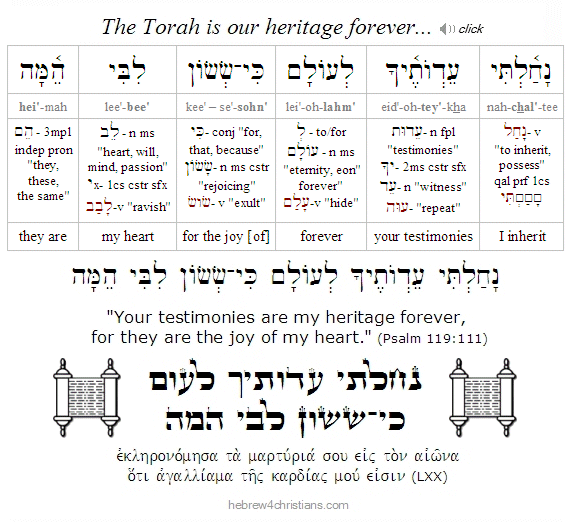 |
Rest and Creativity...

[ The following is related to our Torah reading for this week, Parashat Behar.... ]
05.17.22 (Iyyar 16, 5782) In our Torah portion for this week (i.e., parashat Behar), the LORD gave the people instructions about how they were to manage the promised land once they finally entered it. Instead of commanding the people to work hard to sustain themselves, however, God gave them laws of rest – of releasing their hold on the land (see Lev. 25:1-7). During the "Sabbatical years" (shemittah) the land was to lie fallow, and the people could eat only what was produced naturally, without any farming or organized harvesting. Letting go of the land required the people to trust that God was in control of nature's creative processes, and to acknowledge that the process of growth is mysterious and divine. As Yeshua said: "The Kingdom of God (מַלְכוּת הָאֱלהִים) is like someone who spreads seed on the ground. He goes to sleep and gets up, night and day, and the seed sprouts and grows, though he does not know how. By itself (αὐτομάτη, i.e., "automatically") the soil produces a crop, first the stalk, then the head, then the full grain in the head. And when the grain is ripe, he comes in with his sickle because the harvest has come" (Mark 4:26-29). In other words, the "ordinary" process of the growth of a seed is miraculous and is a gift from above. The Torah of the Sabbatical Year teaches us that creativity and fruitfulness requires that we let go and leave the outcome to God.
Hebrew Lesson
Psalm 116:7 reading (click):
Happy Site Update!
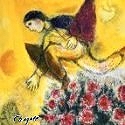
05.17.22 (Iyyar 16, 5782) My web service provider has apparently resolved the ftp connectivity issues I have been experiencing the last five days. Thank you for your prayers; I am very grateful to the Lord for his help, and I also thank Bluehost for their diligence.
Our Good Shepherd's Care...
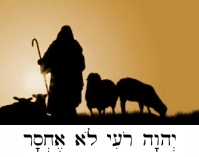
[ It's not where we've been, or even where we are, but where we are going that ultimately matters... The Lord, our Good Good Shepherd, is leading us home... ]
05.17.22 (Iyyar 16, 5782) Many people are anxious about dying, though it would profit them more to be anxious about living well instead. Indeed the best reason to think about death (memento mori) is to think about the value of life (memento vivere). Likewise many people are anxious over the prophesied "End of Days," though it would profit them more to be anxious about walking their present day before the Presence of the Lord....
In the Gospel we read these words of our LORD Yeshua the Messiah: "Therefore do not be anxious about tomorrow, for tomorrow will be anxious for itself. Sufficient for the day is its own trouble" (Matt. 6:34). Soren Kierkegaard comments: "If there is no next day for you, then all earthly care is annihilated. When the next day comes, it loses its enchantment and its disquieting insecurity. If there is no next day for you, then either you are dying or you are one who by dying to temporality has grasped the Eternal, either one who is actually dying or one who is really living... The one who rows a boat turns his back to the goal toward which he is working. So it is with the next day. When, with the help of the Eternal, a person lives absorbed in today, he turns his back to the next day. The more he is eternally absorbed in today, the more decisively he turns his back to the next day." Amen. May God help us live for Him today. Today is the day of salvation; today may we hear His voice.
The walk of faith is one of "holy suspense," trusting that God is on the other side of the next moment, "preparing a place for you" (John 14:3). In the present, then, we live in unknowing dependence, walking by faith, not by sight. For "hope that is seen is not hope; for who hopes for what he sees?" (Rom. 8:24). This is the existential posture of faith - walking in darkness while completely trusting in God's daily care. Our task at any given moment is always the same - to look to God and to accept His will. This is where time and eternity meet within us, where God's kingdom is revealed in our hearts. It makes no sense to worry about the future if the Good Shepherd tenderly watches over your way (Psalm 23:1-3).
Hebrew Lesson
Psalm 23:1-3a reading (click):
Unshakable Direction...

05.16.22 (Iyyar 15, 5782) Where it is written, "cast all your anxiety on him because he cares for you" (1 Pet. 5:7), the word translated "anxiety" (μέριμνα) comes from a Greek verb (μερίζω) that means to be fragmented or divided into parts and pieces. Being anxious is therefore the uneasy state of being unfocused and divided within oneself... King David understood the need for a unifying principle for his life: "One thing I ask of the Lord; that is what I will seek" (Psalm 27:4). He understood that walking in the truth required "uniting his heart," or "repairing the breach" within his inner affections so that he could experience reverence and awe before the Divine Presence (Psalm 86:11). King David knew that "right desire is the deepest form of prayer."
Hebrew Lesson
Psalm 86:11 reading (click):
Purity of the heart is to will one thing... When we are anxious, we become inwardly shaken and divided, and thereby lose our sense of identity and purpose in this world. God invites us to come boldly before Him to find help (Heb. 4:16). He is a "very present help in trouble" (Psalm 46:1). We cast our burdens upon the LORD so that He can sustain us (Psalm 55:22), and that we may have a "right spirit" (רוּחַ נָכוֹן) renewed within us (Psalm 51:12). We can bring our brokenness to God - including those distractions that tear us away from Him and that make us inwardly "two-souled" - to find healing for our hearts. When we do so, we will discover the Source of Power that makes us "unshakable and always able to abound in every good work" (1 Cor. 15:58).
Breathing God's Name...
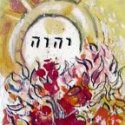
05.16.22 (Iyyar 15, 5782) In the Scriptures God's Name is revealed as YHVH (יְהוָה), which means "He is Present." The Name is formed from the words hayah ("He was"), hoveh ("He is"), and yihyeh ("He will be"): הָיָה הוֶה וְיִהְיֶה, indicating God's omnipresence. Note that all the letters of the Name are "vowel letters," which mean they evoke breath and life. This is the Name revealed to Moses thousands of years before the advent of other religions (Exod. 3:14), and indeed it is the Name associated with the nishmat chayim (נִשְׁמַת חַיִּים), the "breath of life," imparted to Adam in the orchard at Eden (Gen. 2:4). It is therefore the original Name of God "breathed out" to mankind. The Name Yeshua (יֵשׁוּעַ) means "YHVH saves." There is no other Savior beside Him, there is no other Name, there is no other LORD. "For I am the LORD your God, the Holy One of Israel, your Savior." Only Yeshua the Messiah can deliver you from the wrath to come (1 Thess. 1:10).
Many people live in regret over the past or in dread of the future. The Hebrew name of God, the Tetragrammaton (יהוה), means: "He is Present." We can only find God now, today, at this hour. Today if you hear His voice... Yeshua said, "The kingdom of heaven is within you" (מַלְכוּת הָאֱלהִים בְּקִרְבְּכֶם), that is, is to be found within the heart of faith (Luke 17:21).
The question is asked why the Torah was written without vowels, punctuation marks, and so on. The lack of vowels implies that we must bring breath (i.e., ruach, spirit) to our reading of the words; the lack of punctuation implies that we must be humble and rely on others to help us read with understanding. In other words, we must bring our heart to the reading and be open-minded to receive revelation.
 |
We need the power of the Holy Spirit to read correctly, and the Holy Spirit reveals the Living Word and glory of Yeshua: "It is the Spirit who gives life; the flesh is no help at all. The words that I have spoken to you are spirit and life" (John 6:63).
Hebrew Lesson
Zech. 4:6 reading (click):
Bones of Reality...

[ The following is related to our Torah reading for this week, parashat Behar... ]
05.16.22 (Iyyar 15, 5782) From our Torah portion for this week we read: "For you are strangers and sojourners (גרים ותושׁבים) with me" (Lev. 25:23). When we are strangers to this world, we reside with God: we are called residents of heaven. To be a stranger to this world is a great blessing, since it means we identify our home in the heart of God. By extension, reality is measured by proximity to the Eternal, and the material world - when regarded as an end in itself - is nothing but an illusion, since it cannot exist apart from the sustaining power of God (Heb. 1:3; Col. 1:16-17; Rev. 4:11). The sages note that in Hebrew there is no language of categorical ownership, since all things are conditioned by time. We say yesh li (יש לי) - "there is to me" (for this time) rather than "I have" or own. Ownership is related to the "bone" (עצם) of something, its inner structure and essence. God alone is koneh shamayim va'aretz (קנה שׁמים וארץ), the Owner of Reality (Gen. 14:19). "For from him and through him and to him are all things. To him be glory forever. Amen" (Rom. 11:36).
Hebrew Lesson
Psalm 32:12 reading (click):
The "Jubilee" Year (פרשת בהר)

05.16.22 (Iyyar 15, 5782) Our Torah portion this week (parashat Behar) begins with the commandment that an Israelite farmer must let his land remain fallow every seventh year. This is called the "Sabbatical year" (i.e., shemittah: שמיטה), and the inhabitants of the land were permitted to glean whatever the farmland produced naturally. In addition, the people were told to count seven cycles of seven years – a total of 49 years – and to mark the arrival of the fiftieth year with blasts of the shofar on the Day of Atonement (Yom Kippur). This fiftieth year would be a time of "Jubilee" (i.e., yovel: יוֹבֵל) – a year of "release" for the land and all its inhabitants. All slaves would be set free, debts would be canceled, and the stewardship of the land would revert to its original titleholders.
In this connection, you might wonder how to determine whether a given year is a Sabbatical year (i.e., shemittah). The procedure is simple: Take the current Jewish year and divide by seven; if there is no remainder, it is a shemittah year; otherwise it is not. For example year 5779 is not a Sabbatical Year, whereas year 5782 is (note that the Jewish year begins on Rosh Hashanah, on Tishri 1, in the fall). The Jubilee year (yovel) of course follows the seventh of the seven year cycles (i.e., 7 x 7 + 1), though there are some questions about which iteration (1st, 2nd, ... 7th) is currently active. According to some authorities, the last Jubilee year was on Yom Kippur 5776, that is, Tues. Oct. 11th, 2016, so the next would be 50 years later (i.e., in the year 5826).
Special Note:
Technical Issues with the Site...

05.16.22 (Iyyar 15, 5782) I am very sorry to report that because of technical problems with my web hosting provider (Blue Host) I am unable to update the site or use FTP to make site changes at this time. Please pray for this ministry, friends, for unless these issues are resolved I will need to change web hosting services, and that will be a major disruption to this ministry. And please pray for me (John), since it has been exhausting debugging what's happening. Meanwhile I will keep you posted on the Twitter and Facebook pages:
Thank you for your thoughts and prayers, friends.... Shalom. - John
Teshuvah and Healing...

[ If we ask according to your will, you will hear us (1 John 5:14). If your love is for all, then it is for some, and if for some, then for the least, and if for the least, then for the outcast... Therefore hear my cry, O Lord; let me know and receive your love and promise... Amen. ]
05.13.22 (Iyyar 12, 5782) Repentance is an ongoing disposition of life in Messiah, since it rightly relates us to God. First we encounter our incurable sickness - the inner contradiction and bondage of soul that both loves and hates sin - and then we seek God's saving power in Yeshua. As the Apostle Paul said: "Who can save me from the misery of myself? – God alone, through Jesus (Rom. 7:18-25). This is the first step, to know the "miserable creature that I am," that is, the slavery of your will to sin, and the second is to be willing to give this sickness of your soul to God's care in Yeshua. As he said, "Those who are well have no need of a doctor, but those who are sick. I have not come to call the 'righteous,' but sinners to repentance" (Luke 5:31-32). Yeshua regarded forgiveness of your sins as essential to finding inner healing, even more important than health, prosperity, or religious observance.
"Whoever finds his life will lose it, and whoever loses his life for my sake will find it" (Matt. 10:39). From the perspective of the natural life, we "descend in order to ascend," we must die to find life... From the perspective of the spiritual life, however, teshuvah means finding healing by returning to the truth of love and recovering your heart's desire in God. As Yeshua said, "Repent, for you have lost your first love..." (Rev. 2:4-5). Turn around: Look at what is missing within! He appeals to you like a lover standing outside in the cold, calling out your name, and knocking for you to open the door to let him inside (Rev. 3:19-20). Open the door of your heart! Return to him now! "O Lord, help me turn to receive your love..."
Hebrew Lesson
Isa. 43:11 reading (click):
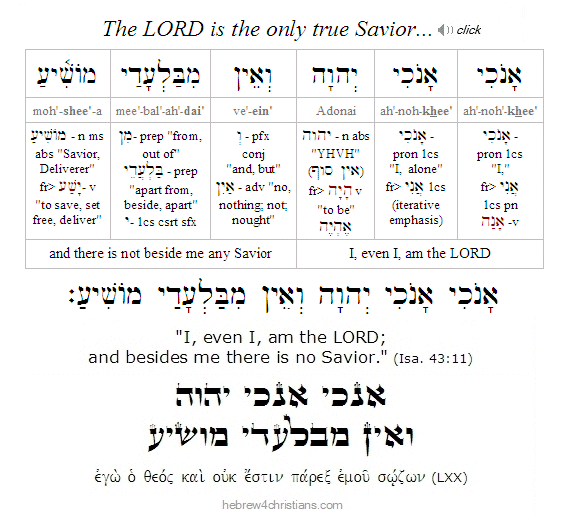 |
Dying for Life...
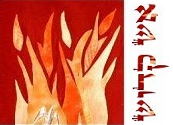
"You shall not profane My holy name, but I will be hallowed among the children of Israel. I am the LORD who sanctifies you" (Lev. 22:32).
05.13.22 (Iyyar 12, 5782) Perhaps you've heard someone say, "Oh, I am dying to do that!" and what is meant is that the person speaking is very eager or excited to do something. "Dying to do" something may be hyperbole, though it may also express of a deep truth of the heart, for in a very real sense it implies that some things are worth dying for...
We may sometimes ask the question, "What am I living for?" though the question may be turned around to ask, "What am I dying for?" for indeed we are given precious and few days during our sojourn here, and every day we live is a day we are deciding that for which we will die. What we are willing to die for reveals what we believe is the reason for our lives.
Recall Yeshua's famous "parable of the talents" (Matt. 25:14-30). The gist of the parable is that a master (representing God) decides to put his servants in charge of his goods while he went away on a journey, and upon his return he would assess their stewardship. To one servant the master gave five "talents," to another two, and to another one - each according to his ability. Each servant was expected to trade with what he had been given and to yield an increase. When the master later returned to take account of his servants, he found that two of the servants had multiplied what had been given them, but one had simply buried his talent for safe keeping. The master praised and rewarded the two servants who attended to what had been given, but he faulted the slothful servant for his cowardice and then consigned him to outer darkness where there was "weeping and gnashing of teeth."
Now this parable can be understood as an allegory of life. Each person born into this world has been given certain "talents," though there is no hint that the distribution of such is based on any sort of merit, but is a matter of "luck" or "chance." And indeed, from our point of view, we had no choice whether to be born into this world, and we had no control over who our parents were, when or where we were born, what our family was like, and more generally, what was happening in the world at the time, and so on. Therefore we are dealt a seemingly arbitrary "hand of cards" over which we have no control. Some of us seem to have been dealt better cards than others, but each of us plays the hand we were dealt...
Now the moral of the story centers on the importance of how we should live our lives regarding the master's business. Not a lot of commentary is needed about the faithful servants who pleased the master by actively engaging life and trading their talents. They are praised because even though they suffer the same arbitrariness of life, they took chances with their talents and kept faith that it was worth the risk, and that even if they failed, things would somehow work out in the end. As for the servant who took his talent and buried it in the ground, however, we are given warning not to let fear consume our hearts or to think that God asks too much of us. This servant is condemned for being afraid, for turning inward and being self-protective, for "playing it safe," going numb, and therefore for not really living at all. His tragic judgment is expressed this way: "From him who has not, even that which he has shall be taken away" (Matt. 25:29). Being slothful or indifferent to what is most important in life leads to diminishment, loss, and eventually to terrible regret over a life not truly lived at all. As it is written: "The righteous, even in death, are called 'living'; the wicked, even while alive, are called 'dead'" (Berachot 18a).
So each of us, willy-nilly, are given a finite amount of time on the earth, a certain "talent" given in our trust, and each of us will be judged by how we deal with whatever life brings our way... The parable serves as a warning for us to stay awake to the meaning of life, to choose a life that matters, and to believe in the significance of God's truth. Those who simply "bury" their talent in the earth entomb their own souls, since they burrow into this world and its deadening values and disregard the promise of the world to come. By denying spiritual reality, they become unreal themselves, for they become lifeless, fearful people - without heart, character, resolve, and most tragically of all, blind to the love of God.
"You shall not profane My holy name, but I will be hallowed among the children of Israel. I am the LORD who sanctifies you" (Lev. 22:32). We sanctify God's name by first of all honoring God's reality in our lives - "knowing God in all our ways" by "setting the LORD always before us" as King David said (Psalm 16:8), and practically speaking this means practicing acts of compassion, doing righteousness, and otherwise keeping God's commandments. As I've said before, sanctifying God's name also implies being willing to die for your faith, or, to put it another way, to live out your life "dying for God."
The sage Maimonides (Rambam) said that the First Temple was destroyed by Nebuchadnezzar because all Israel was afraid to die if they refused the king's mandate to bow down and worship the idol (Sefer Ha'Mitzvot). That's because followers of the LORD God of Israel are called "adat Adonai" (עֲדַת יְהוָה), the "witness (עֵד) of the LORD" (Num. 27:17), and that means our lives are to attest to the reality and presence of God. Bowing down to idols, "burying" our convictions, compromising our allegiance to the Lord -- negates the truth and witness of God, and diminishes us as well. We are responsible to turn away from evil, even at the expense of our earthly lives, which demonstrates that nothing is more important than God's truth. Living our lives "dying for God" is indeed our Highest Good. Amen.
Hebrew Lesson
Lev. 22:32a reading (click):
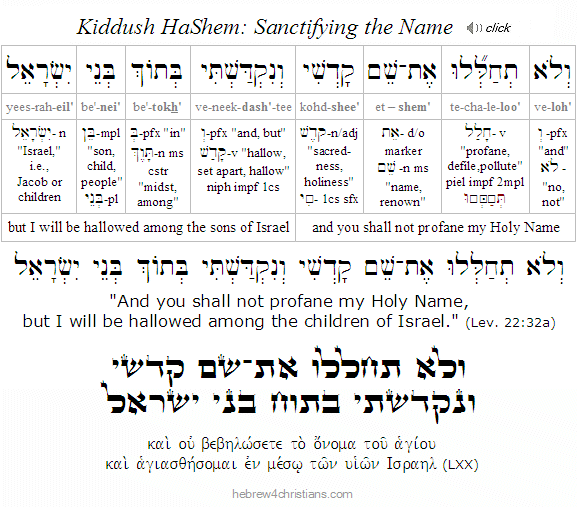 |
Conversation of Heart...
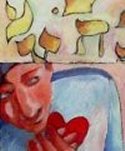
05.13.22 (Iyyar 12, 5782) The prelude to the central daily prayer of Judaism (i.e., the Amidah) begins with King David's great appeal: "O Lord, open my lips and my mouth will declare Your praise" (Psalm 51:15). David's declaration of thanks comes from trusting in God's love and forgiveness, just as we ask also trust God to pray within us, so to speak, and to utter groanings and words that come from his own heart to ours that return again unto his. We pray to the LORD as the LORD knows Himself to be - not as we imagine Him to be - since His love and passion is the beginning and end of all true prayer. This is the deeper "conversation of heart," the secret murmur spoken between lovers, the cooing and song of holy romance... The Ruach HaKodesh (רוּחַ הַקּדֶשׁ), the Holy Spirit, "helps us in our lack of strength. For we do not know what to pray for as we ought, but the Spirit himself intercedes for us with groanings too deep for words" (Rom. 8:26).
Hebrew Lesson
Psalm 51:15 reading (click):
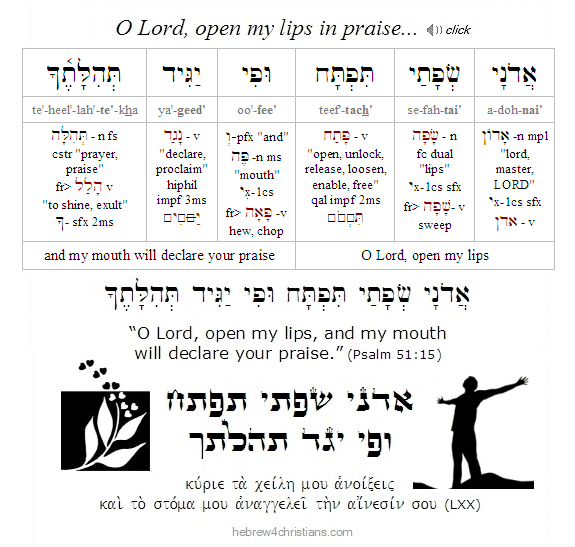 |
Finding Real Treasure...

05.12.22 (Iyyar 11, 5782) "The kingdom of heaven is like treasure hidden in a field, which a man found and covered up. Then in his joy he goes and sells all that he has and buys that field. Again, the kingdom of heaven is like a merchant in search of fine pearls, who, on finding one pearl of great value, went and sold all that he had and bought it" (Matt. 13:44-46). Here Yeshua teaches us that a relationship with God is the true source of joy and value in life, and that all other passions and desires are like "fools gold" when compared with its overwhelming worth... In this connection Soren Kierkegaard wrote: "If anyone thinks he is a Christian and yet is indifferent toward being that, then he really is not one at all. Indeed, what would we think of a person who gave assurances that he was in love and also that it was a matter of indifference to him?" (Works of Love). The Shema, the "first and greatest commandment," is to love God "bekhol levavkha" (בְּכָל־לְבָבְךָ) with all our hearts, and yet how is that love possible apart from the revelation of the passion of love itself? "We love because God first loves us" (1 John 4:19), and therefore teshuvah ("repentance") is a matter of being in love, celebrating God's heart for us, awakening to its wonder, and being thrilled and overjoyed at its reality. Isn't this the essence of the matter?
"Shimon ben Yonah, atah ohev oti?" – "Simon son of Jonah, do you love me?" (John 21:17). But how can we love the Lord apart from trusting his heart for us? "Come unto Me," Yeshua says, "live in Me and I will live in you" (John 15:5). O Lord God our Savior, deliver us from apathy and indifference! Soften our hearts and awaken us to our great desire and need for you! Hashivenu, Adonai: turn us, O LORD, and we shall be turned; heal us, and we shall be healed... Help us to come to you and to know the breadth and length and height and depth of your great love for us.
So for what do you hope, friend? What are your dreams? Your deepest desires? Where is your treasure? Yeshua warned those seeking their happiness in this world: "Do not store up for yourselves treasures upon earth... be rich toward God" (Matt. 6:19-20; Luke 12:21). When we treasure God, our focus is directed toward the eternal reality, and our interest in this world is minimal. We trust God to meet our daily needs and surrender our future to His care. The only worry we face concerns our own deficiencies in our obligations to the Savior. Our duty is to love God in the truth - bekhol levavkha - with all our heart, having no thought of ourselves. Indeed, self-denial means to quit thinking about yourself (from α-, "not," + ῥέω, "to speak") by accepting what God has done for you. "It is not my business to think about myself. My business is to think about God. It is for God to think about me" (Simone Weil).
Hebrew Lesson
Psalm 73:25 reading (click):
Hallowed be His Name...

[ The following is related to our Torah reading for this week, Parashat Emor.... ]
05.12.22 (Iyyar 11, 5782) These are days of difficulty, and there may come a severe test of our faith, when it would be better to give up our lives than to deny God's will, since God's truth is so valuable that to repudiate it would be worse than death itself... A verse from our Torah portion reads: "You shall not profane my holy name, that I may be made sacred among the people of Israel" (Lev. 22:32), which the early sages said provides the basis for "kiddush HaShem" (קִדּוּשׁ הַשֵּׁם), a phrase that means honoring God's truth even if that might require giving up your life to do so. (On the other hand, denying God's truth is "chillul HaShem" [חילול השם] a phrase that means disregarding God's authority over our lives.)
Sanctifying God's name means we regard our relationship to God to be an end in itself - our ultimate concern - and there is therefore nothing higher that may challenge our duty before heaven. "Seek first the kingdom of God and his righteousness" (Matt. 6:33). Indeed our mortal life in this fleeting world is a means to the end of reaching our eternal destiny, and esteeming the means above the end is therefore idolatry. In other words, we exist only because of God, and when we live according to God's truth, we take a firm stand against corrupt culture by denying its godless ideology, its benighted value system, its spurious relativism, its arrogant skepticism, and so on. Our faith may lead us into collision with the world and its spurious power structures: "We ought to obey God rather than men" (Acts 5:29). Taking a stand for transcendental truth will make you an outsider to the "crowd" and its endless idols and vanities. Indeed a person of genuine moral conviction may be labeled an "enemy of the state," may be persecuted as a "terrorist," and may even suffer martyrdom. Shadrach, Meshach, and Abednego rightfully defied the king's decree to bow down before the "golden image," and they confessed that they were willing to die rather than betray the truth of the LORD of Israel (see Dan 3). This is a prime example of kiddush HaShem, of honoring the truth of God even at the risk of losing our lives. For many Jews, reciting the Shema is a solemn declaration that we esteem the truth of God above all things, that God alone is our ultimate good, and that we must be willing to surrender our lives rather than to deny the greatness and glory of His Name.
Kiddush HaShem may be understand both literally and metaphorically. Literally understood, kiddush HaShem (i.e., martyrdom) is a possibility, one of the severest tests that may be given to the soul, and the temptation is to shrink back from the threat of death by denying the faith... Metaphorically understood, kiddush HaShem is a necessity, an essential act of the will that decides to "take up the cross" and follow Yeshua, and the temptation is to minimize the truth, to compromise the faith, and to slowly fade away... Yeshua asks, "What will it profit a person if he gains the whole world and forfeits his soul?" (Mark 8:36). Indeed, finding your life, value, and "place" here is to exile yourself from the promise of heaven. As Yeshua said, "Whoever finds his life will lose it, and whoever loses his life for my sake will find it" (Matt. 10:39). What is required, in other words, is categorically everything, with nothing left over...
We see an example of both chillul HaShem and kiddush HaShem in the life of the Apostle Peter. On the one hand, though he had boldly professed that he would be willing to die for Yeshua, he later denied that he even knew his Savior and friend (Luke 22:33-34)... After his teshuvah (i.e., repentance) however, Peter became wholehearted and fearless, and Christian tradition says he eventually died as a martyr under the tyranny of the Roman Emperor Nero... Likewise, in our effort to relate to people of different faith, we may be tempted to soften the demands of the gospel or to minimize the deity of Messiah. Sadly I've seen this happen a lot among Gentiles who get so enamored with the Jewish roots of the Christian faith that they begin to question, then outright deny the central Torah of our Messiah. We do not confuse the covenants of God, for this leads to double-mindedness and is regarded as spiritual adultery (see Rom. 7:1-4). This is chillul HaShem - the desecration of the Name above all Names - to turn away from the meaning and message of the cross of Messiah (Gal. 6:14; 1 Cor. 2:2). The price of being loyal to Messiah is mesirut nefesh (מְסִירוּת נֶפֶשׁ) -- surrendering your life by "taking up the cross." The cross is a scandal to religion and all other attempts to deny the truth about the human condition (Gal. 5:11).
"The first thing the life-giving Spirit says is that you must enter into death... You must first die to every merely earthly hope, to every merely human confidence; you must die to your selfishness..." (Kierkegaard: For Self Examination)
Yeshua said, "Do not be anxious about tomorrow, for tomorrow will be anxious for itself. Sufficient for the day is its own trouble" (Matt. 6:34). Kierkegaard comments: "If there is no next day for you, then all earthly care is annihilated. When the next day comes, it loses its enchantment and its disquieting insecurity. If there is no next day for you, then either you are dying or you are one who by dying to temporality has grasped the Eternal, either one who is actually dying or one who is really living... The one who rows a boat turns his back to the goal toward which he is working. So it is with the next day. When, with the help of the Eternal, a person lives absorbed in today, he turns his back to the next day. The more he is eternally absorbed in today, the more decisively he turns his back to the next day." Amen. May God help us live for Him today, the day of salvation; today may we hear His voice.
Hebrew Lesson
Psalm 63:4 reading (click):
Out of the Depths...

05.11.22 (Iyyar 10, 5782) Some of us want "mountain top" experiences of God, but more often than not we learn "down in the valley," where the daily cares of life encroach upon our ideals and visions. Yet it is precisely there, in the "desert of the everyday," in the "testing of the tedious," and in the "hazards of hopelessness," that we are enabled to elevate our consciousness to realize that God is "ezra ve'tzarot nimtza me'od" (עֶזְרָה בְצָרוֹת נִמְצָא מְאד) - a "very present help in our troubles" (Psalm 46:1). Amen, God is aware of our frustration, our lowliness, our fear, our suffering...
When the LORD delivered his people by the miracle of splitting the sea (קריעת ים סוף), he closed off any way of escape apart from his direct intervention. The Egyptian army was behind them, the mountains hemmed them in, and the vast horizon of the sea loomed before their way. The only way of deliverance was from above, in the midst of our struggle, by God's own hand. Looking upward and trusting in God's healing and deliverance is the first step... The LORD is the Rock and all his ways are perfect (Deut. 32:4), and this must be affirmed especially if we cannot fathom the testing of our present circumstances... Faith affirms the unseen good that is the promise of God.
Hebrew Lesson
Psalm 46:1-2 reading (click):
Sorrowful yet ever Rejoicing...
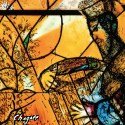
05.10.22 (Iyyar 9, 5782) The word for "grace" in the original Greek New Testament (i.e., χάρις) is related to the word for "joy" (i.e., χαρά) which indicates that divine grace manifests or shows itself in rejoicing of the heart (Phil. 4:4), and conversely, that joylessness, especially when habitual, may signify its absence.... Indeed some have gone so far as to say that sin amounts to the denial of joy, though that assuredly overstates the matter. After all, sorrow is a part of the walk of faith, as the Scriptures clearly attest (2 Cor. 6:10; Psalm 69:29; Prov. 14:13; 1 Sam. 1:15), and indeed, our beloved Lord Yeshua himself was "a man of sorrows, acquainted with grief" (Isa. 53:3-4). The simple presence of sorrow, then, does not necessarily mark the absence of grace, though the presence of grace will, even in the depths of sorrow, eventually bespeak the comforts of hope and of life and of love. Amen.
Hebrew Lesson
Psalm 69:29-30 reading (click):
Faith's Good Eye...
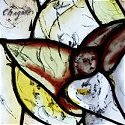
05.10.22 (Iyyar 9, 5782) It is not your job to worry about all the problems in the world, nor is it your role to "fix" the troubles that abound everywhere. The upward call of God in Messiah is grounded in the present moment, the "eternal now," whence you are invited to "walk before God and be made whole" (הִתְהַלֵּךְ לְפָנַי וֶהְיֵה תָמִים, Gen. 17:1). This implies, among other things, that you must let evil flow past you and ascend by faith above the world and its profane ways. After all, it is God's business to turn darkness to light, to make crooked things straight, to redeem and heal the world and so on...
The eye of emunah (faith) discerns gam zu l'tovah (גַּם זוּ לְטוֹבָה), "this too is for good," which is an idea taken directly from the New Testament: "all things work together for good" (i.e., πάντα συνεργεῖ εἰς ἀγαθόν, Rom. 8:28). Notice that the affirmation is not gam zu tovah - "this is the good," but rather gam zu l'tovah - "this, too, is for good." Emunah "sees what is invisible" (2 Cor. 4:18) and understands that the "present form of this world is passing away" for purposes that are good (1 Cor. 7:31). It affirms that underlying the surface appearance of life (chayei sha'ah) is a deeper reality (chayei olam) that is ultimately real, abiding, and ultimately designed for God's redemptive love to be fully expressed. In this world we must "see through" a mirror (i.e., indirectly) to begin to see the dawn of our eternal home; but one day we will behold God panim el panim (פָּנִים אֶל־פָּנִים), "face to face" (1 Cor. 13:12).
The best way to engage in "tikkun olam" is to spread the hope and truth of the gospel to this forlorn world.... We do not look for utopia on earth apart from the Divine Presence.
Hebrew Lesson:
Prov. 22:9 Hebrew reading:
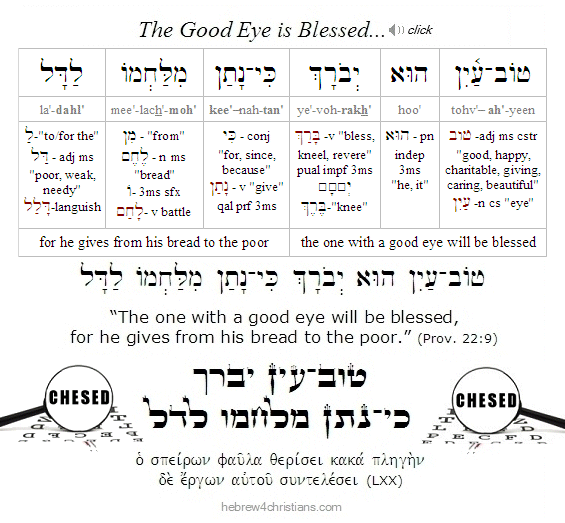 |
Truth and Passion...

05.10.22 (Iyyar 9, 5782) During the prophesied "end of days" (אַחֲרִית הַיָּמִים) many people will have an outer "form" (μόρφωσιν) of godliness but will deny its inner power, since their hearts will be turned away from the truth: "And because lawlessness (i.e., ἀνομία, lit. a=without; nomos=Torah) will be increased, the love of many will grow cold" (Matt. 24:12). In this connection we note that the Hebrew word for "falsehood" (or "lie") is sheker (שֶׁקֶר), which can also be read as shekar (שֶׁקַר), meaning "that which" (-שׁ) makes you cold (קַר). The truth of God can't be known apart from His passion, inner fire, desire. Indeed, the Hebrew word for "sin" (חֵטְא) means "missing the mark," though that essentially means missing the revelation of God's glory because lesser fears consume the heart and cool the passion for the truth... Let us ask the LORD to better know His heart by kindling his fire within our hearts!
"Be still and know that I am..." Prayer is a type of listening (shema), a turning back to heed the message of God's love and hope in Messiah. Indeed, the word "teshuvah" (תְּשׁוּבָה), often translated as "repentance," also means an answer or response to a question. God's love is the question, and the heart's response is the answer. Some of us may find it difficult to trust, to open our heart to receive grace and kindness. For those of us wounded by abandonment, it can be a great struggle to hear the voice of God calling you "beloved," "worthy," "valued," and "accepted." When you find faith to receive God's word of love, however, your heart comes alive and you begin to heal...
Hebrew Lesson
Psalm 46:10 reading (click):
Welcomed in His Presence...

[ "Just as in earthly life lovers long for the moment when they are able to breathe forth their love for each other, to let their souls blend in a soft whisper, so the mystic longs for the moment when in prayer he can, as it were, creep into God." - Soren Kierkegaard ]
05.10.22 (Iyyar 9, 5782) "Not being welcome is your greatest fear. It connects with your birth fear, your fear of not being welcome in this life, and your death fear, your fear of not being welcome in the life after this. It is the deep-seated fear that it would have been better if you had not lived" (Nouwen). The message of the gospel is - above all else - an invitation, a cry of welcome, that sings out to you in your loneliness and shame. The core of the battle is here - whether you will decide to trust in God's love or shrink back into the places of darkness, isolation, and pain. Yeshua says, "Come to me; I love you, I accept you; I receive you; please, be welcome with me; I will take your hand, I will be with you..."
I've wrestled with this sort of painful fear for as long as I can remember... a sense of not being welcomed, of not belonging, being "outside" looking in... For me, heaven is a sense of home, of acceptance, a place where you are "inside out" and yet completely loved. In short, heaven is nothing less being loved and accepted by the Lord, and hearing him say, "I love you; you belong to me; I call you my friend..."
Lord I need you; I need you more than my next breath or heartbeat, for your lovingkindness is better than life itself... I come before you; this is my request: that I might know your love, and that you might know my heartache for you. You said "seek my face, and my heart said to you, 'Your face, Lord, do I seek." Do not leave me bereft of comfort, O God; do not hide your face from me. For "whom have I in heaven but you? And there is nothing on earth that I desire besides you. My flesh and my heart may fail, but God is the strength of my heart and my portion forever..."
There is much talk about "receiving Jesus" into our hearts, but it is even more important to understand that He receives us into His heart... Shalom to you, dear friends. May God fill you with a sense of His welcome, his acceptance, and his delight in you. Amen.
Hebrew Lesson
Psalm 63:3 reading (click):
Perfectionism and Holiness...

[ The following is related to our Torah reading for this week, Parashat Emor.... ]
05.09.22 (Iyyar 8, 5782) Our Torah portion this week (i.e., parashat Emor) begins by explaining special requirements for Israel's priests, and then goes on to list the yearly cycle of Sabbaths and the seasonal festivals. First of all the priests (kohanim) were required to be "perfect," without any physical defect or uncleanness that might render them unfit for service. Everything about the priests – their clothing, hair style, skin condition, and especially their adherence to the meticulous steps required to offer the daily sacrifice (לֶחֶם אֱלהָיו) - was to be "defect free," and any deviation might incur the penalty of death itself (see Lev. 10:2; Num. 4:15, 2 Sam. 6:6-7). On the other hand, what sometimes disqualified a priest were things simply beyond his control, for instance, a variety of physical disabilities such as blindness, having a limp or disfigured limb, and so on (see Lev. 21:16-21).
Thinking about these requirements raises some provocative questions concerning the meaning of "perfection" in our lives, and particularly how we, as a deeply flawed people, can possibly be "perfect." The question is radical and affects how we are to understand practical holiness or the idea of "sanctification": Are we to seek to be perfect people, and if so, how do we understand what this means? Is our spirituality bound up with perfectionism, with flawless performance, and with always being and doing what is right?
In the Sermon on the Mount Yeshua warned that our righteousness should exceed that of the religious leaders of his day (Matt. 5:20), and he went on to say: "be perfect, as your heavenly Father is perfect" (Matt. 5:48). Here we note that the Greek word translated "perfect" (τέλειος) may mean "mature" or "fully developed" more than morally flawless, though regarding moral and spiritual practice this distinction is not clear cut, especially if by "mature" we mean godly in character, as the context of Yeshua's statement clearly implies (see Matt. 5:1-48). The Hebrew word translated as "perfect" (תָּמִים) can also mean "complete," but it can connote being "wholehearted," "sound," or even healed (שָׁלֵם). So the question arises, does the word "perfect" mean "flawless" or "healed" -- or perhaps both?
Of course we affirm that God alone is truly perfect (Deut. 32:4; Psalm 18:30), completely good (Matt. 19:17), flawlessly righteous (Psalm 145:17), entirely holy (Isa. 6:3; Rev. 15:4), and peerlessly unique (Exod. 15:11; Jer. 10:6-7), but how can we relate to God's overmastering perfection in the midst of our daily flaws and chronic imperfections? How dare we approach "to offer the bread of God" (Lev. 21:17)?
Followers of the LORD are called to be a nation of priests, a "select people," set apart to serve God in holiness (Exod. 19:5-6; 1 Pet. 2:9; Lev. 11:45), but it is clear we are blemished, imperfect, blind, halt, needy, and unclean... This is common to the human condition: all of us, Jew or non-Jew alike, are broken, flawed, and in the midst of the inevitable flow of life that leads to death and decay (Rom. 3:23). We are sick with sin and unable to heal ourselves, and therefore we need a radical transformation - "deliverance from ourselves" – that must come through divine intervention and the miracle of spiritual rebirth (John 3:3,7).
Nevertheless in this world the paradox still remains: we are finite yet long for the undying, the infinite; we are in flux yet anchored in hope; we are a "new creation" yet still saddled with the old nature; we are made holy yet we live in the midst of the profane; we are purified yet still need cleansing; we are healed yet are still wounded; we are redeemed of God yet still need to turn to God in teshuvah; we die daily yet have eternal life. Our hearts are to be a divine sanctuary, yet we are powerless to make God appear in our midst...
Perfection haunts us; we often confuse the ideal and the real. Our romantic visions fail us; all of us are strangers, wanderers, in lonely exile. And the question then becomes – how do we embrace the "already-not-yet," the process, the fleeting days with their poignant moments – within the context of real hope, a vision that heals and brings us real comfort? How do we make peace with our imperfections, our present darkness, and our hunger for deliverance? How do we envision healing in the midst of our brokenness?
Ironically those defects that disqualify us as priests can be transformed (by grace) into compassion for others, and this can enable us to reach out to God in the midst of our flawed existence... After all, the deepest role of the priest is to draw others near to God, but this requires empathy and awareness of the needs of others. Therefore God clothed himself with our frailty, our infirmities, and the brokenness of our sin in order to redeem us in Yeshua. As it is written, we have a high priest who is able to sympathize (συμπαθέω) with our weaknesses (Heb. 4:15). The priest of the New Covenant is a mediator through through poverty of spirit and mourning (Matt. 5:3-8). Just as Joshua the high priest was graciously given robes of righteousness in exchange for his filthy garments (Zech 3), so we are given an imputed righteousness that comes through trusting in "the One who justifies the ungodly" (Rom. 4:5). "For our sake God made Him (i.e., Yeshua) to be sin who knew no sin, so that in him we might become the righteousness of God" (2 Cor. 5:21). This is a righteousness that is "apart from the law, though the law and prophets testified of it; namely, the righteousness of God given through the faithfulness of Yeshua the Messiah" (Rom. 3:21-22). Our present groaning for the complete deliverance is a gift given by the Spirit of God crying out within our hearts (Rom. 8:22-23).
C.S. Lewis once remarked, "God doesn't love you because you are good, but He will make you good because He loves you." This goodness is the miraculous inner working of an imparted godliness, the divine gift of a new heart and spirit (Ezek. 36:26). Awaken to your eternal perfection in the world to come: "You shall be perfect even as your heavenly Father is perfect" can be read as a prophecy. Do not give up, friends; do not succumb to despair. We must learn to endure ourselves and believe in the healing to come. "Do not lose heart. Though our outer self is wasting away, our inner self is being renewed day by day. For this light momentary affliction is preparing for us an eternal weight of glory beyond all comparison, as we look not to the things that are seen but to the things that are unseen. For the things that are seen are transient, but the things that are unseen are eternal" (2 Cor. 4:16-18). And may God help us walk in perfect faith in His unfailing love (Phil. 3:14).
Hebrew Lesson
Ezekiel 36:26a reading (click):
Stealing the Mind (גְּנֵבַת דַעַת)
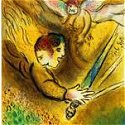
05.09.22 (Iyyar 8, 5782) It is written in our Torah: "You shall not put a stumbling block before the blind (לִפְנֵי עִוֵּר לא תִתֵּן מִכְשׁל); you shall fear God; I am the LORD" (Lev. 19:14). Just as no one can deny the validity of logic by means of argument, so no one can intelligibly deny that truth is necessary... Indeed, every person intuitively believes that truth exists, since otherwise he or she would not ask any questions or make any statements. In other words, we instinctively presuppose the value and reality of truth whenever we communicate, and we understand that there is an implied social contract to be honest and not to deceive others. Deceitful language puts a "stumbling block before the blind" when it is used to withhold important information from others. Politicians who make mutually exclusive promises to different groups of people are dishonest and cloak their true intentions. The same may be said about people who sell products or services using misleading claims.
Those who willfully misdirect others violate the ninth commandment not to bear false witness (Exod. 20:16; 23:1). Such deception is called "genevat da'at" (גְּנֵבַת דַעַת), or "stealing of the mind," since it defrauds another person's thinking. Misleading people is a violation, then, of both the commandment not to steal and the commandment not to bear false witness. The Torah warns us never to exploit other people's vulnerability or to take advantage of their good will and trust. Those who use false words and deceitful language to blind the eyes of the gullible will assuredly face judgment, as it is written: "No creature is hidden from God, but everything is naked and exposed to the eyes of him to whom we must render an account" (Heb. 4:13). Lying to others is desecration, profanity, and ultimately a form of violence. Those who cause others to stumble will tragically discover that truth will be a stumbling block to them. May God help us to fear Him and to be yashar – upright in our communication with others. Therefore may each of us proclaim: "I have chosen the way of truth; I have set your judgments before me" (Psalm 119:30; also 2 Tim. 2:19).
דֶּרֶךְ־אֱמוּנָה בָחָרְתִּי
מִשְׁפָּטֶיךָ שִׁוִּיתִי
de'·rekh · e·moo·nah · vah·char'·tee
meesh·pah·te'·kha · sheev·vee'·tee

"I have chosen the way of truth;
I have set your judgments before me." (Psalm 119:30)

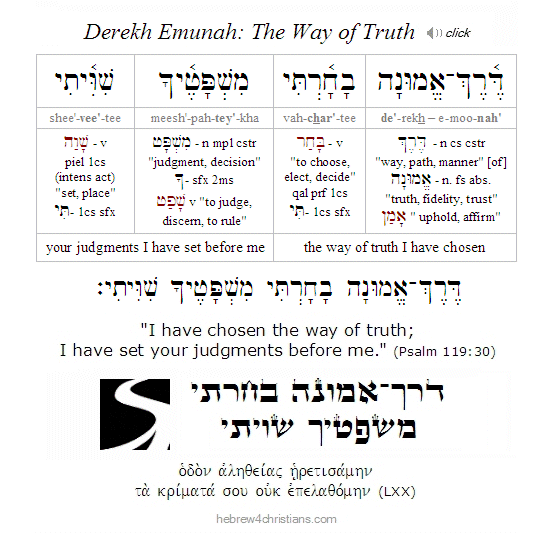
Theodor Herzl Day - May 11th
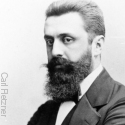
05.08.22 (Iyyar 7, 5782) This coming Wednesday, May 11th, is "Herzl Day" in Israel (i.e., Yom Herztl: יום הרצל), a national holiday established by the Knesset to commemorate the achievements and Zionist vision of Theodor Herzl (1860-1904), a man considered by many to be the father of the modern State of Israel. During Herzl Day a memorial service held on Mount Herzl in Jerusalem, the site of Israel's national cemetery, where Herzl's tomb is located. It should be noted that though Herzl was a remarkable man, he was greatly helped by Bible-believing Christians who foresaw the vision of Zion and the reestablishment of the State of Israel and who therefore assisted him by providing support for his political vision.
For more information about Herzl Day, click here.
Hebrew Lesson
Psalm 122:6 reading (click):
The World is Insane...

05.09.22 (Iyyar 8, 5782) Do you feel it? Do you sense the time is drawing near? That something is going to break soon? The question for us is how we should ready ourselves. Do we seek to hunker down and hide, or should we exult in the coming hour, emboldened to share the truth with a world rushing headlong to destruction?
After suffering from the lies and disinformation repeatedly disseminated as "breaking news" in this depraved and godless world, I feel like I want to strap on a signboard that screams: "THE END IS NEAR!" and walk about the streets proclaiming, "Repent, for the hour is at hand!" People joke about such things, but there really is an hour that approaches; there really is a coming day when everything will be tested by fire. All that is hidden will be manifest and forced to confess the truth. Let it come quickly, and in our day: בּוֹא יהוה יְשׁוּעתֵנוּ
Martin Buber once said, "What is accomplished through lies can assume the mask of truth; what is accomplished through violence can go in the guise of justice, and for a while the hoax may be successful. But soon people realize that lies are lies at bottom, that violence is violence - and that both lies and violence will suffer the destiny history has in store for all that is false." That time can't come soon enough, Martin....
People will be in denial on the very battlefield of Armageddon, wondering what the heck is going on, etc. They'll tune in to the "news" of the world to determine why they are destroying one another only to be reassured that everything will be fine.... "A fire broke out backstage in a theater. The clown came out to warn the public; they thought it was a joke and applauded. He repeated it; the acclaim was even greater. I think that's just how the world will come to an end: to general applause from wits who believe it's a joke" (Kierkegaard).
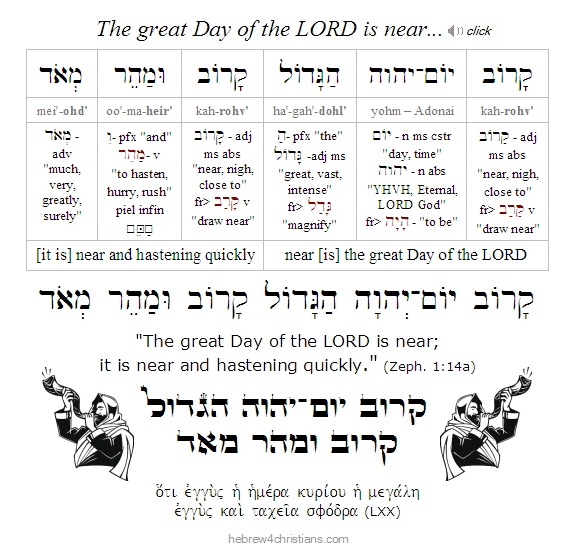 |
 |
Parashat Emor - אמור

05.08.22 (Iyyar 7, 5782) Our Torah portion this week (parashat Emor) lists the eight main holidays explained in the Jewish Scriptures. In the Torah, these "holidays" are called "appointed times" (i.e., mo'edim: מוֹעֲדִים), a word which comes from the Hebrew root meaning "witness" (עֵד). Other words from this root include edah (עֵדָה), a "congregation," edut (עֵדוּת), a "testimony," and so on. The related verb ya'ad (יָעַד) means "to meet," "to assemble," or even "to betroth." The significance of the holy days, then, is for the covenant people of the LORD to bear witness to God's love and faithfulness. As it is written:
כל־ארחות יהוה חסד ואמת
לנצרי בריתו ועדתיו
kohl - ohr·khot · Adonai · che'·sed · ve·e·met
le·noh·tze·rei · ve·ree·toh · ve·ei·doh·tahv

"All the paths of the LORD are compassion and truth
to those keeping his covenant and his testimonies."
(Psalm 25:10)

Hebrew Study Card
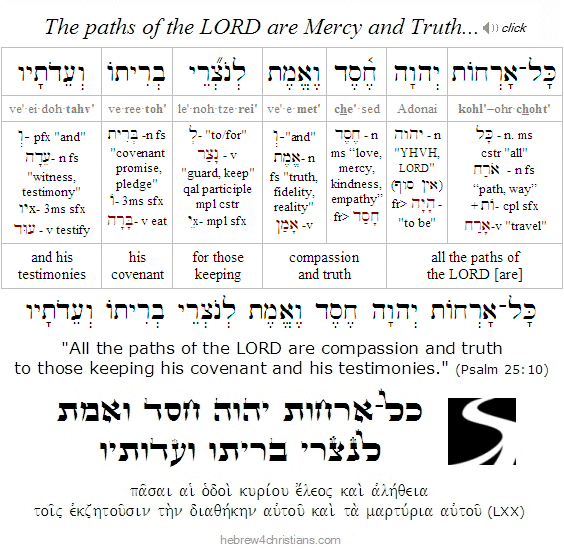 |
Metaphorically the "paths of the Lord" (i.e., orechot Adonai: ארחות יהוה) are likened to ruts or grooves created by the wheels of a caravan (i.e., orechah: ארְחָה) passing repeatedly over the same ground. These paths signify the Divine Presence journeying with God's children in this world. In temporal terms, we are able to discern the path by means of the divine calendar. God's love and faithfulness attend to His covenant (brit) and to the commemorations of the yearly "appointed times" that testify of God's faithful love. Keeping God's testimonies, then, means that we will be careful to observe the holidays in order to witness to God's truth...
"Speak to the people of Israel and say to them, 'These are the appointed times of the LORD (מוֹעֲדֵי יְהוָה) that you shall proclaim as holy convocations (מִקְרָאֵי קדֶשׁ); they are My appointed times'" (Lev. 23:2). Note that these hallowed times - the very first of which is the weekly Sabbath - are "of the LORD," and that means they should be regarded as appointments given by God Himself to help draw us closer to Him, to reveal His prophetic truth, and to remind ourselves of His great plan for our lives. God did not give us the Torah in vain, friends, neither does He speak out of two sides of his his mouth... Yeshua was the Voice of the LORD speaking the words of Torah to Israel at Sinai, and therefore every "jot and tittle" (קוֹצוֹ שֶׁל יוֹד) is indeed relevant to our lives as his followers (Matt. 5:18-19).
Faith without Fear...

05.06.22 (Iyyar 5, 5782) The Spirit of the LORD speaks to the heart of faith: "Fear not, for I have redeemed you; I have called you by name, and you are mine" (Isa. 43:1). God has personally redeemed you, friend; he calls you by name, and you belong to Him. The Lord loves you with an everlasting love (אהבת עולם) and draws you close (Jer. 31:3). He will never leave nor forsake you, even if you might face waters that seem to overwhelm or fires that seem to devour (Isa. 43:2). The will of your Heavenly Father will never lead you to a place where his love will not there sustain you. Faith finds its place in God's heart.
Worry is a place of exile and pain. We are commanded, al tira, "fear not," because fear was behind the original sin in the garden, just as mistrust lies behind our own hiding and self-imposed exile from God... Since sin expresses a heart of fear (Rom. 14:23), the way of healing is to courageously turn back to God, despite our uncertainties. We can trust God's love for us because of the cross of Yeshua our Lord. If we haven't received God's love and acceptance, we are still enslaved to fear and abide in a state of exile. The love of God casts out our fear because it casts out all our sins (1 John 4:18).
It is written, "God has not given us the spirit of fear, but of power and of love, and of a "sound mind" (2 Tim. 1:7). Memorize that verse. The Greek word for "sound mind" means "safe" because of the power and grace of the Living God... If you sense fearful oppression within your heart, turn to the Lord and offer him focused praise. Lift up your soul to him and thank him for your trouble. This has the double benefit of confessing your trust in God's care, as well as vexing the enemy of your soul. Come boldly to the throne of grace to find your help (Heb. 4:16); cast all your anxiety on him, for he cares for you (1 Pet. 5:7).
The Name of the LORD (יהוה) means "Presence" and "Love" (Exod. 3:14; 34:6-7). Yeshua said, "I go to prepare a place for you," which means that his presence and love are waiting for you in whatever lies ahead (John 14:1-3; Rom. 8:35-39). To worry is to "practice the absence" of God instead of to practice His Presence... Trust the word of the Holy Spirit: "For I know the plans I have for you, declares the LORD, plans for healing peace and not for evil, to give you a future and a hope (Jer. 29:11).
Take comfort that your Heavenly Father sees when the sparrow falls; he arrays the flower in its hidden valley; and he calls each star by name. More importantly, the Lord sees you and understands your struggle with fear... Come to him with your needy heart and trust him to deliver you from the burdens of your soul (Matt. 11:28). Shabbat Shalom...
Hebrew Lesson
Isa. 43:1b reading (click):
The Stupor of Evil...

05.06.22 (Iyyar 5, 5782) Dietrich Bonhoeffer (1906-1945), a German pastor who was surrounded by the atrocious evil of Nazi Germany and who was murdered at their hands, regarded stupidity as more dangerous than outright evil, since stupidity is a type of irrationality, a chosen ignorance of what is real and true. Against such willed ignorance we are often defenseless, since any reasoning that appeals to transcendental moral truth finds no traction, carries no weight, and has no effect. The devil, then, seeks first of all to stupefy people, that is, to drug them or flatter and persuade them to think that there is no need to engage in serious thinking or to humbly question their assumptions... As William James observed: "A great many people think they are thinking when they are merely rearranging their prejudices." The antidote to unthinkingly accepting the biases and inculcated prejudices of the world is to humble ourselves by learning to sincerely respect the Reality of God: "The fear of the LORD is the beginning of knowledge; but fools despise wisdom and correction."
Soren Kierkegaard had earlier defined stupidity to be a category of the "group-think" of the crowd. He wrote: "Wherever the crowd is, there is untruth, so that, for a moment to carry the matter out to its farthest conclusion, even if every individual possessed the truth in private, yet if they came together into a crowd (so that "the crowd" received any decisive, voting, noisy, audible importance), untruth would at once be let in... Indeed, the crowd is untruth. There is therefore no one who has more contempt for what it is to be a human being than those who make it their profession to lead the crowd. ... For to win a crowd is not so great a trick; one only needs some talent, a certain dose of untruth and a little acquaintance with the human passions" (Upbuilding Discourses).
Those who deny that moral truth exists are themselves making a truth claim, namely the claim that there is no such thing as objective truth (or that knowledge of the world is not possible). This self-inflicted incoherence is a sign of irrationalism, of course, the abandonment of reason, which perhaps is the ulterior motive for such manner of thinking, after all. The person who denies moral truth does so to escape the demands of truth – to flee from personal responsibility before moral and spiritual Reality. It is a form of "wish-fulfillment" to deny that people are not responsible for what they believe and how they live their lives. The ancient pagan world at least esteemed honor and believed in the pursuit of virtue and truth, but today's post-Christian world is nihilistic, anarchist, and therefore marks a return to barbarism.
The ground of all right thinking about reality is "wonder," or the sense that life itself is something mysteriously beautiful, amazing, and therefore inherently sacred. This is sometimes called yirat Adonai (יראת יהוה), "the fear of the LORD" that leads to wisdom. Right thinking therefore begins with consciousness of the good (i.e., hakarat ha'tov: הכרת הטוב), that is, with the awareness that life itself a gift, a mystery, and a hallowed question... We seek our origin, our essence, and our purpose -- and in our seeking we seek the LORD. We long for deliverance from what keeps us from healing, from love, from real hope. And as we seek, the wonder of the LORD God never ends. As Yeshua said, "Ask, and it will be given to you; seek, and you will find; knock, and it will be opened to you" (Matt. 7:7).
Hebrew Lesson
Prov. 1:7 reading (click):
 |
Appointed Times...

[ "The liturgy of the Jew is the calendar," Abraham Heschel... ]
05.06.22 (Iyyar 5, 5782) Our Torah portion this week (i.e., Kedoshim) reveals that the "appointed times" or holidays (i.e., mo'edim: מוֹעֲדִים) were given by God to help us turn away from the omnipresent urge within the human heart to embrace vanity: "Every one of you shall revere his mother and his father and guard (שָׁמַר) my Sabbaths (שַׁבְּתתַי)... Do not turn to worthlessness (i.e., אֱלִיל) or make for yourselves any molten gods" (Lev. 19:3-4). In other words, the Biblical holidays - including the weekly Shabbat, the monthly Rosh Chodesh, and so on - were intended to help us to sanctify ("set apart," "make holy") the times and seasons in order to remind us of God's Presence (Psalm 104:19). Therefore they are called mikra'ei kodesh (מִקְרָאֵי קדֶשׁ), "times in which holiness is proclaimed" (Lev. 23:2).
The Torah's declaration that these days are holy implies that they are set apart for special activities, such as celebrating God as our Creator (Shabbat), our Redeemer (Passover), our Resurrection (Bikkurim/Firstfruits), our Lawgiver (Shavuot/Pentecost), our King (Teruah/Rosh Hashanah), our High Priest (Yom Kippur/Day of Atonement), our Shelter (Sukkot/Tabernacles), and so on. In this connection it should be noted that it is a mistake to assume that the divine calendar was somehow abrogated after the cross of Yeshua, since all of the Jewish holidays center on Him, and indeed the advent of the Holy Spirit (רוח הקדשׁ) occurred after his resurrection following the 49-day countdown to the jubilee of Shavuot (see Acts 1:8; 2:1-4).
Hebrew Lesson
Lev. 23:2b reading (click):
One aspect of holiness is a sense of "separateness" from the prevailing godless culture. Leviticus Rabbah states that God told Moses, "Tell the Israelites that just as I am separate, so you must be separate; just as I am holy, so you must be holy." Likewise the Apostle Paul taught that we to be "conformed" (σύμμορφος) to the Messiah (Rom. 8:29), but not "conformed" (συσχηματίζω) to the pattern of this fallen world (Rom. 12:2). The former word means to resemble or be made similar in form (μορφή), whereas the latter means to accept the world's scheme (σχῆμα) of understanding things, to passively go along with the world's lies, wishful thinking, fearmongering, propaganda, etc. Of course we need God's help to escape the "programming" of our age, and therefore the Holy Spirit helps us to become transfigured – "changed from the inside out" - by the renewal of our minds, enabling us to see things in light of the reality of our identity in the Messiah.
On the other hand, the duty to walk in personal holiness is not to "opt out" of life in this world by living as a monk or by withdrawing from others as an ascetic, much less having a "holier-than-thou" attitude that prides itself on religious scrupulosity... Yeshua routinely condemned those Pharisees who assumed that the meticulous "laws of purity" intended for the priests during their sacrificial service at the Temple applied to them in their daily life (e.g., some of these Pharisees formed "societies" whose members pledged to eat food only while in a state of ritual purity, to ritually wash their hands, and so on). Yeshua called this the "leaven of the Pharisees" which he said was hypocrisy (Luke 12:1). On the contrary, the Scriptures reveal that holiness is to be lived in the everyday experiences of life, in the context of community. Without humility and love, the practice of holiness is meaningless...
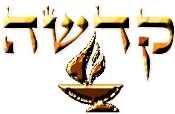 |
Ultimately our lives "suspended" between two worlds - this phenomenal world with its illusions and the real world of spiritual substance and meaning... We exist in an "already-not-yet" state of expectation and yearning where we must consciously mediate the truth of heaven by bringing it "down to earth." This is a truth war, and by truth I do not mean intellectual knowledge as much as the living truth that marks the lifestyle of a follower of Messiah. We consciously remember Torah truth; we choose to always "set the LORD before us," and we take "every thought captive to the obedience of Messiah..." May God help each of us heed the call to walk in holiness by the power of His love and grace. Amen.
Being made whole...

05.06.22 (Iyyar 4, 5782) The Scriptures admonish us to be transformed by "renewing our minds" (Rom. 12:2), though exactly how we are to do this remains an open question. Our perspectives and attitudes are shaped by assumptions we make about life, many of which are "preconscious" or hidden from our awareness. Habitual thoughts, biases, prejudices, fears, and so on, all affect (and can distort) the way we see and understand reality. In light of this, then, how can we change? How can we overcome our habitual negativity, misery, and general unhappiness? How can we develop right thinking power? How can we learn to apply our minds to perceive the good, instead of responding in unreflective and negative ways to our circumstances? How can we discipline our will so that "if there is anything worthy of praise, think about these things" (Phil. 4:8)?
There are countless books on the subjects of logic, detecting fallacies, clear thinking, and using sound reasoning techniques, but there are not many that discuss the "morality" or "rightness" of our thinking, that is, our God-given responsibility to perceive the truth and to consistently express it in our everyday actions. And since our thinking invariably leads to practical choices, we have an essential duty to know the truth and live out its implications in our lives. The failure to do so is not only inconsistent, logically speaking, but immoral, ethically speaking (and dangerous, spiritually speaking, since bondage is ignorance of the truth). If the truth bears witness that there is a personal God who creates each soul in the world, for instance, this should affect how we value and respect others, and the failure to do so will result in cognitive dissonance and internal contradiction that will yield mental suffering, misery, emotional pain, and insecurity in our lives. A "double-minded" person is "two-souled" (δίψυχος), unstable (i.e., ungrounded, restless, unbalanced) in all his ways (James 1:8).
Deliverance comes from receiving the light of truth, being "single-minded," with our eye focused on what is real. "If your eye is "single" (i.e., ἁπλοῦς, sincere, focused)," Yeshua said, "your whole body will be filled with light" (Matt. 6:22). This is the "deeper seeing" of faith to discern the truth that underlies existence itself. Likewise the Torah commands: "You shall be made whole (i.e., tamin: תָּמִים) with the LORD your God" (Deut. 18:13). We are made "whole" or "perfect" (i.e., complete) when we resolutely turn to God for healing of our inner dividedness, as it says: "The Torah of the LORD is perfect (תָּמִים), returning the soul" (Psalm 19:8). And where it is written, "Let us hear end of the matter: Fear God and love his commandments, the text adds: ki zeh kol-ha'adam (כִּי־זֶה כָּל־הָאָדָם), "for this is the whole man," suggesting that those who return will be healed of double-mindedness (Eccl. 12:13). Ultimately we are made whole when we are united to God in Messiah, for then we are "with the LORD our God" and the Spirit writes Torah within the heart of faith (Jer. 31:33).
The heart of truth sees beyond the present to find meaning in the Eternal, yet it refocuses on the present to endow it with sacred significance... "Love hopes all things" (1 Cor. 13:7). To rightly see the present moment, in other words, we must first look to the Eternal, since that grounds our perspective and contextualizes our hope: "For this light momentary affliction is preparing for us an eternal weight of glory beyond all comparison, as we look not to the things that are seen but to the things that are unseen. For the things that are seen are transient, but the things that are unseen are eternal" (2 Cor. 4:17-18).
Hebrew Lesson
Deut. 18:13 reading (click):
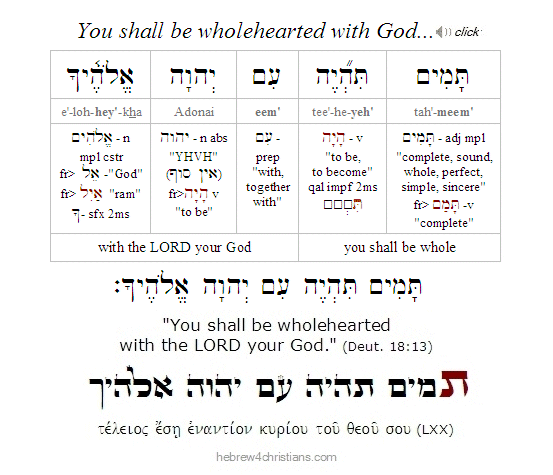 |
Regard this as a prophecy for your life: "You shall be made whole with the LORD your God" (Deut. 18:13). God's love heals the inner brokenness of our hearts. When we accept this, we discover that surrendering to God's will truly makes us "whole." "As many as I love, I reprove and correct: be zealous therefore, and turn. Listen! I stand at the door and knock. If anyone hears my voice and opens the door I will come into his heart and share a meal with him, and he with me" (Rev. 3:19-20). These are words of our Lord Yeshua, who speaks to those who "hear his voice." May we open the door of our hearts and turn to Him now...
Prophetic Significance of Israel...

[ The following is related to Yom HaAtzma'ut (יום העצמאות) - Israel's Independence Day. Am Yisrael Chai! Happy 74th Birthday, Israel! ]
05.05.22 (Iyyar 4, 5782) Can a case be made that we among the "terminal generation" before the return of Yeshua? The Torah predicted that the "End of Days" would occur sometime after the return of the Jewish people from their worldwide dispersion back to the land of Israel (see Deut. 30:1-3), and indeed the theme of exile and return is repeated in the prophets (see Jer. 23:3; 32:37-38; Ezek. 37:21, etc.). Therefore it is surely extraordinary that Israel was reborn as a nation in their ancient homeland on May 14, 1948 (Iyyar 5, 5708), after nearly 2,000 years of exile... Moreover, the existence of the modern State of Israel is entirely consonant with New Testament prophecies regarding the advent of the Messiah, since Yeshua taught that the Jewish people would indeed be in the land of Israel at the time of his second coming, and that the city of Jerusalem would be surrounded by enemies of the Jewish state (see Matt. 24-25; Mark 13, Luke 21). Furthermore, if we understand a "generation" to mean 70-80 years in duration (as stated in Psalm 90:10), then when Yeshua said, "this generation (ἡ γενεὰ αὕτη) shall not pass until all these things take place" (Matt. 24:34), he was perhaps referring to the generation that would originate with the restoration of the modern State of Israel, which further implies that Daniel's 70th Week (i.e., the Great Tribulation) could begin very soon. And while it is true that "no one knows the day or hour" of the "great day of the LORD" (יוֹם־יְהוָה הַגָּדוֹל), Yeshua faulted the scribes and the Pharisees for failing to discern "the signs of the times" (Matt. 16:3) and for missing the "time of their visitation" (Luke 19:44), and therefore are we likewise admonished to use discernment as we anticipate his second coming...
Hebrew Lesson
Isa. 66:8 reading (click):
 |
Am Yisrael Chai! - the people of Israel live! Like many other prophetic statements found in the Jewish Scriptures, this verse from the prophet Isaiah is "dual aspect," since it was both partially fulfilled when the Jewish people reestablished the State of Israel, but it will be entirely fulfilled at the outset of the Millennial Kingdom after the return of Messiah (see Isa. 66:7-16; Rom. 11:26). Meanwhile we behold the restoration of the "Fig Tree," and understand that the great harvest draws near, friends... May God help each one of us be awake, ready, with hearts full of steadfast faith (1 John 3:2-3; Titus 2:11-14; Matt. 24:32).
Regardless of how you may regard the prophetic events that herald the "end of the age," however, know this: Today might be your last in this world - your very own "Rosh Hashanah" when you will appear before the Judge and Creator of your life... Therefore should we live each day as if it were our last and pray that God will help us to serve Him in the truth.
Finally let me (preemptively) add that while we may discern that the time is indeed "short" and that the hour "draws near," I do not believe in "date setting" or predicting the return of the LORD, since that is "chokhmah nisteret" (חכמה נסתרת), "sealed wisdom," known only to the Father (see Matt. 24:36, Acts 1:7; 1 Thess. 5:2, etc.). Shalom.
 |
The Olive Tree Israel...

[ Today is Yom HaAtzma'ut (יוֹם הָעַצְמָאוּת), Israel's Independence Day. Happy Birthday Israel! It is also Cinco de Mayo, so "hola! to our friends from Mexico! ]
05.05.22 (Iyyar 4, 5782) Do you have a Jewish heart? If you say that you love the "LORD God of Israel" (יהוה אֱלהֵי יִשְׂרָאֵל) -- and it's clear that the LORD God of Israel loves the Jewish people -- it follows that you likewise will love the Jewish people (see Deut. 7:6-8; 14:2; 2 Sam. 7:23-24; 1 Kings 8:53; 10:9; 1 Chron 17:20-21; Isa 43:1-3; Jer. 31:31-37; Ezek. 36:24-28; Rom. 11:1-2;11:28; Hos. 11:1-11, etc.). After all, the LORD Yeshua is called מֶלֶךְ הַיְּהוּדִים / melech ha-Yehudim: the "King of the Jews" (Matt. 2:2, 27:11, etc.), and the very term "Mashiach" [i.e., "Christ"] is a regal term denoting the anointed King of Israel. Christians who pray to "Jesus Christ" are really praying to Yeshua as the anointed King of the Jews... And one day (very soon) Yeshua will indeed return to Jerusalem, the "City of the Great King" (Matt 5:35), to assume the throne of David and complete the redemption originally promised to the Jewish people (Zech. 12:1-13:1; 14:1-9, Ezek. 37:12-14, etc.). God will prove faithful to ethnic Israel, friends, and to deny this is to radically question God's faithfulness to the "Church." Indeed, let me say this as plainly as I can: Churches or teachers who claim that God has abandoned ethnic Israel are directly impugning the credibility of the Gospel message itself. Yes, it's that serious of an issue...
Note the verse that says, "I will bless those who bless you, but the one who discounts you will be cursed" (Gen 12:3). Why is this the case, chaverim? The answer is found in the second half of the verse: "For in you all the families of the earth shall be blessed" [i.e., through the advent of your Seed, the Messiah]. We cannot impugn the promises of God given to the Jewish people without likewise impugning God's promises given to us in Messiah. To say that God is "done with the Jewish people," or to consign them to a dark fate, is to disregard them, to curse them, and that results in reciprocal judgment from heaven.
Hebrew Lesson
Gen. 12:3a reading (click):
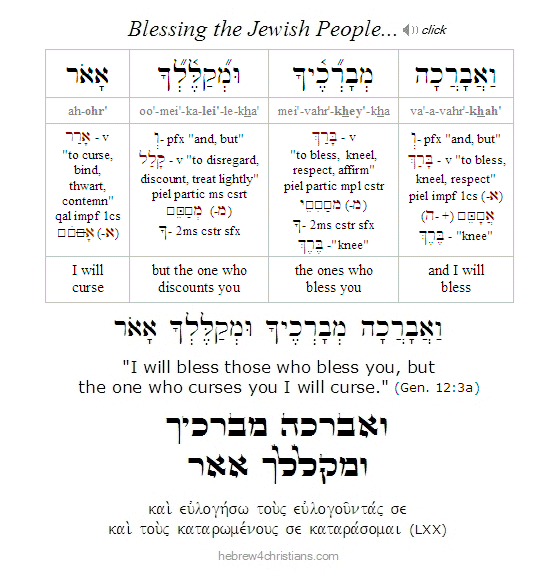 |
The physical descendants of Abraham are called בָּבַת עֵינוֹ (bavat eino), the "pupil of God's eye" (Zech. 2:8), a term of endearment that the LORD uses for no other nation on earth. Indeed the very habitations of the nations were established based on the number of the children of Israel (see Deut. 32:8). The Scriptures declare that the LORD will never abandon His original covenant people but will yet choose them for His Name's sake (Isa. 14:1). The church has not replaced Israel in God's redemptive plan but is merely "grafted in" to the original "root" of Israel. "Remember," Rabbi Paul warns, "it is not you who support the root, but the root supports you" (Rom. 11:18). "Blessed be the LORD God of Israel From everlasting to everlasting! And let all the people say, "Amen!" (Psalm 106:48).
Note: Please don't regard the "curse" mentioned in Gen. 12:3 to suggest that God is somehow vindictive, petty, etc. No, the reason the curse befalls those who reject God's plan for Israel is because Israel was the means God chose to bring salvation to the world: Yeshua was born the King of the Jews who came to ransom all those who trust in him from the curse of spiritual death (Gal. 4:4, Rom. 3:2, John 4:22). The reason God can't bless people who hate the Jewish people or Israel is because that would mean he would bless those who hate the truth, who spurn salvation, and who love darkness... The same God who promises us life and healing in Yeshua is the one who promised never to cast of Israel or to eternally disown the Jewish people. To paraphrase C.S. Lewis, God cannot give us a good apart from himself, since there literally is no such thing.
Hebrew Lesson
Psalm 135:4 reading with commentary (click):
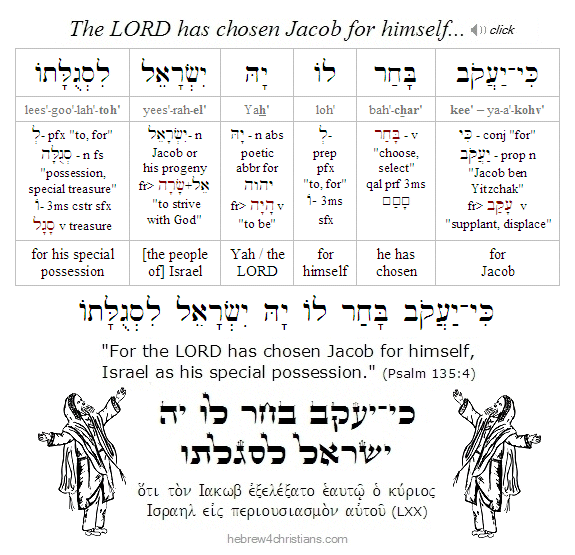 |
Related Topics:
Our Common Struggle...

05.04.22 (Iyyar 3, 5782) We all struggle with sin in our lives, and each of us needs deliverance from various attachments and fears that keep us from the "deeper seeing" of faith. The problem is within ourselves, that is, the contradiction of heart we experience in our double-mindedness, our ambivalence, and our unbelief (Jer. 17:9). We may recite the "Shema" every day and say that we love God with all our being, but in the ordinary moments of daily life we are drawn to other concerns, alien affections, other "gods." Indeed, whatever matters most to us, whatever consumes our attention, time, resources, and our interest, is something we "worship," that is, something we esteem as worthy and valuable...
People necessarily value things, and therefore every person alive is a "worshiper" (i.e., a person who finds "worth" in something). This applies equally to a devout atheist or pious skeptic as much as it does a deeply religious person... The question that matters, however, is what is your ultimate concern? What do you really want? Only when we begin to understand what draws and attracts us can we begin to discern what we really need. Therefore we must first acknowledge our false worship, our radical selfishness, and our sundry attachments in order to be set free. We must confess the truth that we are slaves.
Pride blinds us to the truth of our sickness of heart, persuading us to deny our problems, to cover them up, and to try harder and harder to "control" ourselves. This is a spiritual dead-end, a vicious circle, the "law of sin and death." We are set free, however, when we die to ourselves, that is, when we surrender to the love of God and receive the miracle of promised deliverance. Since we are powerless to change ourselves, to reform our lower nature, and to be healed by our own best efforts, we must abandon our "religion" and rely entirely upon the God for the power to heal. This is an ongoing venture: We die daily; we take up the cross daily, we walk with a limp from our inner struggle, and we cling to God alone show us the way and to guide our steps. Beloved, we have been crucified with Messiah and the old nature has lost its power over us; we are alive by the miracle of God's power. "If we live by the Spirit, let us also walk in the Spirit" (Gal. 5:25).
Hebrew Lesson
Zech. 4:6b reading (click):
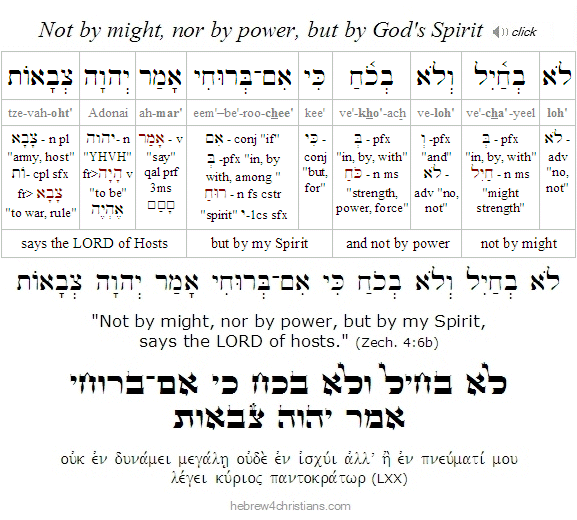 |
Cries from the Dark...
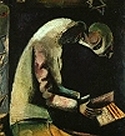
05.04.22 (Iyyar 3, 5782) Don't shame me for my sadness, for are we not all damaged? Have we not all fallen into this selfsame world of sorrows? My heart aches, galls in grief over the pains of death; the omnipresence of loss, God's silence as we struggle in hope...
Sometimes it takes great faith to believe that God sees into your darkness and will help you come into his light... Great faith. When all you've ever known is haunted with loneliness and the loss of what your heart needed most, then, to believe God will see you and reach out to touch you -- a miracle...
"Whoever does not love abides in death" (1 John 3:14). That is the terrible consequence of fear, to refuse to love or to be loved... Refusing love is to die inside. This is because fear leads to apathy, inner numbness, and detachment from whatever happens to you. Fear poisons your promise and leads your heart away from hope. Tragically the fear that you believe "protects" you from pain becomes the prison that binds your soul. A life of fear is no life at all, but is a place of outer darkness, of "weeping and gnashing of teeth."
Our woundedness can turn us inward, to a prison of despair, or outward, in compassion toward others, and sometimes both... In a heavy sigh the heart may ask, is there a happy ending to the story of my life? This is the question of your own struggle to believe...
Hebrew Lesson
Psalm 38:22 reading (click):
In his book Life After God, author Douglas Coopland writes: "Now - here is my secret: I tell it to you with an openness of heart that I doubt I shall ever achieve again, so I pray that you are in a quiet room as you hear these words. My secret is that I need God - that I am sick and can no longer make it alone. I need God to help me give, because I no longer seem capable of giving; to help me be kind, as I no longer seem capable of kindness; to help me love, as I seem beyond being able to love."
Theology and Humilty...
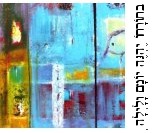
05.03.22 (Iyyar 2, 5782) Everyone is a theologian of sorts, though not everyone thinks clearly or takes the time to reflect on the meaning of the words they use, and therefore studying theology is necessary because so much muddled theology exists... Generally speaking "theology" (θεολογία) may be defined as reasoning (λόγος) about God (Θεός), though such reasoning is grounded in the philosophical activity of apprehending truth about ultimate reality. And just as everyone is a theologian (either a good one or not), so everyone is a philosopher of some kind or another, that is, a person who opines about the ultimate questions of life. To be a conscious person (as opposed to being numb or asleep) implies that you are haunted by the "big questions"of life (for example, "Who are we?" "Where did we come from?" "Why are we here?" "Where are we going?" and "What does it all mean?"), and therefore every self-reflective soul cannot escape the need to think clearly. Indeed the disciples of Yeshua are called talmidim (תַּלְמִידִים), that is, "learners" who have a duty before God to know and live the truth. We are to "study to show ourselves approved before God, rightly understanding the word of truth" (2 Tim. 2:15). The alternative to being talmud chacham (a wise student) is to be muddled about what you believe and why your believe it. Faith is called the conviction (ἔλεγχος) or "argument" of truth (see Heb. 11:6). Not knowing the truth makes you vulnerable to various forms of philosophical deception and theological error, as it is written: "Beware lest anyone cheat you through philosophy and empty deceit, according to the traditions of men, according to the basic principles of the world, and not according to Messiah" (Col. 2:8). "However, we speak wisdom (σοφία) among those who are mature, yet not the wisdom of this age, nor of the rulers of this age, who are coming to nothing, but we speak the wisdom of God in a mystery, the hidden wisdom which God ordained before the ages for our glory" (1 Cor. 2:6-7). It is the knowledge of the truth that sets us free (John 4:24, John 8:32; 2 Cor. 3:17).
Because we must both love the truth and discern what is false, clear thinking is required of us. "Good philosophy must exist, if for no other reason, because bad philosophy needs to be answered" (C.S. Lewis). Now philosophy is philosophy, but loving God is something more... Faith is not just a "head trip," but a "heart trip," and therefore it is essential to immerse the passions in all that we do. There is a real danger of intellectualizing faith, becoming something of a "professor" about God or a "Bible answer man" where you live "up in your head," full of sophisticated thinking about abstruse matters while disregarding the existential pathos and demands of the gospel.... Over the years I have read theologians that make God seem so remote and abstract that you wonder who or what is being talked about, after all. There is a danger to regard God as an "object' of knowledge -- a glorious, superlative, and supreme thing to study -- but a "thing" none the less. Tragically those who argue about theology have yet to learn the first truth that honest philosophy can offer, namely, that most of the time we don't really know (or fully understand) what we are thinking or saying. Being aware of our own blind spots requires forsaking our supposed infallibility and humbling acknowledging our own ignorance. We see "through a glass darkly." The intellect can act as a "defense" against what the Living God says to the wounded heart. That's always been the danger of mere "religion," after all, offering recipes and rituals, dogmas and assured theological confessions, while forgetting the desperate and hurting souls who must find the love of God or die....
"God of Abraham, God of Isaac, God of Jacob -- not of the philosophers and scholars." These words represent Pascal's change of heart. He turned, not from a state of being where there is no God to one where there is a God, but from the God of the philosophers to the God of Abraham. Overwhelmed by faith, he no longer knew what to do with the God of the philosophers; that is, with the God who occupies a definite position in a definite system of thought. The God of Abraham . . . is not susceptible of introduction into a system of thought precisely because He is God. He is beyond each and every one of those systems, absolutely and by virtue of his nature. What the philosophers describe by the name of God cannot be more than an idea." (Martin Buber: Eclipse of God, 1952)
Hebrew Lesson
Jer. 29:13 reading (click):
Forsake me not, O LORD...

05.03.22 (Iyyar 2, 5782) Though it is true that God will never leave nor forsake us, he nevertheless allows trouble in our lives so that we will learn to call upon him and know his heart (1 Pet. 1:5-9). For how else will we understand the truth of our great need for him, and how else his great provision? "Blessed are the poor in spirit," describes the poignant awareness of our inner poverty, our bankruptcy of heart, the destitution of our condition (Matt. 5:3). We cry inwardly, "Forsake me not, O LORD: O my God, be not far from me" (Psalm 38:21) because we realize our need for deliverance from ourselves; we understand that we cannot take a step in his way apart from his upholding. "Hold thou me up, and I shall be safe: and I will have respect unto thy statutes continually" (Psalm 119:117).
"Forsake me not, O LORD," is the mantra in our darkness, the antiphon of God's promised Presence, despite the present darkness; it is the cry of the heart that knows that only God can get us through the next moment and its temptation to despair. "Do not forsake me, O LORD, lest I be swallowed up by my pain, my fear, my sadness, my anguish of heart; do not forsake me, for I am nothing but the anguish of the moment, the sorrow of loneliness, the fear of my own heart as I tremble before you in my desperation; O do not forsake me...."
O LORD, You came to heal the sick; you spoke life to those who are without strength or remedy; you came to seek the lost, to find those who are without a place or sense of belonging in this world. O Lord, you know that without you I can do nothing; you know that I weak, poor, and needy; my path is perilous and I have no hope apart from you. Be not far from me; do not leave me to my own devices nor the counsel of my own soul. Save me, O God, for the glory of your Name; be magnified in your heart of love and faithfulness. Amen.
Hebrew Lesson
Psalm 38:21 reading (click):
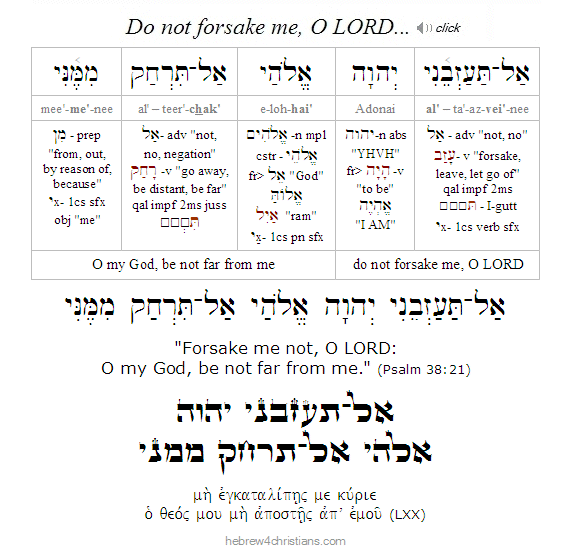 |
Awakening to Holiness...

05.03.22 (Iyyar 2, 5782) The Torah records God's first act of creation with the imperative utterance: "Let there be light" (i.e., yehi or: יְהִי אוֹר), and then goes on to say that "God separated (וַיַּבְדֵּל) the light from the darkness (Gen. 1:3-4). It is this "separation," or distinction, that is foundational to the concept of kedushah (קְדֻשָּׁה), or "holiness." Holiness is also expressed in the distinction between ordinary and sacred time: "God blessed the seventh day and made it holy" (יְקַדֵּשׁ) because on it God rested from all his work that he had done in creation" (Gen. 2:3).
The overall theme of the Book of Leviticus is kedushah, and indeed the Hebrew root (קדשׁ) occurs over 150 times in the book. Since God is kadosh (קדשׁ), we must be kadosh in our lives as well, and this means first of all being conscious of the distinction between the sacred and the profane, the "clean" and the unclean, and so on. "You are to distinguish between the holy and the common, and between the unclean and the clean" (Lev. 10:10). Note that the word translated "to distinguish" (וּלֲהַבְדִּיל) comes from the same root (בדל) used to describe how God separated the light from the darkness. Now in order to do this, that is, to perceive what is holy and what is profane, we need godly understanding (i.e., binah: בִּינָה), or the ability to distinguish between (בֵּין) realms of reality, and that presupposes that we understand our identity as the "called out" children of God, benei ha'ohr, the children of light, who are set apart to love the truth and to honor the the LORD God who is the only Creator of everything that exists. As it is written, "You shall be holy to me, for I the LORD am holy and I have separated you (וָאַבְדִּל) from other peoples that you should be mine" (Lev. 20:26).
Hebrew Lesson
Lev. 20:26 reading (click):
There is no other way to approach the Holy One apart from consciousness of His infinite glory and unsurpassable worth. "I will lift up my eyes to the hills" (Psalm 121:1). As the Holy One (i.e., ha-kadosh: הַקָּדוֹשׁ), the LORD (יהוה) is utterly unique, distinct, sacred, and set apart as the only One of its kind. He alone is worthy of true worship and adoration, since He alone is utterly peerless, without rival, and stands in relation to the world as its personal Creator, Redeemer, and Lord. To affirm that the LORD is holy is to be conscious that He is utterly sacred, and that you are chosen to draw near and personally know Him as well.
Holiness involves first of all the awareness or consciousness that there is a realm of reality "higher than" the material world (the light God created and separated from darkness was not physical), and this realm of reality is centered on Person and Will of God. A denial of this leads to the idolatrous view that material (i.e., profane) reality is absolute and therefore ascribed eternal worth. As it is writen: "The fear of the LORD is the beginning of wisdom; good understanding is for those who fear him" (Psalm 111:10). However, the LORD does not want us to merely recognize His holiness (in some abstract or intellectual sense) but calls us to be in relationship with Him, and this implies personal sanctity and separation: Again, "you shall be holy to me, for I the LORD am holy and I have separated you (וָאַבְדִּל) from other peoples that you should be mine" (Lev. 20:26). The purpose of the sacrificial system was to draw near to God, and this "drawing near" required a separation from the profane world and its habitual uncleanness. The call to be holy is therefore the call to wake up and become alive to God's Presence in this world; it is to turn away from ordinary to behold the extraordinary...
Note: Being "holy" does not mean being sanctimonious or having a sour face about the world and its carnal pleasures. It has nothing at all to do with affected spirituality, 'holier-than-thou' pride, or the fear of becoming unclean... Indeed, some of the most holy moments are not just those of love, joy, peace, but times of struggle, sorrow, affliction, and fiery temptation. Consider the dark cloud that surrounded the cross when Yeshua bled out and suffered in great agony for our redemption... Holiness is ultimately "ontological," which means it has to do with reality. A person can be holy and yet sinful; he can also be holy and yet feel lost or abandoned. On the other hand, a person can be seemingly sinless, morally upright, and yet be completely unholy.
Hebrew Lesson
Isa. 53:3a reading (click):
The Goal of Holiness....

[ The following is related to our Torah reading this week, parashat Kedoshim.... ]
05.03.22 (Iyyar 2, 5782) In our Torah portion for this week (Kedoshim) we read: "Speak to all the congregation of the people of Israel and say to them, 'Be holy as I the LORD your God am holy'" (Lev. 19:2). This doesn't mean wrapping ourselves up in some protective cloak of religious rituals as much as it means accepting our own atonement: reconciling who we are with our past, finding healing and love, and walking in genuine hope...
Holiness isn't as much "separation" from the profane as it is "consecration" to the sacred, and in that sense it is a kind of teshuvah, a turning of the heart back to reality.... Negatively put, "being holy" is turning away from fear, despair, and anger; positively put, it is embracing the worth and value of life, respecting the Divine Presence, and walking in the radiance of God's love. Amen, let is be so. Hashivenu Adonai....
Hebrew Lesson:
Lam. 5:21 reading (click):
A Living Faith...

[ The following is related to this week's Torah reading, parashat Kedoshim... ]
05.03.22 (Iyyar 2, 5782) We read in our Torah this week: "You shall keep my decrees and my judgments, the pursuit of which man shall live: I am the LORD" (Lev. 18:5). The Kotzker Rebbe advised reading this verse as "You shall keep my decrees and judgments to bring life into them," meaning that we should bring all our heart, soul, and strength into the teaching of Torah. The commandments nourish the soul as food does the body. Just as we seek to season our food to make it flavorful, so we seek to observe the truth with conviction and joy. "May the beauty of the LORD our God be upon us: and establish the work of our hands upon us; yea, establish the work of our hands" (Psalm 90:17).
ויהי נעם אדני אלהינו עלינו
ומעשׂה ידינו כוננה עלינו
ומעשׂה ידינו כוננהו
vee·hee · no'·am · Adonai · e·lo·hey'·noo · a·ley'·noo
oo·ma·a·seh · ya·dey'·noo · ko·ne·nah · a·ley'·noo
oo·ma·a·seh · ya·dey'·noo · ko·ne·nei'·hoo

"May the beauty of the Lord our God be upon us,
and establish the work of our hands upon us;
yea, establish the work of our hands."
(Psalm 90:17)
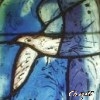
Hebrew Lesson:
Psalm 90:17 reading (click):
God's "Super Sign" of Israel...

[ We observe Yom Ha'aztmaut May 4th at sundown through the following day (May 5th). ]
05.02.22 (Iyyar 1, 5782) After the Jewish people had suffered for nearly 2,000 years of exile as clearly foretold by Moses (see Lev. 26:38, 44; Deut. 28:64-64) and the other Hebrew prophets (Isa. 43:5-6; Jer. 30:11; Joel 3:2; Ezek. 36:8-10; Hos. 9:1-10, etc.), Israel was miraculously reborn as a nation in their ancient homeland on May 14, 1948 (Iyyar 5, 5708). Today Jews across the world celebrate Iyyar 5 as Israeli Independence Day (this year we observe it earlier to so it will not fall on the Sabbath).
Israel's Independence Day is called Yom Ha'atzma'ut (יום העצמאות), the "day of independence." In Hebrew, the word independence (atzma'ut) comes from atzmi - "my bones" (i.e., etzem: עֶצֶם), so the name itself alludes to God's glorious promise to revive the "dry bones" (עֲצָמוֹת) of Israel by bringing the Jewish people back from their long exile during the End of Days (Ezek. 37:1-6). "Son of man, can these bones live?"
Hebrew Lesson
Ezekiel 37:3a Hebrew reading (click):
But why should Christians care about ethnic Israel? After all, many Christian denominations advocate some version of "Replacement Theology" and regard the promises God made to the Jewish people as belonging exclusively to their church... The existence of the modern State of Israel therefore evokes little thanks to God from these groups, and some of their ranks even regard Israel's revived presence on the world stage as an embarrassment to their typically "liberal" theology. Hence we see the (remarkably bad) phenomena of so-called "Christian" church denominations that express anti-Israel sentiment, even asking their followers to divest investments in Israel on behalf of the "Palestinians," etc.
The title "Christ" refers to the anointed King of Israel, the Mashiach (מָשִׁיחַ)... To say "Jesus Christ" is therefore to affirm that Yeshua is none other than the Messiah, the rightful King of Israel (מֶלֶךְ יִשְׂרָאֵל). Followers of Jesus, the One born "King of the Jews" (Matt. 2:2), should therefore care deeply about Israel because the existence of Jewish people - and of the nation of Israel in particular - demonstrates that the LORD (יהוה) is completely faithful to the covenant promises He made to our patriarchs (e.g., Gen. 15:9-21). Indeed, the Scriptures teach that the Name of God is forever designated as אלהי אברהם אלהי יצחק ואלהי יעקב - "the God of Abraham, the God of Isaac, and the God of Jacob" (Exod. 3:15), just as it is also the "LORD God of Israel" (יְהוָה אֱלהֵי יִשְׂרָאֵל). The perpetuity of the Jewish people - despite so much satanic hatred over the millennia - is an awesome testimony of God's loyal love (Jer. 31:35-37). עַם יִשְׂרָאֵל חַי / am Yisrael chai: "The people of Israel live!" Israel is a sign of the "sure mercies of David" (חַסְדֵי דָוִד הַנֶּאֱמָנִים) that are revealed in Yeshua, the Jewish Messiah (Isa. 55:1-6). Moreover, the New Covenant itself, as foretold by the prophet Jeremiah, explicitly promises the perpetuity of the Jewish people throughout the ages:
Behold, the days are coming, declares the LORD (יהוה), when I will make a new covenant (בְּרִית חֲדָשָׁה) with the house of Israel and the house of Judah, not like the covenant that I made with their fathers on the day when I took them by the hand to bring them out of the land of Egypt, my covenant that they broke, though I was their husband, declares the LORD. But this is the covenant that I will make with the house of Israel after those days, declares the LORD: I will put my Torah (תּוֹרָה) within them, and I will write it on their hearts. And I will be their God, and they shall be my people. And no longer shall each one teach his neighbor and each his brother, saying, 'Know the LORD,' for they shall all know me, from the least of them to the greatest, declares the LORD. For I will forgive their iniquity, and I will remember their sin no more."
Thus says the LORD, who gives the sun for light by day and the fixed order of the moon and the stars for light by night, who stirs up the sea so that its waves roar - the LORD of hosts is his Name: "If this fixed order departs from before me, declares the LORD, then shall the offspring of Israel (זֶרַע יִשְׂרָאֵל) cease from being a nation before me forever." Thus says the LORD: "If the heavens above can be measured, and the foundations of the earth below can be explored, then I will cast off all the offspring of Israel for all that they have done, declares the LORD. (Jer. 31:31-37)
According to this theologically critical passage, if you saw the sun shine today or the stars in the night sky, you can be assured that God's promise to preserve the "offspring of Israel" -- (i.e., zera Yisrael: זֶרַע יִשְׂרָאֵל) -- is in effect. Indeed, in the world to come, heavenly Jerusalem will have the names of the twelve tribes of Israel engraved upon its gates (Rev. 21:12). Note well that this is the only occurrence in the entire Tanakh (i.e., "Old Testament") that the New Covenant (בְּרִית חֲדָשָׁה) is explicitly mentioned... It is a foundational passage of Scripture for those who claim to be followers of the Jewish Messiah.
The spiritual blessings Christians enjoy come from the root of God's covenants with Israel... Yeshua our Savior was born the King of the Jews, and he plainly said הַיְשׁוּעָה מֵאֵת הַיְּהוּדִים הִיא- "salvation is from the Jews" (Matt. 2:2; 27:11; John 4:22). The Apostle Paul clearly warned those who think the church has "replaced" Israel: "Remember it is not you who support the root, but the root that supports you" (Rom. 11:18). This doctrine is so foundational that it may be rightly said that how you think about Israel will affect every other area of your theology. Indeed, the nation of Israel is God's "super sign" that He is faithful to His covenant promises (Jer. 31:35-37). Celebrating Israel's existence acknowledges God's loyal love for us all! For more on this subject, see the article, "Is Christianity Anti-Jewish?"
In the holy Torah we read how God said to Moses, "Say this to the people of Israel, 'The LORD, the God of your fathers, the God of Abraham, the God of Isaac, and the God of Jacob (אלהי אברהם אלהי יצחק ואלהי יעקב), has sent me to you.' This is my name forever, and thus I am to be remembered throughout all generations'" (Exod. 3:15).
Hebrew Lesson
Exod. 3:15b Hebrew reading (click):
"Your Name, O LORD, endures forever, your renown, O LORD, throughout all ages" (Psalm 135:13). Therefore the prophet cries: "in the east give glory to the LORD; in the coastlands of the sea, give glory to the Name of the LORD, the God of Israel" (Isa. 24:15).
Hebrew Lesson
Psalm 135:15 Hebrew reading (click):
This week's Torah:
Kedoshim - פרשת קדשים

[ The following is related to this week's Torah reading, parashat Kedoshim... ]
05.01.22 (Nisan 30, 5782) Chodesh Iyyar tov, chaverim! Last week's Torah portion (Acharei Mot) discussed how the yearly Yom Kippur service (עבודת יום כיפור) would (provisionally) purge the uncleanness and sin of the people and restore the Sanctuary to a state of purity. This week's Torah portion (Kedoshim) continues the theme of purity with the LORD saying to "the whole assembly of Israel" (כָּל־עֲדַת בְּנֵי־יִשְׂרָאֵל), "You must be holy (or sacred) because I, the LORD your God, am holy" (Lev. 19:2). Indeed this portion lists more mitzvot (commandments) regarding practical ethics (musar) than any other of the Torah, thereby directly connecting the holiness of the community with obedience to God's moral truth...
Hebrew Lesson
Lev. 19:2b Hebrew reading (click):
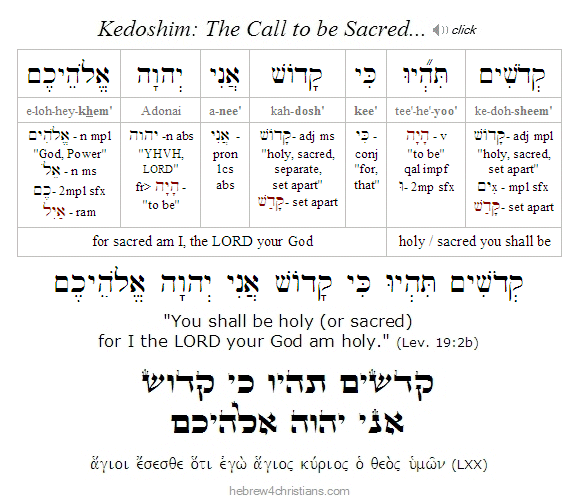 |
After stating the foundational requirement to be holy, the LORD begins to explain, "Each of you must respect (i.e., yirah: יִרְאָה) his mother and his father, and you must keep my Sabbaths. I am the LORD your God" (Lev. 19:3). The duty to revere (or honor) one's parents recalls the Fifth Commandment (Exod. 20:12), which is the starting point of learning to respect other people in our lives. Notice that the word for "my Sabbaths" (שַׁבְּתתַי) implies both the keeping of the weekly Sabbath as well as the "appointed times" of the LORD. As we will see, sanctifying time is a way we can express practical holiness in our lives...
Various practical commandments are given in this Torah portion through which a Jew is sanctified, or set apart to be kadosh - holy - and therefore fit for relationship with God. God is not only "wholly Other" (i.e., transcendent) but also pervades all of creation (i.e., "immanent"), and those who are called into His Presence must therefore be holy themselves. Such practical holiness results in sanctification obtained through the observance of commandments (mitzvot). These commandments include both mitzvot aseh (commandments to do something) and mitzvot lo ta'aseh (commandments to refrain from doing something). In addition, chukkim, or "statutes" are given that further separate the Jew from the customs and profanity of the surrounding nations.
For example, though it is inevitable (and psychologically necessary) that we make judgments about other people, the Torah states, be'tzedek tishpot amitekha, "in righteousness shall you judge your neighbor" (see also John 7:24), which implies that we must use the "good eye" (ayin tovah) when we think of other people. Indeed, the focal point and the very heart of what practical holiness represents is stated as ve'ahavta le're'akha kamokha - "You shall love your neighbor as yourself." Note that the direct object of the verb (ahav - to love) is your neighbor. But who, exactly, is my neighbor? Some have claimed that the word rea (neighbor) refers only to one's fellow Jew - not to others at large in the world. However this is obviously false, since the "stranger" (ger) is explicitly identified to be an object of our love (Lev 19:34). And note that Yeshua the Mashiach answered this question by turning it around. Instead of attempting to find someone worthy of neighborly love, I am asked to be a worthy and loving neighbor myself (Luke 10:29-37).
The phrase ve'ahavta le're'akha kamokha (Lev. 19:18) is considered the most comprehensive rule of conduct toward others found in the entire Torah. The Talmud (Shabbat 31a) tells the story of how Rabbi Hillel, a contemporary of Yeshua, was once challenged by a pagan: "Make me a proselyte, on the condition that you teach me the whole Torah while I stand on one foot." Hillel agreed, and while standing on one foot said, "What is hateful to you, do not do to your neighbor: that is the whole Torah and the rest is commentary; go and learn it." Yeshua likewise said, "In everything, treat others as you would want them to treat you, for this is the point of the law and the prophets" (Matt 7:12). The apostle Paul - who was a student of Hillel's grandson Gamaliel - likewise wrote: "Love (ἡ ἀγάπη) does no wrong to a neighbor; therefore love is the fulfillment (πλήρωμα) of the law" (see Rom. 13:10, Gal. 5:14).
Notice that the commandment to love our neighbor is given in connection with forgiveness. Leviticus 19:18 reads, Lo tikom, ve'lo titor (לא־תִקּם וְלא־תִטּר): "You must not take vengeance nor bear a grudge ... but you must love your neighbor as yourself. I am the LORD." In Jewish tradition, "Yom Kippur does not atone until we have made peace with one another." In light of the greater glory of the New Covenant, this may be stated, "the Cross of Yeshua will not avail you unless you are willing to forgive others for their sins against you" (Matt. 6:14-15).
The problem, of course, is not that we don't know what our duty before God is, but rather finding the means to truly live a life of love and forgiveness toward others in this fallen world... But thanks be to God - the Holy Spirit enables us to do the impossible...
The Month of Iyyar...

05.01.22 (Nisan 30, 5782) On the Torah's calendar, the month of Iyyar falls between the great month of redemption (i.e., Chodesh Yeshuah, or "Nisan") and the third month of revelation (Sivan), and is therefore primarily regarded as a "month of passage" to prepare us for the revelation given at Sinai (i.e., Shavuot or "Weeks," or "Pentecost"). Every day of this new month is counted in anticipation of the climactic jubilee of Shavuot. Rosh Chodesh is celebrated for two days on months with just 29 days, so it will begin a day "early" for Iyyar, that is, on Nisan 30, which this year began Saturday, April 30th at sundown.
יְהִי רָצוֹן מִלְּפָנֵיךָ יהוה אֱלהֵינוּ
וֵאלהֵי אֲבוֹתֵינוּ שֶׁתְּחַדֵּשׁ עָלֵינוּ חדֶשׁ טוֹב
בַּאֲדנֵינוּ יֵשׁוּעַ הַמָּשִׁיחַ אָמֵן
ye·hee · rah·tzon · meel·fah·ne'·kha · Adonai · E·loh·hey'·noo
vei·loh·hey · a·voh·tey'·noo · she·te·cha·deish · ah·ley'·noo · choh·desh tohv
ba'a·doh·ney'·noo · Ye·shoo'·a' · ha·mah·shee'·ach · ah·mein

"May it be Your will, LORD our God and God of our fathers,
that you renew for us a good month in our Lord Yeshua the Messiah. Amen."
Download Study Card
|
















































